
- Culture & Arts
- Ho Chi Minh City
- Attractions
- Phu Quoc Island
- Mekong Delta
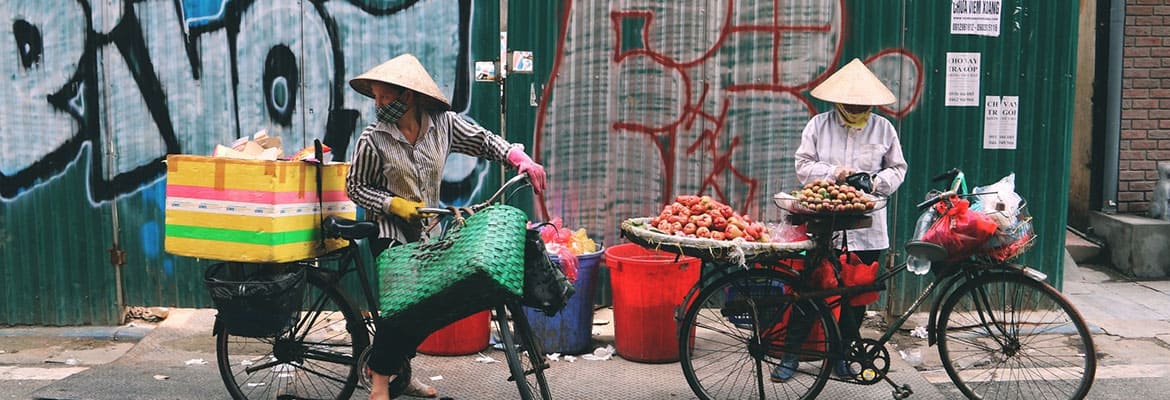

8 Popular Hanoi Scams
Things You Should Be Aware of in Hanoi
Hanoi, the capital of Vietnam, is considered as one of the most ancient cities in the world. It has several things to cater visitors worldwide such as elegant views, delicious street food or tranquil atmosphere. However, if you are planning a trip to here, you should know some Hanoi scams in order to prepare better.
1. Exchange Rates
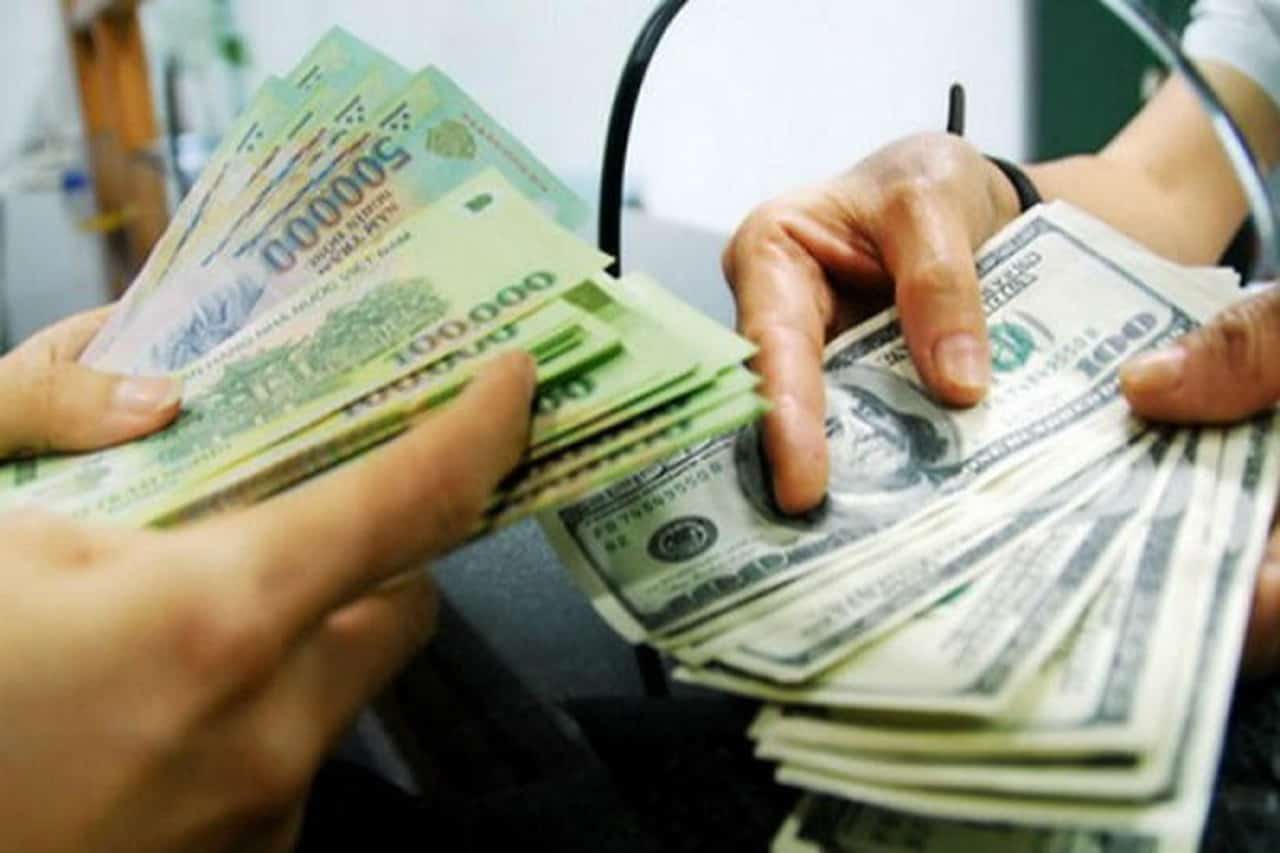
Exchanging money for the first time coming to a new country is a must for any visitor. For those coming to Vietnam, they need to bear in mind that Vietnamese people use VND for most of the everyday payment.
It is not hard to find a place to switch money in Vietnam, especially in big cities like Hanoi. You can stop by some banks, jewelry stores or your booked hotels. The exchange rates are quite the same. But you still need to check the exact current rates first on the Internet in order to make sure you are given adequate amount of money.
Sometimes, you might be tricked by the similar look of the money. For example, a 500,000 VND is quite the same with a 20,000 VND because they are both blue. In this situation, you should divide them into separate places in your wallet. Try to pay large bills at restaurants, convenience stores or supermarkets and only pay the small bills outside.
>> For more information: Banking and Currency in Vietnam
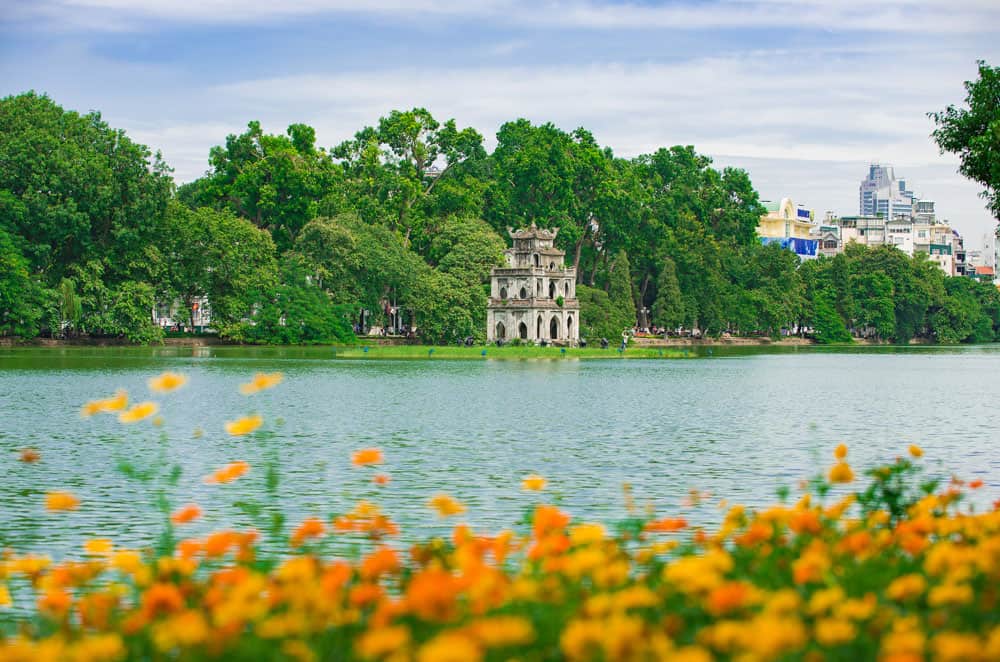
Like many other tourist hubs, Hanoi, Vietnam offers visitors a number of amazing tour packages from different tour agencies. However, before booking a memorable tour for yourself, you need to make sure that everything given by these agencies are true. You can do some research on the Internet to know which are the reputable tourist agencies in the Old Quarter.
Editor’s Note: You can totally refer tours in our Tour List to get more options.
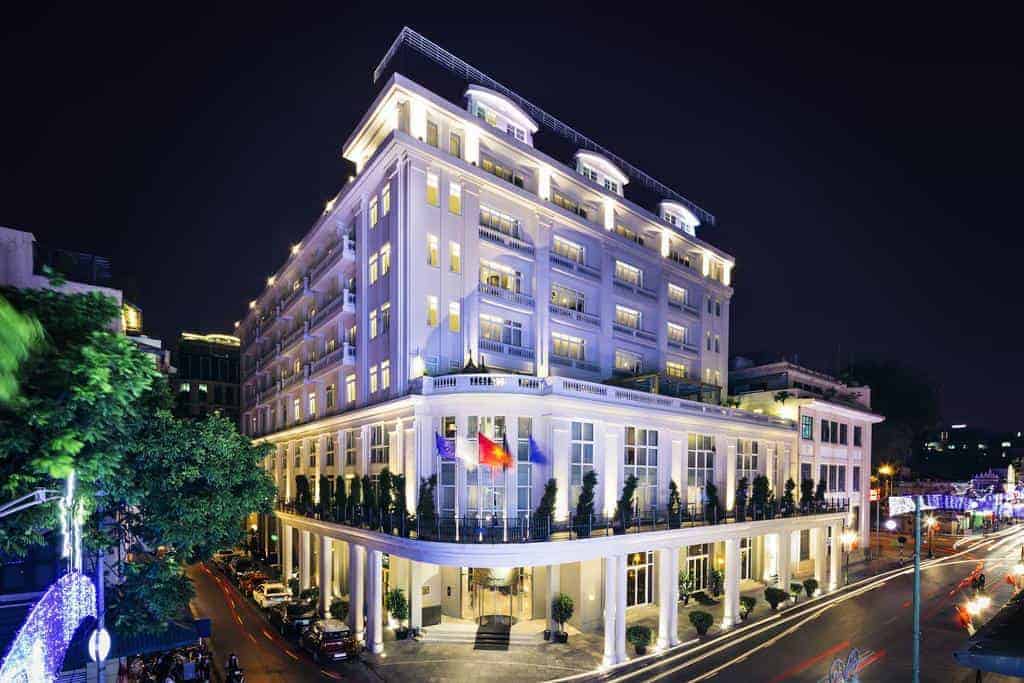
Before coming to a destination, you have to ensure your accommodation there. But the thing is, there are numerous rogue guesthouses and hotels with the same names as the real ones providing bad services around Hanoi. Thus, you need to use the Google Map along the way if you do not want to go to a fake hotel and ruin your trip.
In addition, check out the bills and the rooms carefully before paying money. If there are any problems, ask the owner to fix straight away.
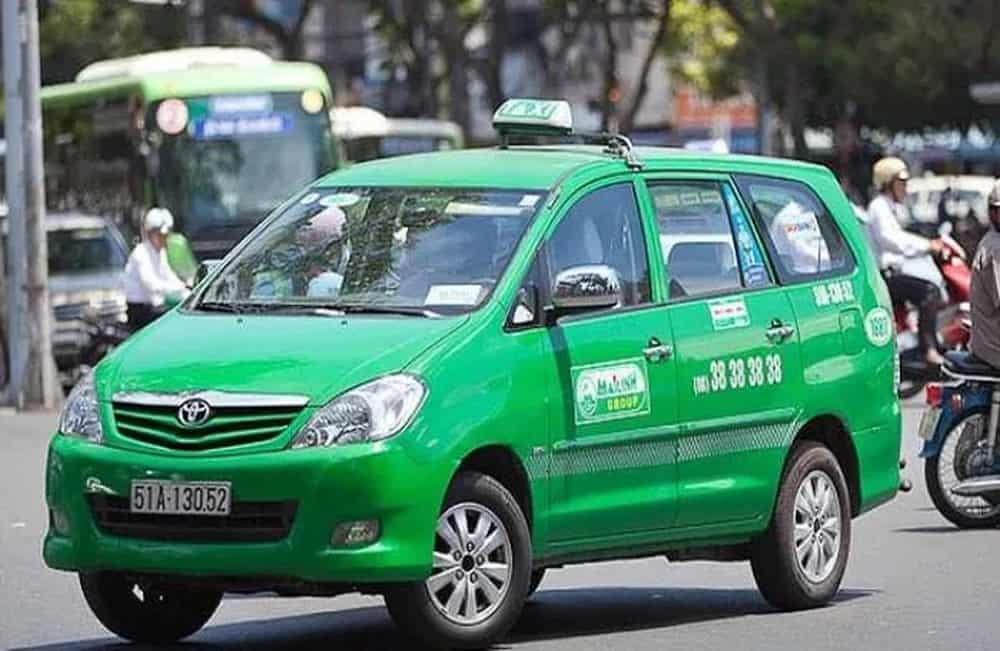
Of course, you will have to use this means of transportation to transfer among renowned attractions around Hanoi. Nevertheless, there are some issues happened with the taxis here that you need to be concerned about.
You may come up with an airport taxi scam. When you get out of the airport, there will be many taxi drivers offer a drive to the hotel they connect with. But it turns out this hotel is much more expensive while being substandard. Furthermore, along the way, the taxi does not have a fixed fare like the normal ones. So, you will have to pay more for the drivers.
The wise advice here is to book a taxi via your smartphone or book famous taxi companies like taxi Mai Linh and taxi Hanoi. They will go by the meter and you will only need to pay as the meter displays.
In case you have to book a taxi from your hotel, don’t hesitate to ask the receptionist to help you with this. Then, you will feel more comfortable after that.
5. Free Donut

If you wander around Hanoi Old Quarter, you may see a lot of street vendors selling different kinds of food. However, if a woman comes to you and ask you to try a free donut, please say “no”.
As you probably know, there is nothing free on the earth. Once you agree to taste that donut, the seller will then gently pressure you into purchasing some donuts with high prices. In addition, if you are a picky eater, you may feel sick after trying this street donut as you do not know what are the ingredients used to make it.
In order to avoid this, you should try other street food such as banh xeo, banh mi or xoi instead of these free donuts.
6. Free Photos Opportunity

Like the free donuts, this service is not free, though. If you see a hawker carrying Vietnamese conical hats and approaching you to take a free photo, say “no” immediately. Once you say “yes”, they will demand an amount of money from you afterwards. Other street sellers will also use the same techniques to take money from you. So, be careful with these people. Always remember to disagree with the free things from strangers.
7. Over-charging
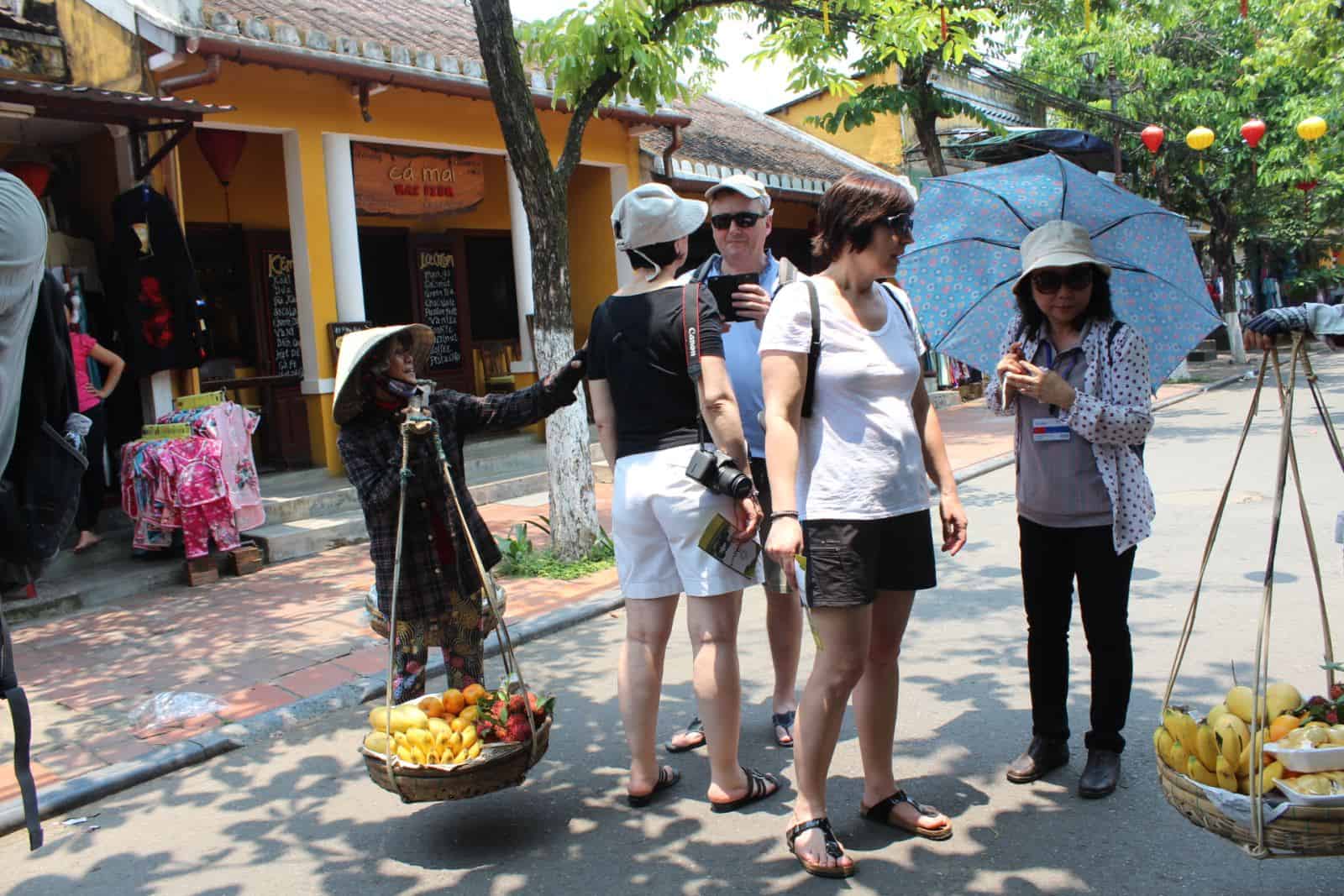
Having to pay too much higher than the real price for something can be called a kind of scams in Hanoi. From the visa extensions or the fruits on the streets, you can be easily over-charged if you do not pay attention to what the sellers say.
So, look around for the best prices instead of accepting the first one you get. The more effort you put into, the better deals you will receive.
8. Pick Pocket
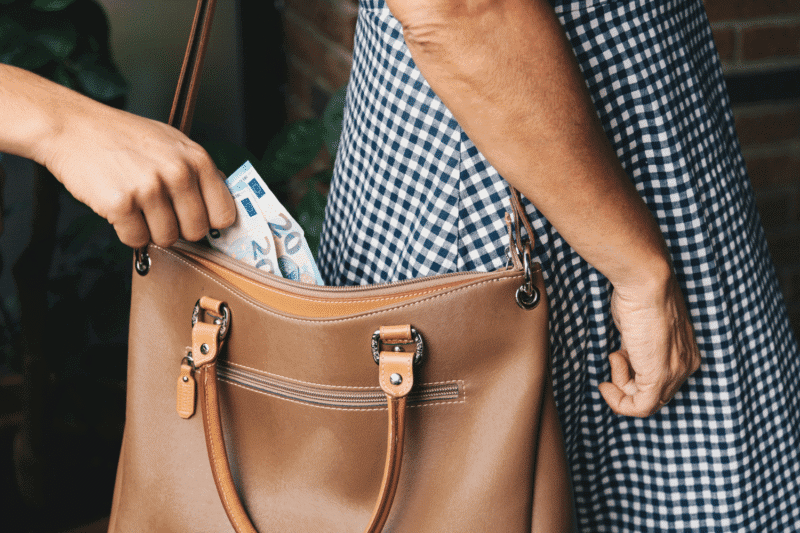
Hanoi is much safer than Ho Chi Minh city. But you still need to be careful whenever go out of the hotel. Watch out for pickpockets and bag snatchers as they may appear anytime you are not paying attention to your belongings.
Losing your things can ruin your holiday. So, you need to wear bags properly while strolling the streets. Do not bring valuables when being outdoors. And always have an eye on your backpack if you are stuck in a crowded area.
Having known all of Hanoi scams may happen during your time in Vietnam’s capital. Now, get ready to pack the luggage to go to this beautiful city.
Most Popular

Hoan Kiem Lake Hanoi – What to See & Do

Temple of Literature Hanoi

Ba Vi National Park, Hanoi

10 Best Things to Do in Hanoi, Vietnam

Bat Trang Ceramic Village in Hanoi
More about hanoi.
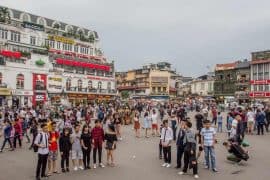
Hanoi Walking Streets
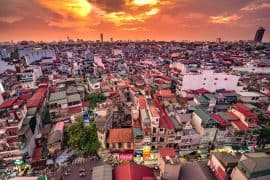
How Many Days in Hanoi is Enough?
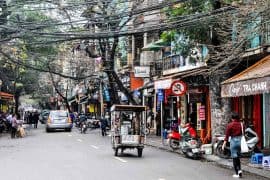
2 Days in Hanoi - What to See, Do and Eat in 48 Hours
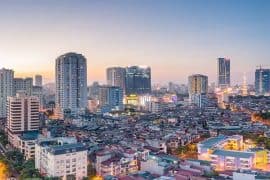
French Quarter Hanoi: Things You Should Know Before You Go
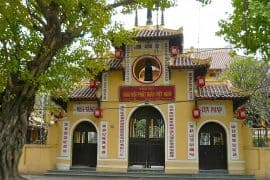
Quan Thanh Temple - Sacred Temple of Hanoi

A Complete Guide to the Imperial Citadel of Thang Long, Hanoi

Top 6 Beautiful Vietnam Beaches Near Hanoi

Travel Guide to Vietnamese Women’s Museum in Hanoi
Tours may you like.
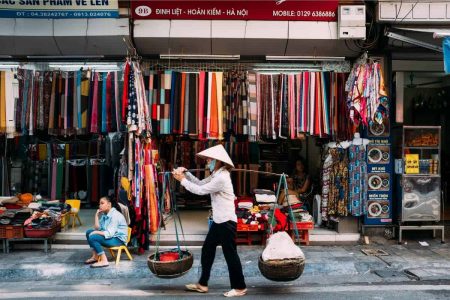
Halong Port to Hanoi City Private Tour
Start from: $60 /person

Tam Chuc Pagoda – Dia Tang Phi Lai Tu…
Start from: $35 /person

Hanoi – Halong 5-star Cruise – Sapa – Fansipan…
5 days 4 nights
Start from: $370 /person
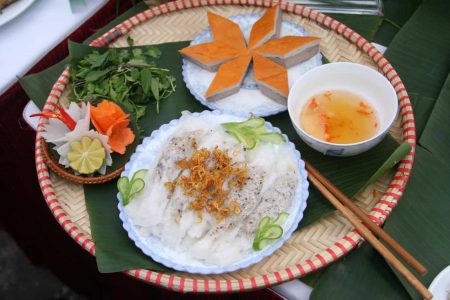
Hanoi Motorbike Night Street Food Tour: Nightlife & Night…
Start from: $79 /person
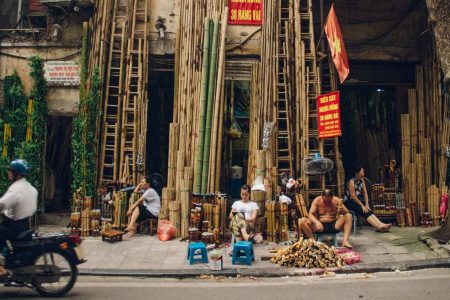
Hanoi’s Old Quarters Walking Tour
Start from: $30 /person
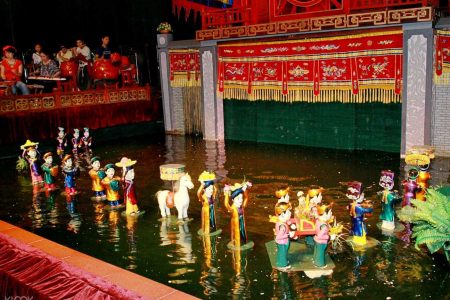
Hanoi Free Volunteer Guide and Water Puppet Show by…
Start from: $29 /person
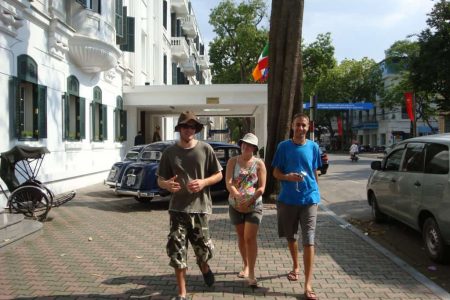
Hanoi City Free Walking Tour
Start from: $36 /person

Hanoi Funny Monkey at Late
Start from: $112 /person
Destinations
Tours by style.
- Shore Excursions
Travel Guide
- Best Time to Visit
- Getting around
- Transportation
- Best Beaches
- Vietnam Honeymoon
- Travel esim to Vietnam
Our Company
- Responsible travel
- Terms of use
- Privacy Policy
- Recruitment
Connect with us:
- (+84) 989 383 767
- Email: [email protected]
- Hanoi, Vietnam: 23rd Floor, TASCO Building, Pham Hung road, Me Tri, Tu Liem, Hanoi.
- Ho Chi Minh City, Vietnam: 2nd Floor, VIPD Building, No. 4 Nguyen Thi Minh Khai, Da Kao Ward, District 1, HCMC
- Hong Kong: Vietnam discovery Travel Limited Room 1D, 2/F, Fu Tao Building,98 Argyle Street, Mongkok, Kowloon, Hong Kong
Where Do You Want to Go?
- Tell us details of your holiday plan.
- Get multiple quotes from our expert agents, compare, then customize further.
- Select & book the best deal.
- BACKPACKERS WANDERLUST - AN AWARD WINNING TRAVEL BLOG
- Work With Me | Backpackers Wanderlust

- DISCLOSURE & PRIVACY POLICY
- United States
- Cook Islands
- New Caledonia
- New Zealand
- Accommodation Goals
- Budget And Cost Of Travel
- Foodie Goals
- Packing & Planning
- Travel Inspiration
- Volunteering Abroad
- Working & Studying Abroad
- Other Travel Tips
Vietnam , Asia
Scams in vietnam: read before you visit (2024).
Come find out everything you need to know about common tourist scams in Vietnam. Be a smart traveler by knowing the dos and don’t in your traveling adventures.
Learn about what to look out for, situations to avoid, and more as I explain how to can have a scam-free trip to Vietnam.
It is super important to do some research about safety and scams in a country before you travel there. Ultimately this will make for an easier and stress-free time when you are on the ground exploring.
This is something I have always done before venturing somewhere new, and luckily I have avoided scam situations the majority of the time.
Vietnam is definitely not a dangerous country. Though I will say scams seem to be lurking around every corner, well at least in the touristy areas.
We watched numerous scams happen to travelers each day. I spent a month backpacking Vietnam from the North to South and scams occurred in every city I visited. This is why I am sharing what I have learned with you.
Unfortunately, Vietnam is definitely one of those countries where you need to second-guess interactions with people on the street. This is especially so in large cities such as Hanoi or Ho Chi Minh City.
The most important thing when traveling is keeping yourself safe and away from dangerous situations. Scams in Vietnam may only cost you $20.00 or could set you back thousands.
Vietnam Scams: 17 Scams To Be Aware Of To Keep Safe
TAKE YOUR TRIP TO THE NEXT LEVEL …
🚗 How I Book Cheap Transport In Vietnam: Baolau & 12.Go Asia
1, 2 & 3. Motorbike Scams In Vietnam
Motorbike scams Vietnam are rather common. I mean they are absolutely everywhere here so it is no surprise you will eventually get on the back of one, though there are a couple of things you need to know before you do.
Whether you have brought your own motorbike and are riding the length of the country or perhaps you are just taking a motorbike taxi across the city, each one has its own scams you need to be aware of:
1. Taking A Motorbike Taxi
Now if you are traveling solo you may find it easier to simply take a motorbike taxi rather than a regular taxi, especially if you aren’t taking any luggage.
Plus they only fit one person, rather than a car, so surely they are cheaper. Well, this is the case, except if your driver decides to take advantage of you.
More often than not you will agree on a fixed price before jumping on. As long as the driver is decent this is your final price.
However if not, they may chuck an extra zero on the end and suddenly your price has increased x10. They will insist that you misheard and it is the price you originally agreed to. Since there is no one else around to stick up for you, it is simply your word against theirs.
How To Avoid: The best way to avoid being ripped off by a motorbike taxi is simply to use the Grab app.
It works similarly to Uber so you agree on a price before jumping on, and this price is on your phone so no one can disagree with it.
2. Buying A Motorbike In Vietnam
Now buying a motorbike in Vietnam is an incredible way to see the country. You will be able to get off the beaten track and discover more than most travelers get the opportunity to.
Unfortunately having your own vehicle in a foreign country does leave you open to being vulnerable to more scams.
One of the most common occurrences is being scammed while buying a motorbike. This could come in the form of a faulty bike, or dodgy paperwork.
Surprisingly you can even have the motorbike switched on you, where everything is good up until the last minute when the bike is swapped for an inferior version of the same model.
How To Avoid:
The best way to avoid this is by doing research in advance and buying through a reputable company.
There is a heap of options online, so doing research is a must. Make sure to read through travelers’ past reviews, or get recommendations from your hostel.

3. Motorbike Rental Scams In Vietnam
This is a common scam throughout Southeast Asia, including Vietnam. You may find your passport is being held hostage while the owners demand money for damages not caused by you.
However, this next motorbike rental scam in Vietnam is even worse. It has become an infamous situation for the motorbike hire staff to come and ‘steal’ their motorbikes from those who have hired them.
The person renting the motorbike doesn’t realize it was actually the company that has stolen the bike.
This leaves the person responsible for the motorbike in an extremely awkward and difficult situation. Now when they go turn up at the motorbike rental store without the bike, they will be forced to pay exorbitant amounts. Though, unbeknownst to them the bike is in the owner’s possession.
Apart from the obvious of not hiring a motorbike, there will always be some sort of risk when hiring a motorbike. The best thing you can do is to ask other travelers if they have hired one and their recommendations.
You could always ask your hotel or guesthouse for their recommendation, though there is a risk that they may get kickbacks or a certain percentage of the money made by recommending you to certain shops.

4. Pick Pockets & Snatch Thieves
Unfortunately, petty crime is super common in Vietnam, especially in large cities. You need to constantly be aware of your surroundings and where your valuables are on you from the moment you touch down at the busy airport.
Vietnam is an overload on the senses, so it’s not surprising that many let their guard down as they try to bearings.
I have many friends who traveled to Vietnam and were victims of the snatch thieves . More often than not these are people on motorbikes so look for the perfect opportunity, someone standing a little too close to the street with their valuables, and then quickly driving past and snatching it off them.
Whether you are looking at your phone for directions, opening up your wallet to pay for a cold drink, or simply walking down the road with your bag over your shoulder.
The best way to avoid this scam is to be aware of your surroundings. If you need to use your phone make sure to open it facing towards a building or opposite the roadside, making it near impossible for someone to drive by the grab it off you.
Perhaps you have your camera and are taking photos of this incredible country, then make sure to use the strap and have it tightly wrapped around your hand.
Lastly, if you carry around a bag make sure it is a cross-body bag (with a zipper close), as it is a lot more difficult to snatch.
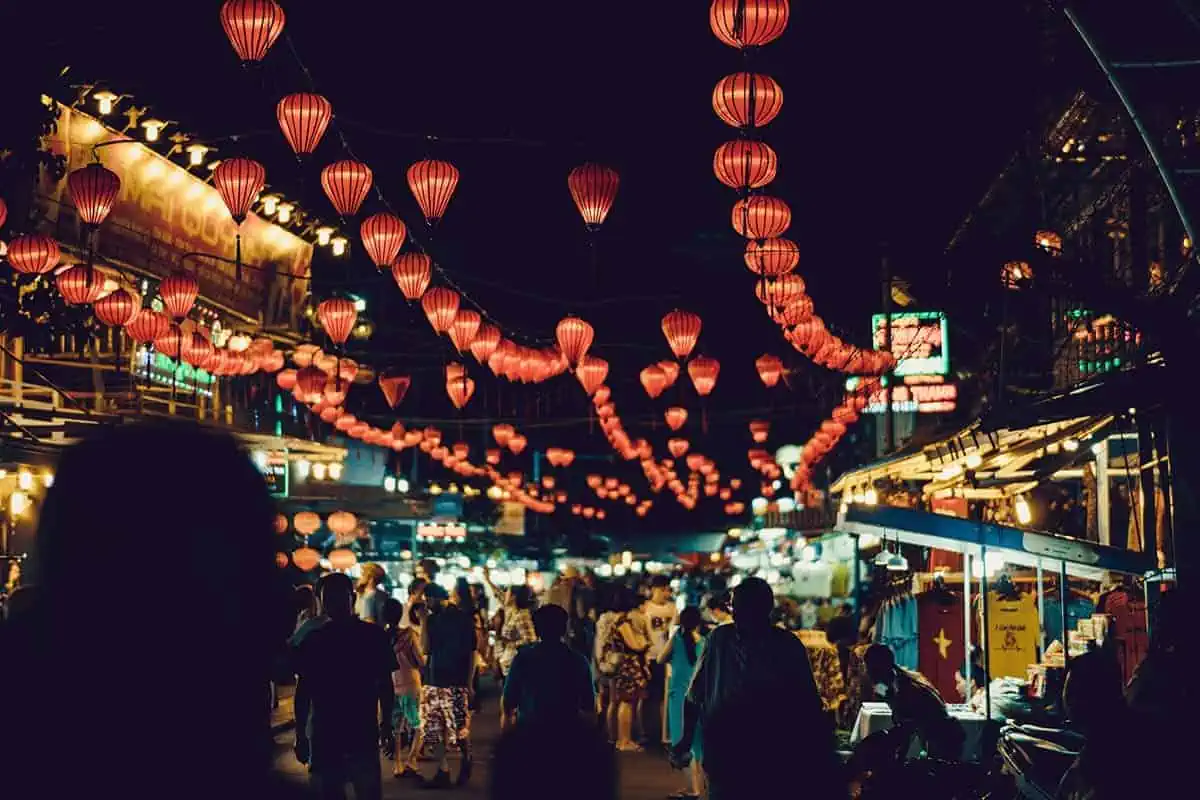
5. Taxi Scams In Vietnam
Ahhhh the taxi scam, one which every traveler knows all too well. Though in Vietnam, and basically all of Southeast Asia they are all too common. The best companies to ride with here are called Vinasun (white in color) and Mai Linh (green in color).
For the most part, most of the drivers who work with these companies are reputable and honest. However, just like the duplicate business scam, other taxi services take advantage of this by copying the color schemes of the cars.
Unfortunately in these cars, the meters go up a lot quicker than they would in a reputable taxi car. Also, the drivers are known to also try out the money switch scam, more on that below.
To avoid taxi scams in Vietnam it is best to only ride with Vinasun or Mai Linh.
If you can’t find them, or perhaps have bad eyesight like myself and want to avoid the awkward interaction when you realize it’s too late and need to come up with an excuse not to jump in the scammy taxi, then just use the Grab app.
6. Money Switches
Now, something that can happen in any country is the good ol’ money-switching scam, and the same goes for Vietnam. Usually, it is the motorbike or taxi drivers that try this one, as they can quickly drive off never to be seen again.
They use sleight of hand to switch whatever money you give them for smaller denominations. Then comes the real performance, they put on a dramatic show and make it appear that you’re the one trying to rip them off.
Commonly this is done by switching a 500,000VND note for a 20,000VND note since they’re both blue.
The best way to avoid this is to pay with small bills or pay with the exact amount. If you have larger notes you are needing to break it is best done at convenience stores, restaurants, or other reputable businesses.
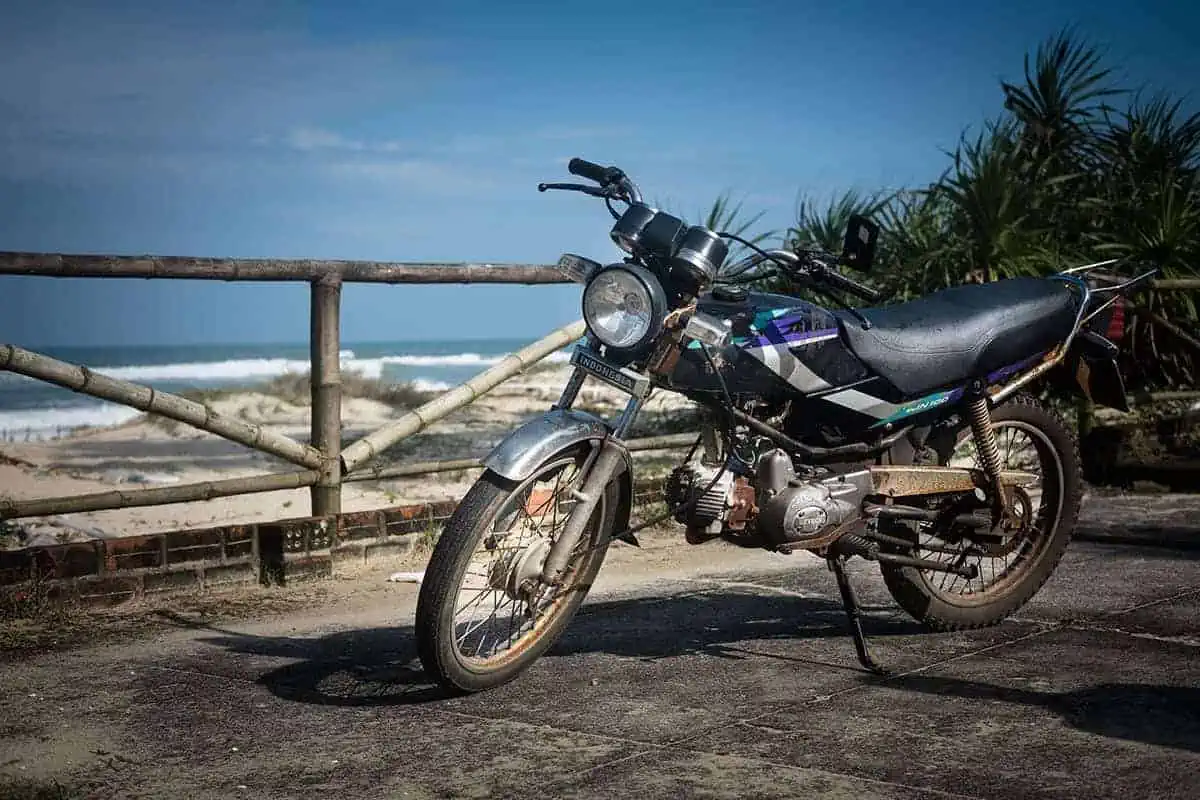
7. Fruit Basket & Coconut Seller Tourist Scams In Vietnam
As soon as you start exploring the streets in Vietnam you will quickly see locals dressed up selling baskets of fruit or coconuts.
Both of these scams operate in a similar fashion where you are super impressed by the seller perfectly balancing these baskets of fruit or coconuts on their shoulders and you grab a photo.
From here one of two things will happen:
The first is that they will happily pose for the photo. Afterward, they will start demanding a large sum of money for the photographs.
The second is that they will start chopping up the fruit or coconuts as they pose for your photos. Afterward, they will say that chopped up it for you and that you now must buy the fruit or coconut, for another high price.
I, unfortunately, saw many people fall for this scam, especially in Hanoi.
Unfortunately, it is as simple as not interacting with these sellers, no matter how cool their setup looks or how good their balancing skills are.
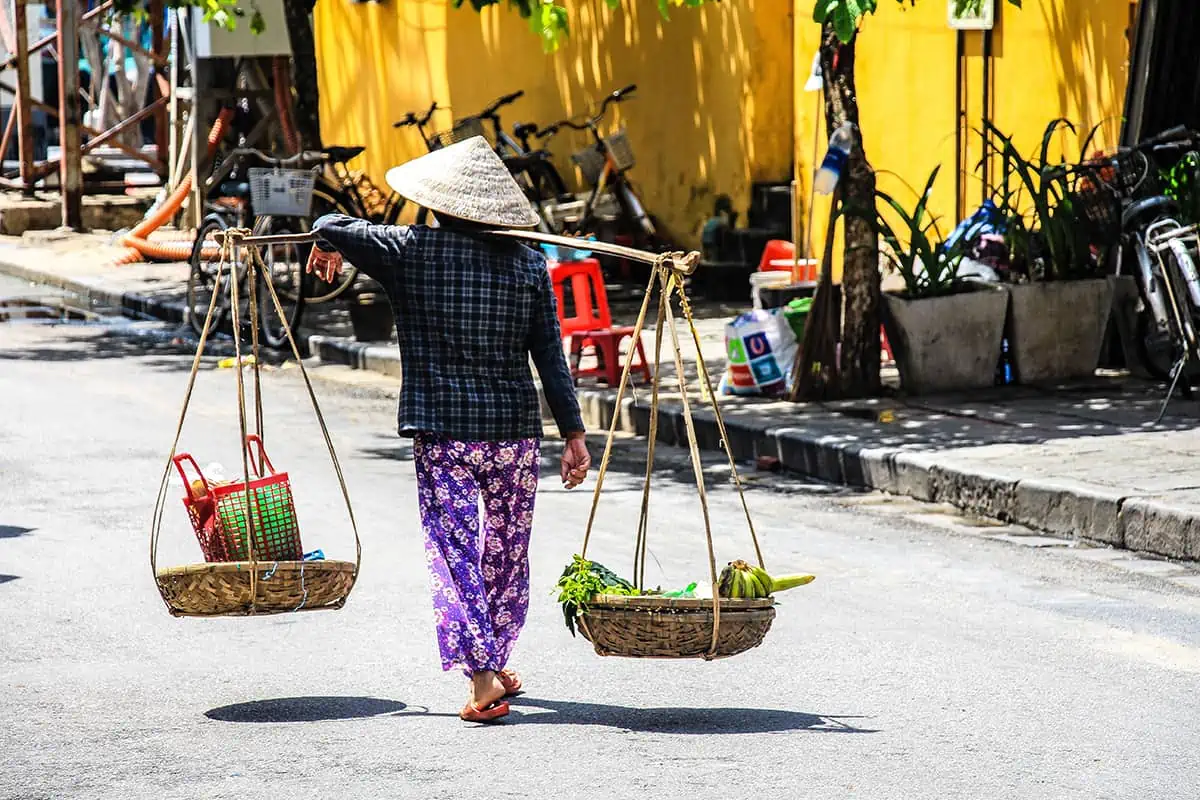
8. Duplicate Businesses
A common occurrence in Vietnam is the presence of multiple, completely different, businesses operating under the same name.
This is usually in the form of well-known companies that may attract travelers. Though in reality, these businesses have no affiliation with these larger companies.
The reason they call themselves the same, or very similar name, is in hopes that travelers recognize it and then utilize their services over others.
Though the problem is it is very likely their services will be very poor compared to what you were expecting.
For example, a reputable business called Mekong Tours might engender a string of far less professional me-toos called Mekong Tour, Mekong Guest Tours, or Mekong Touring
The best way to avoid this type of scam is to do some research online to find out the location of the actual company.
The presence of these types of businesses is super common in Hanoi, so be sure to be extra vigilant there.
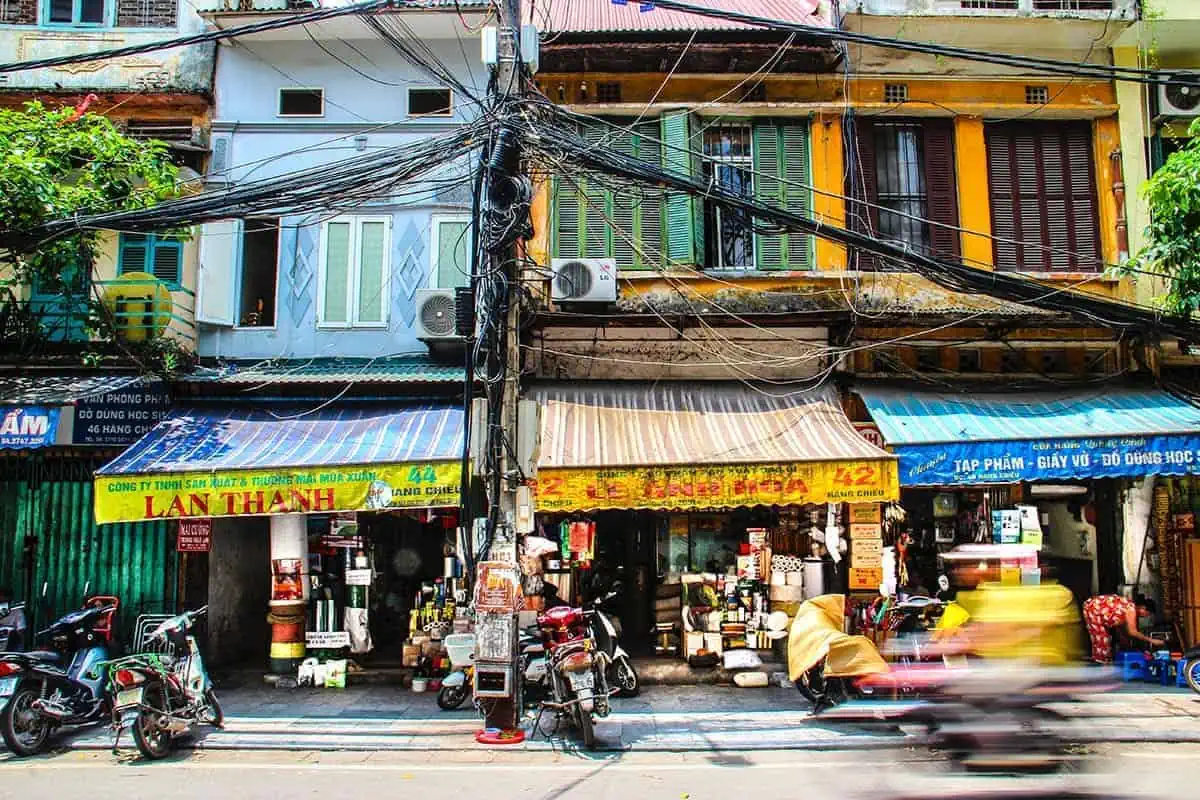
9. Shoe Shining Scams In Vietnam
Unfortunately, the infamous shoe shinning scam is quite common, and one of the most common scams Hanoi. This is one scam I have seen play out in front of me multiple times.
Usually, you will be completely minding your own business then suddenly someone will come up to you taking great interest in your shoes. No matter what you say or do they won’t stop.
I have seen these shoe shinners pull off people’s shoes to start shining them, knowing they won’t walk away barefoot.
Once the shine is complete they will demand a price that is about 10 times what you’d be expecting.
The best way to avoid the shoe-shining scams in Vietnam is to simply not stop when someone approaches you.
I know this may sound rude but as soon as you stop walking that allows them to grab your shoe.
Here is a video of this scam in action:

10. Cyclo Driver Scam
Now all around Vietnam you will see cyclos and think wow that looks like a lot of fun. I mean who wouldn’t want to be nicely driven around a city? I mean it is a lot more relaxing than being on a crazy motorbike.
These cyclo drivers are everywhere and you will no doubt encounter them in your travels. They will offer to take you wherever you wish to go, and once you negotiate a price you jump on.
Unfortunately, a few bad things commonly happen from here. The first is that the driver will take you far from your desired destination, and ask you for a crazy price to take you back.
Perhaps you have organized a sightseeing tour around the city to a few of the highlights, well unbeknownst to you the driver has a so-called “waiting fee”, typically starting at 500,000 VND / $25.00 an hour. You will be hounded for this amount.
The best way to avoid cyclo scams is to either have your maps open on your phone so you know you are going the correct way or book online through a reputable company if you want to do a tour.
This will also save you the headache of haggling.

11. Do Not Give In To The Donut
I know, it’s just an innocent donut, how the heck can this be one of the scams in Vietnam? Bad news, it is. Street food is in abundance in Vietnam, and I totally encourage you to try it all, except for those sneaky little donuts.
Though before this sounds like I am being judgy, trust me, I nearly fell victim to this scam multiple times. I mean yummy little doughy balls of goodness covered in powdered sugar, it’s hard to say no.
Mainly in Hanoi, you will walk past people balancing baskets of good-looking donuts on their shoulders. The seller will stop and ask if you’d like to try one for free.
While you say yes and taste one, the vendor will talk you into buying a small bag of donuts. However, a lot of travelers don’t need convincing and just go straight in and buy a bag.
Unfortunately, it is well known that the oil used to fry these donuts is unregulated. The oil could’ve been sitting there for weeks without being changed.
The donuts are also known to be stale, and travelers report feeling sick after consuming them.
It’s simple, just don’t eat them. Vietnam has so many delicious foodie options, so why not grab a banh mi instead?
View this post on Instagram A post shared by Pascal Giroux (@editing4tacos)
12 & 13. Restaurant & Bar Scams In Vietnam
Since restaurants are a place travelers visit so often, and let’s be honest the food in Vietnam is incredible, it is no surprise a few different scams are floating around.
12. Missing Prices
Unfortunately, this is something that can happen anywhere in the world but don’t sit down at a restaurant unless there are prices on the menu.
Without ordering with fixed prices you are leaving the restaurant’s staff the chance to charge you whatever they wish.
13. Free Food
Now nothing is free in this world, and the same goes for Vietnam. I know back at home you may be used to getting a free bowl of peanuts when you order a nice cold beer.
However, this isn’t always the case in Vietnam. More often than not, in Hanoi and Nha Trang you will find yourself being charged for these bowls of peanuts that are quickly brought to you.
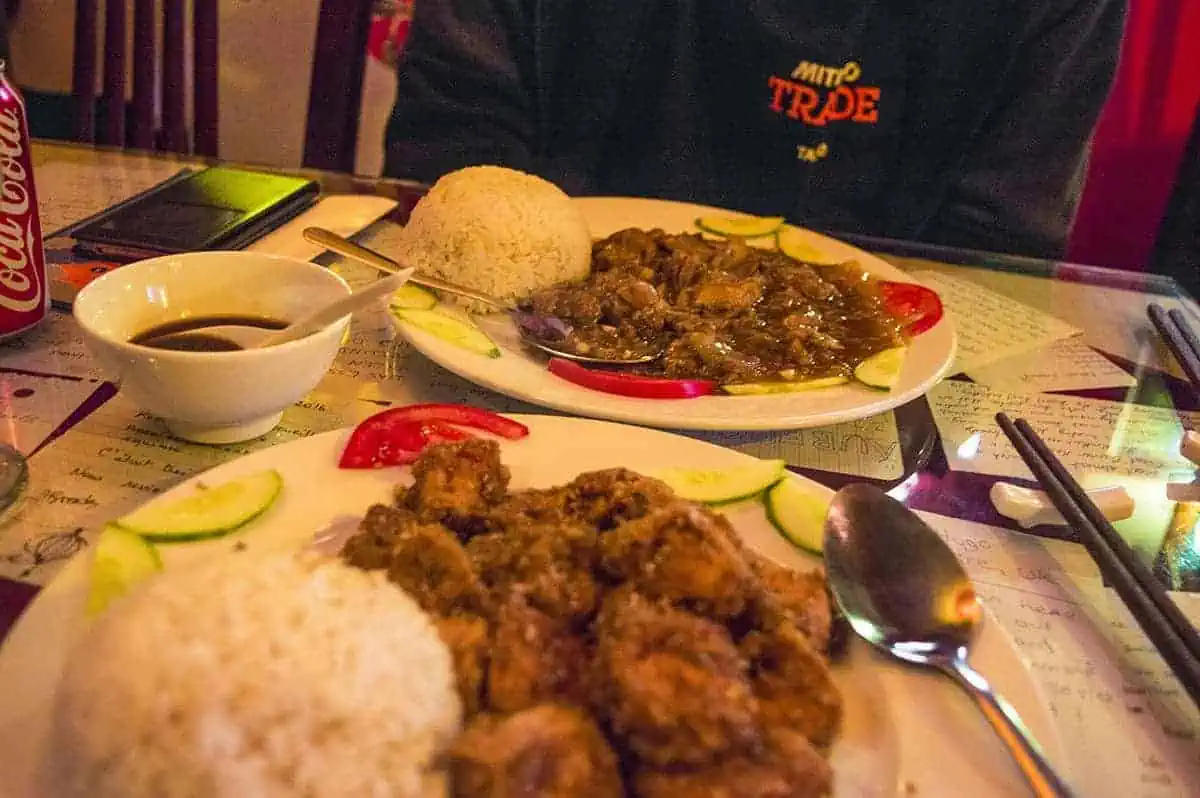
14. Luggage Scams In Vietnam
You won’t have these issues with the larger bus companies or those more reputable ones. However, on some bus companies, the staff will tell foreigners that they have to pay a fee when their bags are being loaded underneath the bus.
Unfortunately, a lot of the workers there know travelers will happily pay a small amount to avoid confrontation, and then they can just pocket the cash.
There is no such thing as a baggage fee in Vietnam. Therefore just walk ahead down to your assigned seat.

15. Shopping Scams In Vietnam
Now if you are coming to Vietnam of course you can’t miss out on a spot of shopping. I mean prices here are often too good to pass up!
There are a few things you should know to prevent you from being scammed while shopping in Vietnam.
One of the most common scams is sellers passing off fake goods as real. You should always assume the item you are buying is fake or a knock-off, no matter what the seller says.
Whether the item is a brand name, or simply the material it’s made from could be fake, such as leather.
Tip: If you are buying a leather item that is supposed to be real, but if you suspect it is fake then you can heat a piece of metal with a lighter and hold it to the material. If it is not real leather then it will melt.
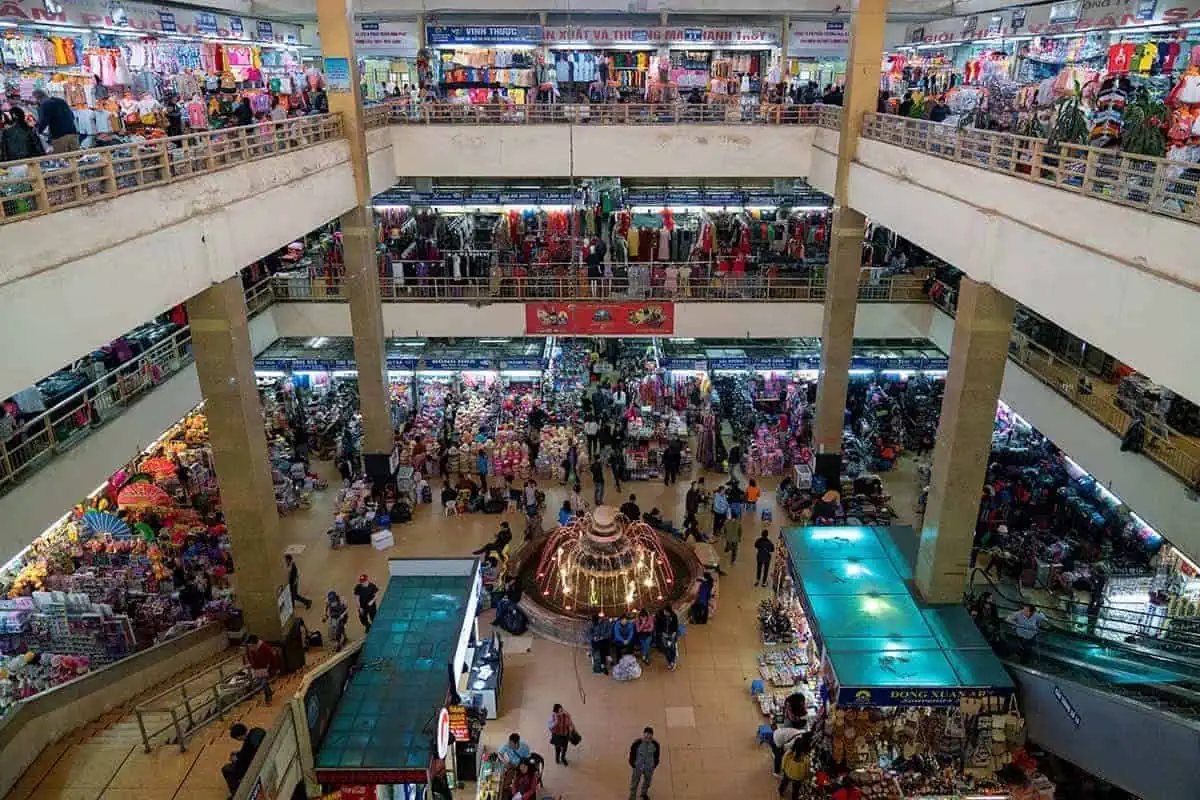
16. SIM Card Scams In Vietnam
When I touch down in a new country one of the first things I do is buy a sim card. This keeps me connected in a foreign place and easily able to access maps and Google Translate if required.
Unfortunately there has been a common scam in Vietnam regarding SIM cards happening.
You can nearly buy a SIM card anywhere in Vietnam. Seriously, every little corner store will sell them with speedy internet and unlimited texts. The process is super easy as well since you don’t need to provide any personal information.
The SIM card scam operates as these small corner stores purchase the cards in bulk to sell to travelers at higher prices. That’s just business right?
Well unfortunately as soon as they purchase them in bulk the plans on them have already started and the days of usage start being used up.
This means that when you wander into this business and are promised unlimited data for 30 days, that actually may not be what you are getting. In some cases, travelers have reported that SIM cards stop working in just a couple of days.
This is also a scam that has been operating at airports.
The best way to avoid this is to only buy from an official seller, or even better directly from the telecommunication company themselves.
By doing this you will prevent this type of scam from happening to you and you won’t be paying that marked-up price either!
View this post on Instagram A post shared by Sewa Travel Wifi Medan (@sewawifi)
17. ATM Skimming Tourist Scams In Vietnam
Unfortunately, something that is popping up all around the world is ATM skimming, and this includes it being one of our scams in Vietnam. Since Vietnam is mainly a cash society you will find yourself visiting the ATM fairly often.
Though unbeknownst to you that shiny, air-conditioning ATM you just visited had a skimmer installed and recorded your card details.
The best way to avoid ATM skimming is to be particular about which ATMs you decide to use. Make sure you visit ones in controlled environments such as banks, where the staff monitor the machine with cameras, or a guard, is present.
If you don’t have any luck with finding one like this then inspect the card reader and keypad, even give them a good tug to be extra safe.

Other Important Things To Be Aware Of In Vietnam
These aren’t considered Vietnam scams per se. They are everyday things that you should simply be aware of to save you money.
Corrupt Police If You Are Renting/Own A Motorbike
Like many places around the world, you don’t need to look too far to find corrupt police here in Vietnam. This often will come in the form of asking for bribes to get out of a ticket etc.
The best thing to do here is to drive around with a fake wallet only carrying a small amount of cash. That way when you are pulled over and asked to pay a bribe it looks like you only have a small amount of cash on you.
Picture Perfect
Not so much a scam, but more something to be aware of is people asking for payment for photos. This is rather common throughout Southeast Asia, though if you aren’t prepared for it, it can be quite a surprise.
In my experience, you will generally know who these people are in advance of taking their photo. In my case, it was someone perfectly perched on top of a water buffalo in Hoi An .
The local ‘model’ will generally encourage you to take the photo and pose, compared with a regular person who would simply ignore you and go about their own business.
Seemingly nearly impossible to avoid, ATM fees can add up fast! This is especially true when backpacking Vietnam on a budget .
Though, here in Vietnam, some ATMs charge a lot more than others. Agribank is the cheapest ATM to use with fixed fees throughout the country.
USD to VND Conversions
Now the currency in Vietnam is rather large, you will often find yourself getting a few million out of the ATMs. Being such a large amount it is rather common that the prices are abbreviated, eg 500,000 becomes 500.
Also, USD will also be used rather often in popular tourist bars and restaurants, so make sure you are reading menus and prices carefully so you fully understand how much you are paying.
Wrap-Up: Vietnam Tourist Scams
Vietnam is a beautiful country with a rich culture and history, but it also has its share of tourist scams that can ruin your trip. We have discussed some of the most common scams in Vietnam and provided some tips on how to avoid them.
By following these tips, you can enjoy your visit to Vietnam without falling victim to these scams.
Remember, not all Vietnamese people are scammers, and most of them are friendly and hospitable. However, it is always better to be safe than sorry and to be prepared for any situation.
LIKE IT? PIN IT!

Want more Vietnam Inspiration? Check out….
- 3 WEEKS IN VIETNAM ITINERARY
- COMMON SCAMS IN VIETNAM
- BEST THINGS TO DO IN VIETNAM
- COST TO TRAVEL IN VIETNAM & MY BACKPACKING BUDGET
- BACKPACKING VIETNAM TRAVEL TIPS
- TAKING A VIETNAM SLEEPER BUS: WHAT YOU NEED TO KNOW
- SURVIVING A VIETNAM SLEEPER TRAIN
- BACKPACKING HANOI TRAVEL TIPS
- 3 DAYS IN HANOI ITINERARY FOR TRAVELERS
- BEST HOSTELS IN HANOI
- VISITING HA LONG BAY ON A BUDGET
- DISCOVERING LAN HA BAY & CAT BA ISLAND
- HANOI TO SAPA
- 3 DAY IN SAPA ITINERARY
- WHAT IS SAPA LIKE IN FEBRUARY
- HANOI TO HUE TRANSPORT GUIDE
- VISITING THE IMPERIAL CITY OF HUE
- 2 DAYS IN HUE BACKPACKING ITINERARY
- HUE TO DA NANG: ALL WAYS TO TRAVEL
- DA NANG TO HOI AN: EASIEST WAYS TO TRAVEL
- TRA QUE VEGETABLE VILLAGE IN HOI AN, VIETNAM
- A MORNING AT THE MY SON TEMPLES IN HOI AN, VIETNAM
- THANH HA POTTERY VILLAGE IN HOI AN
- BACKPACKING HOI AN ITINERARY
- BEST THINGS TO DO IN HOI AN
- HOI AN TO NHA TRANG TRANSPORT GUIDE
- SNORKELING IN NHA TRANG
- BACKPACKING NHA TRANG TRAVEL ITINERARY
- BEST BEACHES IN NHA TRANG WORTH VISITING
- NHA TRANG TO MUI NE TRANSPORT GUIDE
- BACKPACKING MUI NE TRAVEL GUIDE
- BEST THINGS TO DO IN MUI NE
- MUI NE TO HO CHI MINH CITY: ALL WAYS TO TRAVEL EXPLAINED
- CHEAPEST TOUR OF THE CU CHI TUNNELS: IS IT WORTH IT
- BACKPACKING HO CHI MINH TRAVEL GUIDE
- HOW TO TRAVEL VIETNAM TO CAMBODIA: HO CHI MINH CITY TO PHNOM PENH
Disclaimer: This post contains affiliate links. So, if you click on it and purchase something, I get a small percentage at no extra cost to you. As always all opinions are my own and your support is much appreciated.
Related Posts
![Vietnam Sleeper Train: Top Tips For Surviving [2024] 1 Elevated view of a first-class sleeper train in Vietnam traversing a graffiti-laden bridge, integrating travel with urban art.](https://www.backpackerswanderlust.com/wp-content/uploads/2023/10/vietnam-sleeper-train-4-600x400.webp)
Vietnam Sleeper Train: Top Tips For Surviving [2024]
Find out all about taking a Vietnam sleeper train. Let’s talk about whether it is [...]
18 Comments

Sapa In February: All You Need To Know (2024)
Find out what Sapa in Vietnam is like and my experience hiking in February. Learn [...]

Imperial City Of Hue: What You NEED To Know
Find out about spending a day exploring the Imperial City of Hue in Vietnam. Learn [...]
12 Comments
Tasha Amy is a true backpacker at heart and has been discovering the world on a budget since 2015. Based in Gisborne, New Zealand she will spend many months each year traveling overseas as a solo female traveler before coming home and sharing her adventures online with you.
3 thoughts on “ Scams In Vietnam: READ BEFORE YOU VISIT (2024) ”
Wow Tasha, this is da website to look into when travelling to Vietnam. Thank you so much for sharing such comprehensive information. It is really helpful. You’re just making my life so much easier by sharing all your tips and advice. I’ll be reading it several times before I go to Vietnam which is pretty soon. Thank you again!
Thank you 🙏. I always type in ‘Tourist scams in ……..’ some great tips. It’s always better to be aware and educated prior to going. I went to Beijing a few years ago and basically everything happened pretty much in the order I read about it. Knowing literally saved hundreds of dollars or more even. Thanks heaps. Rob
Tres bon blog peut on utiliser les cartes de crédit?
Leave a Reply Cancel reply
Your email address will not be published. Required fields are marked *

Tourist Scams in Hanoi, Vietnam
Hanoi, the capital city of Vietnam, is a captivating blend of rich history, vibrant culture, and stunning landscapes. It has become a must-visit destination for travelers from all over the world.
While Hanoi offers many experiences and unforgettable moments, it’s essential to be aware of the potential pitfalls that can mar your journey: tourist scams.
As in many tourist destinations, Hanoi has its fair share of individuals looking to take advantage of unsuspecting visitors.
This guide is your key to a safe and enjoyable exploration of Hanoi. We’ll help you navigate the city’s streets with confidence and share insights into the typical tourist scams you may encounter.
By arming yourself with knowledge and taking practical precautions, you can experience the best that Hanoi has to offer while avoiding the pitfalls that can sometimes accompany travel.
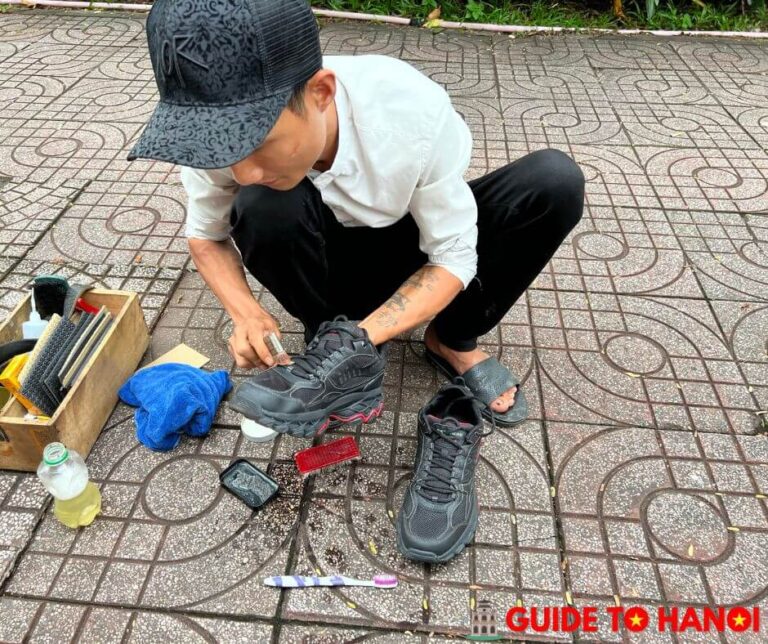
Hanoi, like many tourist destinations around the world, is not immune to various scams that can target unsuspecting visitors.
While most people in Hanoi are friendly and honest, it’s essential to be aware of some common tourist scams to ensure a safe and enjoyable trip.
Here are some of the typical scams you might encounter in Hanoi:
The shoe shine scam.
This scam often occurs around the Hoan Kiem Lake area. Scammers will approach you and offer to shine your shoes.
They’ll start the service without discussing the price, and when they finish, they demand a significantly inflated fee.
To avoid this, politely decline any unsolicited offers for services.
The Fake Taxi Scam
Unlicensed taxi drivers might approach you at the airport or in popular tourist areas, offering you a ride.
They usually have unmarked or counterfeit taxis.
Always use reputable taxi services, like Mai Linh or Vinasun, which have meters and marked vehicles.
If possible, have your accommodation arrange transportation for you.
Overcharging at Markets
In markets like Dong Xuan Market, sellers may try to overcharge tourists for items, especially if they know you’re unfamiliar with local prices.
Bargaining is common in Vietnam, so be prepared to negotiate prices, but do so politely and respectfully.
Fake Currency
Be cautious when exchanging money, and avoid changing your currency at small, unofficial exchange offices.
Scrutinize your money, as counterfeit Vietnamese Dong notes are in circulation.
It’s safer to use ATMs or established banks for currency exchange.
Impersonating Tourist Police
Some individuals may pose as tourist police officers and ask to see your identification and money for “verification.”
Always ask for proper identification, and if you have any doubts, contact your embassy or consulate for assistance.
Street Vendor Scams
Some street vendors may try to overcharge you for food, drinks, or goods. Always confirm the prices before making a purchase.
It’s also a good idea to ask locals or other travelers for recommendations on where to eat or shop.
Motorbike Rental Scams
When renting a motorbike, document its condition, take clear pictures, and agree on the rental terms, including the price and the return time.
Some rental shops might accuse you of damaging the bike and demand excessive repair fees upon return.
“Free” Tours and Friendly Locals
Be wary of strangers who offer to show you around the city for free. They might take you to shops or restaurants where they get a commission on your purchases, leading to inflated prices.
To avoid falling victim to these scams, it’s essential to exercise caution, stay informed, and do your research before your trip.
You can also seek advice from reputable travel guides, your accommodation, or other travelers to navigate the city safely and enjoy your time in Hanoi.
How can I avoid getting scammed in Hanoi?
Avoiding scams in Hanoi, as in any other tourist destination, requires a combination of vigilance, preparation, and common sense. Here are some tips to help you avoid getting scammed in Hanoi:
Research in Advance:
Before your trip, research common scams and read about the experiences of other travelers in Hanoi – and actually, you are doing it right now by reading this guide. Good job!
Knowledge is your best defense.
Use Reputable Transportation:
Stick to well-known taxi companies like Mai Linh and Vinasun with metered fares. Consider using ride-sharing apps like Grab for added security.
Exchange Money Carefully:
Exchange currency at reputable banks or use ATMs to get local currency. Avoid small, unofficial exchange offices.
Bargain Politely:
Bargaining is expected in Vietnamese markets, but do it respectfully and with a smile. Always confirm the price before making a purchase.
Stay Cautious with Street Vendors:
Be cautious when buying from street vendors. Verify prices and consider asking locals for recommendations on where to eat or shop.
Document Motorbike Rentals:
When renting a motorbike, document its condition, take clear pictures, and agree on the rental terms, including the price and return time.
Be Wary of Unsolicited Offers:
If someone offers you unsolicited assistance, tours, or services, especially if they seem overly friendly, be cautious. Politely decline such offers.
Use Official Information:
When dealing with authorities or official matters, ask for proper identification, and if you have concerns, contact your embassy or consulate for guidance.
Trust Reputable Tour Operators:
If you plan on taking tours or excursions, use well-established and reputable tour operators.
Check online reviews and ask for recommendations.
Be Mindful of Your Belongings:
Keep an eye on your belongings in exceptionally crowded places to avoid theft or pickpocketing.
Stay in Established Accommodations:
Choose well-reviewed and established hotels or guesthouses to reduce the risk of accommodation-related scams.
Learn Basic Vietnamese Phrases:
Learning a few basic Vietnamese phrases can help you communicate more effectively and deter scammers who think you’re an easy target.
Trust Your Instincts:
If something doesn’t feel right or someone is pressuring you, it’s okay to walk away. Trust your instincts and prioritize your safety.
Remember that while scams can happen, most people in Hanoi are honest and welcoming.
By staying informed and taking these precautions, you can have a safe and enjoyable experience in this beautiful city.
In conclusion
As your journey through Hanoi ends, it’s essential to reflect on the experiences you’ve had and the lessons you’ve learned.
Navigating the bustling streets of this magnificent city, with its unique blend of tradition and modernity, can be a rewarding adventure.
The vibrant culture, delectable cuisine, and warm hospitality of the Vietnamese people are sure to leave a lasting impression.
While Hanoi is generally a safe destination for travelers, it’s crucial to be aware of the potential tourist scams that can arise.
This guide has equipped you with knowledge and strategies to protect yourself from falling victim to these scams.
By exercising caution, respecting local customs, and using common sense, you can make the most of your visit to Hanoi and create enduring memories.
Ultimately, the beauty of Hanoi lies not only in its historic landmarks, delicious street food, and bustling markets but also in the connections you forge with its people and the experiences you collect along the way.
So go forth, explore, immerse yourself in the local culture, and savor the flavors of Hanoi, all while staying vigilant and mindful of your surroundings.
In doing so, you’ll ensure that your time in this remarkable city is unforgettable for all the right reasons.
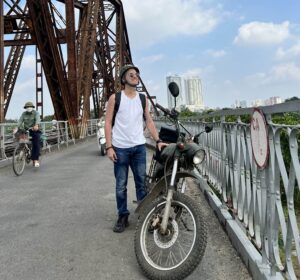
Hey there! I'm Matan, an avid lover of Hanoi. In my free time, you can usually find me exploring the city's vibrant streets, sampling the delicious local cuisine, or immersing myself in the diverse culture of Vietnam.
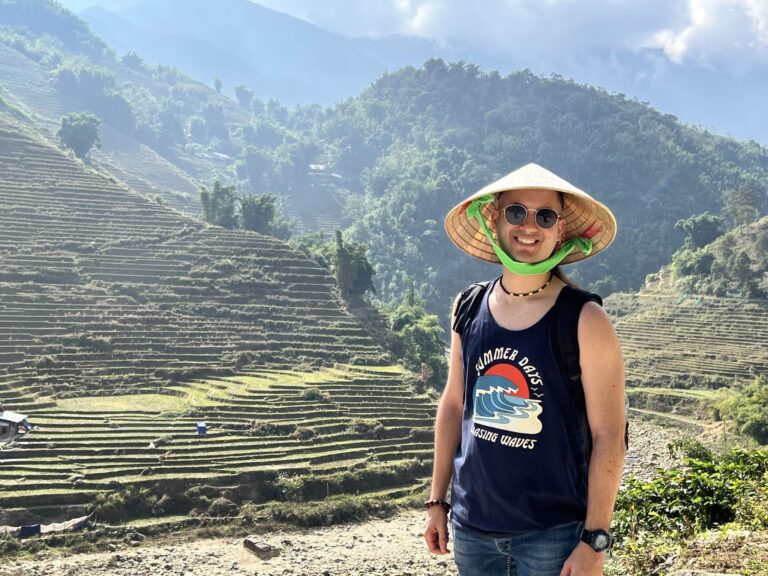
Hey, I’m Matan! As a passionate, thrill-seeking traveler, I instantly connected with Hanoi.
From the bustling streets and flavorful street food to the unique culture and vibrant nightlife – this dynamic city held something new and exciting around every corner.
Exploring further revealed hidden gems – peaceful parks, colorful temples, friendly locals – that truly made it a place I wanted to call home.
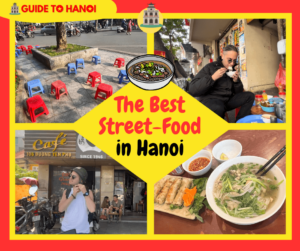
Related Articles:

Leave a Reply Cancel reply
Your email address will not be published. Required fields are marked *
Save my name, email, and website in this browser for the next time I comment.
Are you planning a trip to Hanoi, Vietnam?
Then join our Facebook group, where you can find all the tips, tricks, and must-see places while visiting this breathtaking city!
- 11 Common Tourist Scams To...
Common Tourist Scams to Avoid in Vietnam

Keep a lookout for the following tricks during your stay in lovely Vietnam and you won’t end up in a pickle.
Vietnamese people are proud to show their beloved country to foreigners, and it’s easy to see why. The land is travel-magazine beautiful and the people are wonderful — well, almost all of them. Unfortunately, as with any place that relies on tourist trade, there are scammers and con artists looking to swipe your cash and valuables. Here’s how to spot them and avoid their scams.
You can also join Culture Trip’s specially curated small-group Vietnam adventure , which allows you to experience the best of this fascinating country with a Local Insider whose expert knowledge will mean you never have to worry about getting scammed.
1. Speed thieves
Picture the scene: you’re sitting at a café or chatting on a street corner. A scooter with a pillion passenger pulls up. The passenger grabs your bag and the scooter speeds away. Pedestrians on the streets of Saigon are particularly vulnerable to this one. How to avoid it? Use a bag with a clasp catch, or a sturdy shoulder strap. If you’re sitting in a street café, loop the strap through your table leg and don’t sit street-side.
2. Fake leather
Shops in Hoi An and Saigon are famous for their handmade leather – especially bags, belts and shoes. The examples on display are usually created using the real thing, to entice potential customers in. Bespoke items are often partly fake – with leather outers but plastic lining or shoe-inserts. Before paying, check your garment thoroughly. If you suspect it’s fake, heat a piece of metal with a lighter and hold it to the plastic, which will melt. Then demand your garment is reworked.
3. Just not the ticket
This scam is particularly common at concert venues in Hanoi . While you’re queuing up to buy a ticket for a show you are informed that all the cheaper seats are sold out and that you must buy a much more expensive alternative. Always politely but firmly request that the ticket seller double-check – and if in doubt politely tell them that you don’t understand the problem. Then ask a local for help in purchasing what you need – the Vietnamese are happy to help tourists.
4. Collared by the dollar
Prices in Vietnam are often abbreviated and sometimes quoted in US currency – so 10 can just as easily mean $10 as it can 10,000 dong (about £0.35). Make sure that you check exactly what money you’re being asked for – especially in well-frequented tourist bars and restaurants. And if you’re paying in dollars be sure to check that you’re getting the right change – both according to current exchange rates and the note denominations.

Become a Culture Tripper!
Sign up to our newsletter to save up to $1,200 on our unique trips..
See privacy policy .
5. Duplicate businesses
A popular tourist agency or hotel will often spawn a whole host of imitators with almost exactly the same name. For example, a reputable business called Lotus Tours might engender a string of far less professional me-toos called Lotus Tour, Lotus Guest Tours or Lotus Touring. These often work in cahoots with drivers in the area. Be sure to check the address of the genuine establishment and to share it with your taxi driver before supplying the name of the business.
6. Photo scams
While frankly understandable, being asked for money when you take someone’s picture can be as unexpected as it is common throughout Asia. Of course, many local people are accustomed to tourist practices and want their remuneration. So before so much as looking through the viewfinder, ask permission. That way you can be sure that, if someone does want payment for that Instagrammable snap, you know in advance exactly how much, and won’t risk an unpleasant confrontation when that beaming individual turns to you and demands $10.
7. The great cycle switcheroo
If you’re in Vietnam for a while, buying a bike and selling it when you leave makes sound economic sense. But keep your eyes open for faulty specimens, dodgy paperwork and switcheroos. In this scenario you’re shown a bike, which is then sent to the work room for a minor repair and exchanged for an older, inferior version of the same model. Conduct a test ride, check the paperwork and verify the registration before and after the final workshop dust-over.
8. When peanuts are not peanuts
Draft beer in Vietnam is cheap, cold and low in alcohol. With the hot weather it’s easy to gulp back. But be careful if your pints come with accompanying bowls of peanuts – these are liberally served in bars throughout Hanoi and Nha Trang. Portions are refreshed with every glass, whether you ask for them or not, and are easily – almost subconsciously – munched. Know, though, that they’re almost always as expensive as the beer, so your end-of-evening bill may be double what you expected to pay.
9. Old SIM cards for new
Buying a SIM card for your mobile in Vietnam couldn’t be easier – with every outlet from official telecom shops to corner stores selling them and with no need to supply personal information in order to obtain them. Beware the cheapest deals – they’re often to be found in unofficial fly-by-night stores that buy in bulk from official outlets at discounted prices. The problem with that? Since they start once cards have been purchased from the official outlets your cheapo, with-data plan might already be days old by the time you start using it.
10. Money switch
It’s usually motorbike taxi drivers that try this one. They use sleight of hand to switch whatever money you give them for smaller denominations, and then they put on a dramatic show of indignation — to make it appear that you’re the one trying to rip them off. The most common scenario is switching a 500,000VND note for a 20,000VND, which is an easy trick to spring since they’re both blue. The best way to avoid this is to pay with small bills. Break your larger notes at convenience stores, restaurants or other reputable businesses.
11. The groin grab
This one involves taking advantage of men in touristy areas. An attractive female will start flirting with a guy who’s out by himself. Telling him how handsome he is, she starts enquiring whether he’d like a massage, all the while letting her fingers flit seductively around his trouser flies. Of course there’s an ulterior motive: emptying his pockets. Girls often work in teams for this one.
12. Fake taxis
The two best companies in Vietnam are Vinasun (white) and Mai Linh (green) – with a few exceptions their drivers are honest. Unfortunately, other companies use identical colour schemes. Their trick is to point out their meter – everyone knows to avoid taxis without one – on which your fare proceeds to climb, suspiciously, much faster than it should. Be careful when you pay, too: cab drivers, like motorcycle taxi drivers, will often try the money switch scam. To be on the safe side, stick to the real deal – Vinasun or Mai Linh – or use a reputable app, such as Grab or Uber.
13. The two-shine
There are good reasons for stepping out in sneakers. If you’re wearing snazzy shoes in a touristy area, you can bet you’ll be hounded by shoe-shiners. More often than not, foreigners give in and get theirs done just to be left in peace, but here’s, as it were, the rub: a price is negotiated, but when the shoes come back, it has doubled, because of course the original amount quoted was just one shoe. And you’re advised to cough up – kick up a fuss and underworld muscle is never too far away.
14. A fine bag of tea
Marijuana is illegal in Vietnam, but many foreigners smoke it openly. The problem is that tourists usually buy it from the motorbike taxi drivers who lurk around the hostels and bars. They’ll let you smell a bag of real marijuana as they negotiate the price, but once you pay, they’re gone and you’re left with a bag of tea. And good luck reporting it to the Better Business Bureau.
15. The coconut photo shoot
This one happens mostly in Hanoi. Street vendors with baskets of coconuts will ask if you want to use their bamboo baskets for a photo shoot. But while you’re clicking away, they’re chopping open coconuts for you that cost an obscene amount. What’s that you say? You didn’t ask for them? Get ready for some shouting and a gathering crowd of people who don’t take kindly to foreigners cheating the honest Vietnamese.
16. Bait-and-switch massage
Massage parlors use this one to prey on lascivious men who ought to know better. A beautiful woman on the street convinces a guy to step inside for a massage, usually by flirting and laughing a lot. But the minute he has paid, said beautiful woman disappears, leaving a surly individual with gorilla-rough hands to perform the treatment. Another common scam is to charge the unwary ridiculous amounts for such basics as water and towels. When you refuse to pay, the gangsters step in. The moral of the story? Don’t go following pretty people into dark alleys. Do some proper research online instead.
17. Motorbike taxi
Motorbike taxis — xe ôm in Vietnamese — are notorious cheats. In touristy areas, many of them are gangsters hoping to sell fake drugs to gullible foreigners. But the most common scam they pull is when they agree on a price for a trip and then ask for a lot more when you arrive at your destination. They’ll tell you that you must’ve misheard them, and when you argue, they escalate things quickly . They know most foreigners would rather pay a couple more dollars than make a huge scene in a strange area with no friends around.
18. The wandering fare
Even the reputable taxi companies have staff that pull this one on tourists. Foreigners don’t really know the best routes, so the drivers use this to their advantage. They take a creatively long and circuitous route, often pretending to be lost so they can get a few more dollars by wandering around through back streets. A good way to avoid this is by having a map open on your phone. If the driver goes off in a strange direction, wave the map at them. But the best way to avoid this is to take Uber or Grab. They follow routes on the map.
19. Baggage fee
You usually won’t have issues with the larger bus companies, but a common scam is to tell foreigners that they have to pay a fee when their bags are being loaded into the hold. Staff know the unwary will just pay the small fee to avoid confrontation; and since they can’t read Vietnamese, foreigners tend to assume the fee was mentioned in some unintelligible small print. But there’s no such thing as a baggage fee in Vietnam, so politely refuse and step aboard. And ignore instructions to move to the back by the toilet. If you have an assigned seat, stay in it. If somebody’s in it, pick another one and sit tight, regardless of what they say.
Alex Robinson contributed additional reporting to this article.

See & Do
The 14 most beautiful towns and cities in vietnam.

Guides & Tips
The best destinations to visit in september.

Things You Should Know About Vietnamese Culture

The 5 Coolest Neighbourhoods in Ho Chi Minh City

The 10 Best Things to See and Do in Vietnam

A Guide to the Mekong Delta, Vietnam

Local Insider – Showcasing the Beauty of Vietnam
Top tips for travelling in vietnam.

The 7 Best Places to Go Surfing in Vietnam

The 23 Best Things to See and Do in Ho Chi Minh City, Vietnam

What's Cheaper To Buy in Vietnam?

Food & Drink
The 8 best banh mi spots in hanoi, vietnam.
Culture Trip Summer Sale
Save up to $1,200 on our unique small-group trips! Limited spots.

- Post ID: 1636653
- Sponsored? No
- View Payload

GetVisaVietnam.com
Scams in hanoi – things you should know before coming to hanoi.
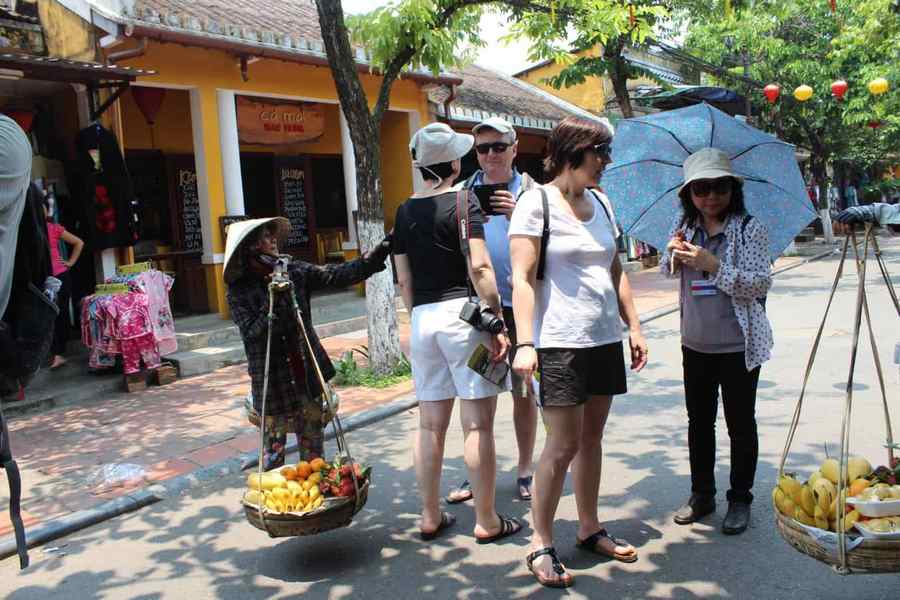
Hanoi is the charming capital of Vietnam, known for its rich history, lively culture, and mouthwatering cuisine. However, as with any major tourist destination, travelers should be aware of common scams and safety precautions to avoid being taken advantage of. In this article, we will discuss the most prevalent scams in Hanoi , how to recognize them, and tips to stay safe during your visit. Forewarned is forearmed, so read on before your trip to this fascinating city!
Is hanoi Safe? and how to avoid Scams
Hanoi is generally considered safe for tourists. However, like any other popular tourist destination, there is still a possibility of encountering scams or petty crimes. Here are some tips to avoid scams in Hanoi:
1. Research and be informed: Before visiting Hanoi, research about common scams and tricks used by scammers in the area. Understanding what to expect can help you be more prepared.
2. Use reputable transportation: Opt for reputable taxi companies, such as Vinasun or Mai Linh, or use ride-hailing apps like Grab to ensure fair pricing and safety.
3. Be cautious around street vendors: Some street vendors may try to overcharge or give incorrect change. Check prices before purchasing, and be alert when handling money.
4. Keep an eye on belongings: Be mindful of your belongings, especially in crowded areas. Use a money belt or secure bag to keep valuables safe.
5. Avoid unsolicited help: Be cautious of strangers offering unsolicited help or guidance. While there are friendly locals, scams may involve individuals pretending to assist you but ultimately tricking you into paying them.
6. Negotiate prices beforehand: When taking a taxi or using services like cyclos or street food vendors, negotiate prices in advance to avoid surprises or inflated costs.
7. Use registered tour companies: If booking tours or excursions, choose reputable and registered tour operators to ensure quality service and eliminate the chances of being scammed.
8. Be aware of “fake” attractions: Scammers may advertise fake or non-existent attractions to lure tourists. Verify information beforehand or seek recommendations from trustworthy sources.
9. Ignore unsolicited requests or distractions: Scammers may try to distract you with requests for money or assistance while an accomplice attempts to steal from you. Stay cautious and avoid engaging in such situations.
10. Trust your instincts: If a situation feels suspicious or too good to be true, trust your gut instinct and proceed with caution.
While these tips can help you avoid scams, it’s important to remember that the majority of people in Hanoi are honest and friendly. By staying alert, informed, and exercising general precaution, you can safely enjoy your time in the city.
10 Popular Hanoi Scams
Some of the common scams to be aware of include:
1. Exchange Rates
When exchanging money, be wary of people on the street who claim to offer better exchange rates than the banks or official money changers. Often their calculations are confusing, and they will shortchange you or give counterfeit bills. Only exchange money at authorized locations like banks, airport kiosks, or reputable exchange shops. Always count your money carefully before leaving.
Avoid exchanging too much money at once in case your cash is later stolen or lost. Exchange only what you need for the day. And never exchange money in dark, deserted areas where thieves may be lurking.
2. Hanoi Taxi Scams
Only take rides from official metered taxis with clear company names/logos on the sides. Beware of unmarked cabs where the drivers may charge exorbitant fares or take you to scam businesses for kickbacks. Also avoid motorcycle taxis outside the Old Quarter, as some drivers rob passengers mid-ride by driving to quiet areas.
When catching a taxi at the airport or tourist sites, never go with a driver who approaches you inside claiming your pre-booked ride is unavailable. This is a common scam. Go to the official taxi stands outside.
Before getting in a taxi, always agree upon the fare. Have the driver reset the meter, and make sure it is on kilometers (km), not miles. Pay the exact metered fare, as some cabbies try to round up. Get a receipt, and have small bills ready to avoid change scams.
3. Pickpockets & Bag Snatchers
Pickpocketing and bag snatching are rampant in crowded Hanoi areas, especially around tourist attractions. Carry valuables in front pockets, wear bags across your chest, and be alert in busy environments. Bag snatchers on motorbikes often grab shoulder bags and purses then speed away. Walking on inner sidewalks can make you a harder target. Leave non-essentials locked in your hotel safe.
4. Fake Tours & Tour Agencies
Only book tours through reputable agencies, checking recent reviews and getting recommendations first. Avoid agents outside that lure you with cheap deals. The tours may never happen, or you could get stuck with extra fees, subpar guides, and shoddy transportation. Ensure any adventure tours have proper safety protocols.
When booking Halong Bay cruises, choose quality boats as cheaper ones can be dirty, overcrowded, unsafe or in poor condition. Cost is usually indicative of the experience you’ll get. Read the fine print carefully.
5. Hotels Scams – What to avoid in Hanoi
Beware booking homestays or mini hotels online that seem suspiciously cheap. You may arrive to find poor conditions, extra fees tacked on, staff demanding more money, or the place overbooked. Only book trusted hotels.
Also avoid airport touts offering free rides to hotels, as they often take you to places that pay them commissions. Take an official taxi instead. When checking in, inspect rooms thoroughly for issues you can document, as some hotels try charging damages falsely attributed to guests later. Pay with a credit card if possible for transaction security.
6. Be careful with the Free Donuts
Street sellers offering free food samples may shortchange you if you later decide to buy. The “free donuts” scam goes like this: A seller lets you try a donut, then charges you for an entire box when you want to buy some. They distract you with rapid Vietnamese, confuse the amount owed, and overcharge you. Politely decline free samples unless you definitely plan to buy.
7. The scam of Free Photos Opportunity
Around scenic spots, swindlers with professional cameras approach pretending to be photography students looking for subjects. If you agree to free photos, they later insist on payment for prints. Legit students will identify themselves with university IDs. Simply decline the unsolicited offers to avoid the hassle.
8 Over-charging
Always verify published prices for attractions, as ticket sellers sometimes spot tourists and charge them more. Overcharging also happens frequently in taxis, cafes, bars and shops. Have small bills handy, watch the change carefully, and don’t pay for anything overpriced. Be especially vigilant when shopping at markets or street stalls.
9 Restaurants that Do Not Display Prices
Avoid restaurants with no prices listed, as the bill is sure to be inflated. Menus without rates, vague menu terms like “seasonal price”, and having dishes weighed after ordering (common at street food stalls) are red flags. Request prices upfront, so there are no “surprises” when the check comes.
10 Motorbike Rental Scams
Renting a motorbike can be convenient for exploring greater Hanoi. But only use reputable rental companies, otherwise you risk mechanical breakdowns, bad accidents due to poor bike maintenance, or even theft. Examine bikes beforehand for pre-existing damage. Otherwise, you may be falsely accused of causing it and forced to pay expensive repair fees. Insist on a helmet rental too.
Hanoi is an amazing city full of wondrous sights, sounds, and food. But travelers should be aware of the common scams targeting tourists in order to avoid losing money or having their trip ruined. By learning popular grifts like money exchange tricks, taxi meter scams, bogus tours, and fake free gifts, visitors can steer clear of thieves and unscrupulous operators. Remaining vigilant, using only reputable companies, securing valuables properly, and following other safety tips will allow people to fully immerse themselves in Hanoi’s splendor without worry. Forearmed against these scams, travelers will make priceless memories exploring this captivating Vietnamese capital.
RELATED POSTS

First Time Travel Tips in Phu Quoc Island, Vietnam

48 Hours in Hoang Su Phi: Rice Terraces and Cultural Charm

Planning Your Sapa Trip. How Long Is Enough?

China – Vietnam Border Crossings Essential Information

[Infographics] Hanoi Scams and How to Avoid Them
Scams in holiday are more and more popular and if you are not careful, you may become one of the victims of these scams. It means that these scams will create disappointment and annoyance throughout your whole journey, especially in Hanoi, where this problem is alarming. These are some of the Hanoi scams you may encounter while traveling in Hanoi and some tips to avoid them.
Exchange rates
If you’re travelling to Vietnam, you’ll need to exchange money. Cash is the most popular way to pay for everyday things. You can learn more about the different ways to exchange money in Hanoi , such as cash, credit cards, and ATMs, in Cash, Credit Cards and ATMs in Vietnam .
If you need to exchange money in Hanoi, you can do it at banks or jewellery stores. Banks are the better option as they provide secure exchange rates. Be careful when exchanging money at jewellery stores, as there is a risk of getting scammed.
>>> The Best Places to Exchange Money in Hanoi
Check exchange rates before exchanging money at hotels, gold and jewellery stores. Ask the price in the currency you’re going to pay before booking; and check the rate again upon arrival. If the rate is too high, ask for an explanation before giving any guarantee. Pay in the currency quoted, usually dollars.

Hotel scams – “that” to avoid in Vietnam
Hotels may say no room but suggest another of similar price & quality. Agree, as don’t want to waste time and tired from travel. Later, may find new hotel better than usual hostels/guesthouses.
When checking out, be mindful of the room cost ($$$/night) and pay the bill to avoid conflict with staff.
Don’t leave your passport as a deposit when renting. Pay in advance instead, to avoid issues with your passport and losing money.
Take extra care when choosing accommodation in Hanoi; there are many fake hotels and guesthouses, so be sure to pick the right one.
Make sure you double-check with Google Maps to be sure you get to the right hotel.
Fake Tours – Tour Agencies

Hanoi is a popular tourist destination with many tour agencies. Booking online can be risky. We suggest using TripAdvisor. It’s a reliable website for finding a tour agency in the Old Quarter without taking a risk.
Beware of fake tour agencies, especially in large cities like Hanoi. An example is Sinh Tourist agency, which has 7 fake branches scattered around the city. Do not expect the best service from these fakes.
Fake tour agencies are a problem in many cities, including Hanoi. To avoid scams, check Google Maps for the agency’s exact address.
Our tour is trusted by TripAdvisor. Check Onetrip hanoi tours
Hanoi Taxi Scams
For getting around Hanoi, you might can’t avoid hailing a taxi to travel around. However, there are a couple of common problems that happen with the taxis in Hanoi and here are the ones to look out for.
The first and main concern is the taxi ride from the airport. I must say that the airport is a haven for potential scammers. If you get outside Noi Bai airport after the arrival, you will mostly be invited a ride by some taxi drivers. Most will try to demand a fixed fare that’s much higher than the normal rate. Ensure you get in a taxi that will agree to go by the meter (it should end up costing about $10-15 USD).

Hailing a taxi is one of the options you might choose to travel around Hanoi. However, there are a couple of common problems that happen with the taxis in Hanoi and here are the ones to look out for.
To avoid taxi scams, there are several ways. You can book a Grab Car by using your smartphone. Or look for a reputable company such as: Mai Linh Taxi (the remarkably green cab with its name “Mai Linh” on both sides, Taxi Van Xuan (the grey cab with a blue and a red line along both sides), Taxi Airport (the half white and half dark pink cab with its phone number on the front door).
If you have to use taxis, ask your hotel receptionist to help you. And make sure you are clear with the price first with the driver.
Taxis from the airport
Noi Bai airport is often referenced as a hotbed of scamming taxi drivers and has been well-covered in the Travelfish.org forum. In theory, all the licensed taxis are often set up a metered cab to measure the travelling distance and the payment .
If you use one of these taxis, get agreement on the rate before you get in by pointing at the rates sign and getting a confirming nod. If the driver tries to charge you more upon arrival, don’t pay. Also, don’t pay any extras for the tolls/parking — that is all included.
If you are arriving late, the safest option is to book in advance through your hotel or a company such as Hanoi Airport Transfer, this is also a high recommendation. For the budget-conscious ,take the Jetstar or Vietnam Airlines buses, instead of hailing a minivan, but you are likely to charge a little more than locals – maybe one dollar.
Note that when you leave from the airport, do not get waylaid by the men who pounce because they may work for an unlicensed taxi company and will overcharge.
Another note is that when you have picked a taxi from airport or station, maybe there is a mistake that the taxi driver take you to a wrong hotel, this risk can be objective or subjective, therefore I suggest that you should make sure the name of hotel or exact address and make it clear that you have a reservation. If the driver takes you somewhere else you have two options: (1) get out and walk (2) refuse to pay until they take you where you want to go.
Taxis from the train station
Tourists arriving at the train station are often tired and unfamiliar with Hanoi and they tend to get to their hotel. Hailing a taxi is the best way to their hotel. Mai Linh taxi is reliable taxi brand for tourists and the payment almost upon the figure on cash machine with the fixed rate (10000 to 12000 VND per one kilo meter). As a rough guide, it’s about two kilometres to the cathedral area, so 30,000-40,000 VND is a fare fixed price, depending upon the size of taxi. It’s a bit further to Ma May area, so you’ll likely need to pay 40,000-50,000 VND to get there.
Note that the direction or way from station to Old Quarter is so complicated, therefore don’t be surprised if it’s not quite as direct as you may know before.
Taxis around town
As I recommended above, choosing a well known and reliable taxi brand is the number one priority such as Mai Linh because they also have a fixed rate for each traveling distance and besides that, some other brands like Phu Dong, Thanh Nga, Vic or Morning taxis also make me feel secure with prices, so you absolutely consider these
Another tip is to always negotiate before you get into any taxi
Agreeing a fixed rate is only advisable if you know how much you should be paying. Their first bid is likely to be high, especially late at night.
Alternatively, take another mode of transport. Walking is a great way to see Hanoi, buses run reasonably frequently, or combine travel with sightseeing on a cyclo.
My final tip regarding taxis, wherever you catch them, is to make sure you have enough change on you. It’s a common trick for drivers to claim they don’t have any change. If they do this, pay less rather than more (if you have it) — no change, their problem, not yours.
Be careful with the Free Donuts
Around the Old Quarter, it is not hard to see so many street vendors approaching the tourists and offering free donuts before they buy. Sounds pretty good, but in fact that is a kind of scam.
These donuts are not really goods, they are a part of a scam. Therefore if any vendor goes towards you and invites some free donuts, say No to them

Because after you accept it, the seller will demand that you pay her a large amount of money for the doughnut you just “bought”, meanwhile the real price of this donut in the market is so low. They can get aggressive and continue to follow you around until they get your money. This can create this an almighty and embarrassing scene.

If you want to enjoy an exciting trip, and do not get trouble, please avoid this scam or just say no to all of them immediately. Believe me! You will see a lot of them, especially in Hanoi Old Quarter.
Recently, we have observed a few people offering local doughnuts and “souvenirs” to tourists. Initially, they seem friendly, but once tourists try the “free doughnuts,” they try to charge them a significantly higher price for them. Unfortunately, several guests who joined our tours have reported falling victim to this scheme. We wanted to alert you about this, so you can avoid it. Have a safe and enjoyable trip in Vietnam.

The scam of Free Photos Opportunity
The image of a female hawker wearing typical Vietnamese conical hats and carrying hawker baskets across their shoulders is not unfamiliar to tourists and locals in the Hanoi Old Quarter.
Sometimes they smile at you and offer you to put on their hat or even take some pictures with their baskets for free. However, this is a kind of scam- as the donuts scam, nothing is free. If you accept to take a photo with them, they will demand you to pay for it
Other than the hawkers with conical hats, you will also meet the street sellers carrying fruit and good who offer free pictures. Again, say no to them at first because there is nothing is free here. If you agree, you’ll likely have to face an embarrassing demand for payment later. They will follow you and create a scene.
Pick Pocket and Bag Snatcher
Pickpocketing and bag snatching seems to have quietened down in Hanoi. However, for safety, you still need to watch out for it, especially whenever you are at crowded places, because the thieves can take the opportunity to blend into the crowd to pull something out. If you do not want to be a victim of pick -pocket, please pay much attention to your belongings
For the motorbike thieves, especially careful if you are wearing a bag that is slung across your shoulder-you are particularly injured, in the worst situation, you may be dragged across the street, leading to many serious injuries
This is a horrible crime, but thankfully, this crime is now uncommon in Hanoi (and they were very open about all the current scams in the city). This is more prevalent in Ho Chi Minh City.
To avoid this kind of scam, We advise you to use a bag with two straps when you walking on the street and if you visit some crowded places like night market or walking street…., you can wear this bag in front of your chest. Always be careful and keep your eyes on everything around!
How to be Safe in Hanoi ?
Hanoi remains a relatively safe city for visitors, but the more you aware of some typical hazards, the more you will increase the likelihood of you having a hassle-free stay.
Here are some things to beware of:
- Don’t carry too much cash. Use an ATM card for regular withdrawals or keep the cash in a safety deposit box at your hotel. When you go out, you should bring a moderate amount of money or, if not, you can keep it in a bag and wear it in front of your chest in order to always keep an eye on your money.
- Be especially vigilant at night when the streets are quieter and it’s easier for thieves to cut and run, particularly when victims are drunk. We’re not saying don’t drink, but if you’re planning a big night out, don’t take valuables, make sure you’re with other people and do have a plan for how you’re getting back to your hotel, particularly if you head outside the Old Quarter to areas like Phuc Tan (where the infamous Phuc Tan Club is located).
- Don’t trust red lights; sometimes you should be aware of the situation around you instead of depending mostly on traffic lights, because there are many people who pass through red lights and ignore the traffic signals, which can cause unpredictable risks.
- Don’t drink and drive , wear a helmet and take it easy. And don’t forget , if you don’t have a local license, your insurance won’t cover you in case of an accident.
- Men should be aware of being courted by sex workers; do remember that HIV is an issue here :((((, as is stealing from flattered and satisfied clients.
Above are some of the common Hanoi scams that you most likely to encounter. Always watch out and don’t be a victim of any Hanoi scams that ruin your holiday.
Bài viết cùng chủ đề:

Hanoi Transportation: Getting In, Getting Around and Getting Out
21 things to do in Hanoi this summer

Self-Guided Tour: Hanoi Old Quarter
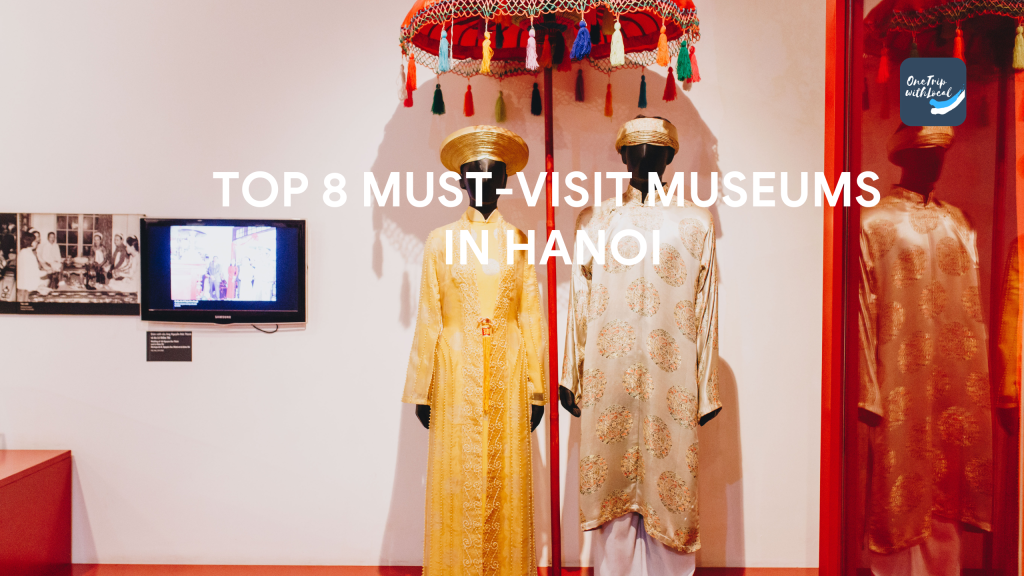
Top 9 Must-Visit Museums in Hanoi – 2024

Hanoi in September (2023 Guide): What to do, Events & What’s On

10+ Hanoi Mistakes: What You Can Miss & Where to Avoid

Where to stay in the Hanoi French Quarter

A Free & Self-guided Hanoi French Quarter Tour 2023

How to Enjoy Hanoi as a Solo Traveler: Tips and Tricks

What to See and Do in Hanoi (Bucket List: Activities, Fun, Food)

How to Travel to Hanoi on a Budget: Tips and Tricks for Saving Money

Your Couple’s Trip to Hanoi: The Best Places, Restaurants, Activities, and Tips
- Places to visit near Hanoi
- Hoi an – Hue Day Tours
- Day Trips from HCM
- Plan Your Vietnam Trip
- Hanoi Car Rental
- Northern Vietnam Tour Package
- Best overnight trips from Hanoi
- Have any questions?
- [email protected]
- Phone/WhatsApp/Line/Zalo + 84 369283168

Vietnam Travel 2024/25
Vietnam Tours & Day Trips – Customizable Experiences
- Common Tourist Scams to Avoid in Vietnam
- Things to Do
Tourist scams in Vietnam to avoid is common thing else where. However, Vietnamese people are proud to show their beloved country to foreigners, and it’s easy to see why. The land is stunningly beautiful and the people are wonderful — well, almost all of them.
Unfortunately, like any place that welcomes tourists, there are scammers and con artists looking to swipe your cash and valuables. So keep a lookout for the following tricks during your stay in lovely Vietnam to avoid
Ask Tony Private Tour Guide for common scams to avoid In Vietnam

1. Money switch
It’s usually motorbike taxi drivers that try this one. They use sleight of hand to switch whatever money you give them for smaller denominations, and then they put on a dramatic show of indignation — like you’re the one trying to rip them off. money scams in Vietnam
The most common version is switching a 500,000VND note for a 20,000VND, which is easy to fall for since they’re both blue.
The best way to avoid this is to pay with small bills. Break your larger bills at convenience stores, restaurants, or other reputable businesses. This ways to avoid tourist scams in Vietnam
2. The groin grab
This one preys on men in touristy areas. An attractive girl will start flirting with a man off by himself, telling him how handsome he is and asking if he wants a massage as she plays with his groin. While he’s distracted, she empties his pockets. Girls often work in teams for this one.
3. Fake taxis
The two best companies in Vietnam are Vinasun (white) and Mai Linh (green). Some of their drivers are shady, but the majority are honest. Unfortunately, there are other companies that use similar names and matching color schemes.
They’ll trick you by pointing to their meter, since everyone knows to only get in taxis that has one. But you’ll quickly notice that the meter climbs much faster than it should . And when you pay, the drivers will often try the money switch scam. Make sure you get in a Vinasun or Mai Linh, or use an app like Grab
- Read more: Tips: Hanoi Airport to Old Quarter with Ease
4. Fake travel companies
This one is similar to the fake taxis mentioned above. When a travel company gets popular, fake businesses open shops with similar names, hoping to trick foreigners who are unfamiliar with Vietnamese.
Research everyone online before you buy from them, and check the spelling closely.
- Read more: Tours By Locals & Transfers
5. The two-shine
If you’re wearing dress shoes in a touristy area, prepare to be hounded by shoe-shiners. Oftentimes, foreigners accept just to be left alone. They negotiate a price, but when the shoes come back, the price has doubled, because the price they gave you was for just one shoe. If the foreigner puts up a stink, underworld muscle is never too far away.
6. Bait-and-switch massage
Massage parlors use this one to prey on amorous men. A beautiful woman on the street convinces the man to come inside for a massage, usually by flirting and laughing a lot. Then, once the man has paid, the beautiful woman is gone and a surly woman with gorilla hands comes in.
Another common tourist scams in Vietnam is to charge tourists ridiculous fees for things like water, towels and music. When you refuse to pay, gangsters step in. Your best bet is selecting places you’ve researched online, rather than following pretty girls into dark alleys.
7. Motorbike taxi
Motorbike taxis — xe ôm in Vietnamese — are notorious cheats. In touristy areas, many of them are gangsters hoping to sell fake drugs to gullible foreigners. But the most common tourist scams in Vietnam they pull is when they agree on a price for a trip and then ask for a lot more when you arrive at your destination.
They’ll tell you that you must’ve misheard them, and when you argue, they escalate things quickly . They know most foreigners would rather pay a couple dollars than make a huge scene in a strange area with no friends around.
Continuing updated common tourist scams in Vietnam …
Do hope you find the best advises from Local Tour Operator before planning a Trip To Vietnam
That is why traveling with local private tour guide Vietnam to avoid a lot of trouble
Recommended Vietnam Tours:
- Tours By Locals Vietnam & Transfers
- Northern Vietnam Tours with Locals
- Hanoi Car Hire with Local Drivers
- Day Trips from Hanoi
Featured ToursByLocals Vietnam
Road trip Sapa Mu Cang Chai adventure 5 day itinerary
Best one week Hanoi itinerary 7 days
Ban Gioc waterfalls and Ba be lake tour from Hanoi
Hanoi Itinerary 7 Days (one week) Halong Bay – Ninh Binh – Sapa Tour
Northern Vietnam Tour Ha Giang – Ban Gioc – Ba Be 6 Days
Ha Giang Loop Tour Perfect 5-day itinerary
Northern Vietnam Loop Tours 12 days: Ha giang – Ba be lake – Ban gioc waterfalls – Halong Bay- Cat ba islands
Sapa Tour from Hanoi 3 Days
Vietnam family Tour North to South 14 Days
Vietnam 16 day family road trip car transfer
Vietnam Discovery Itinerary 18 Days
Long Coc tea hills photography trip
HALONG BAY HANOI SHORE EXCURSIONS
Mu Cang Chai Tour from Hanoi 3 Days
- English (EN)
- Español (ES)
- Português (BR)
Is Hanoi Safe? Crime Rates & Safety Report
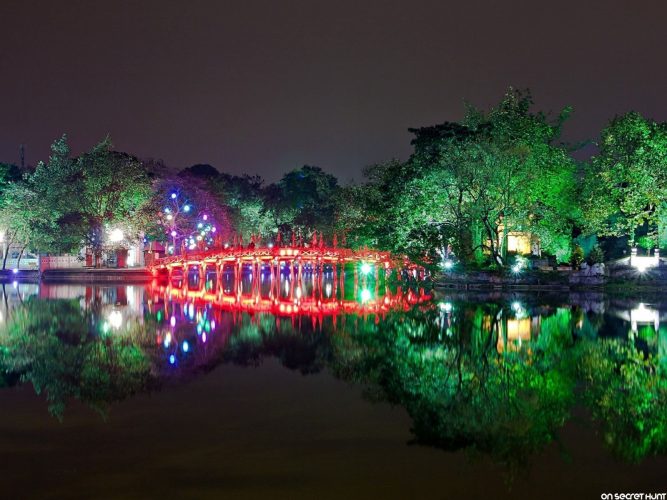
Vietnam : Safety by City
- Ho Chi Minh City
Hanoi, the capital of Vietnam, is simply a gorgeous city, known for breathtaking natural beauty, a heavy load of, albeit dark, history, Buddhist temples, and other monuments and cultural heritage.
Hanoi is Vietnam’s second-largest city, a perfect mix of East and West, of traditional Sino-Vietnamese motifs and French charm.
During the last couple of years, Vietnam slowly became widely popular, and each year there are more and more tourists coming to visit Hanoi from all over the world.
Violent crime in Hanoi is rare, and as a tourist, your main concern should be a petty crime such as pickpocketing, bag-snatching or cell phone theft.
You must show respect to Vietnamese culture and show common courtesy and kindness towards the people there, and you’ll avoid any arguments or misunderstandings.
- Warnings & Dangers in Hanoi
OVERALL RISK: LOW
Hanoi is a relatively safe city to travel to. Its main source of income is tourism, so the tourists' safety is their number one concern. Hanoi has 6 million inhabitants, so street crime is more common here.
TRANSPORT & TAXIS RISK: MEDIUM
Means of transport and taxis aren't very safe in Hanoi. Many taxis in Hanoi have previously installed rigged meters that charge up to 2 to 8 times more. You should consult some guidebooks and travel forums before you travel to Vietnam that will prepare you for petty scams. There is also a very popular scam where the buses break down and the tour operators force people to pay considerable amounts for crummy hotels "while the bus is repaired".
PICKPOCKETS RISK: MEDIUM
Pickpocketing and bag snatching is a very common issue in Hanoi, especially on the side of the roads where motorbike snatching may occur. Keep your belongings by your side at all times and try to leave all your valuables in a security deposit box of your hotel.
NATURAL DISASTERS RISK: MEDIUM
Natural threats include rare earthquakes and occasional typhoons (from May to January) with extensive flooding, especially in the Mekong River delta nearly every year. Vietnam is occasionally also devastated by storms and typhoons that can cause millions of dollars of damage. In case of a natural disaster, follow the instructions of local authorities.
MUGGING RISK: LOW
There are some areas where cases of mugging have been reported, it is generally rare, and foreigners are rarely targeted.
TERRORISM RISK: LOW
There is a low probability of a terrorist attack, however, they should never be ruled out so be vigilant and watch out for suspicious activities.
SCAMS RISK: MEDIUM
There is a number of scams performed on tourists in Hanoi, such as gambling scams where, if you do venture in gambling, there is a great risk you will be scammed or ripped off or karaoke scams: since prostitution is forbidden, you can find prostitutes in various karaoke bars, which are actually one big scam and their clients often get ripped off, drink spiked and robbed. Apart from these scams, you can get overcharged by everyone: street vendors, taxi and bus drivers, hotel owners and worst of all - the police. Double-check every information and pay, or negotiate everything in advance.
WOMEN TRAVELERS RISK: LOW
Sexual assaults are common in Vietnam, especially in Hanoi. Avoid overnight trains and buses, and parts of cities that are filled with bars and clubs, since there is a higher chance of running into intoxicated people. Follow basic common sense and avoid walking alone at night and in poorly lit and secluded areas.
- So... How Safe Is Hanoi Really?
Hanoi is generally a safe city.
Violent crime is rare, but lately, robberies, assaults, and harassments started occurring, often involving weapons.
However, the most common risk for tourists remains petty crime such as pickpocketing, purse snatching, and valuables theft, usually not involving violence of any kind.
Tourists should avoid fights and shouting of any kind because people of Hanoi think of shouting as an insult and in such situations, one never knows what their reaction is going to be.
The general rule of thumb is that if you respect this country’s culture and customs, you should have no problems or incidents in its capital.
One of the common issues in Hanoi is motorbike snatching.
This usually involves thieves on motorbikes snatching pedestrians’ bags, mobile phones, cameras, and jewelry.
They especially target foreigners and it happens mostly in Hanoi and Ho Chi Minh City and it is a crime committed so regularly that even local Vietnamese are commonly targeted.
In hotel rooms, including five-star ones, there have been reports of stolen belongings including wallets, cameras, cell phones, and jewelry, so put everything of value in a security deposit box.
As for streets, they are generally safe but some areas should be avoided, such as parts of Hanoi filled with clubs and bars that are usually filled with suspicious individuals.
Sexual assaults and robberies are more probable in these places, so be cautious and avoid these places late at night.
Also, petty crime is most common in Hanoi, so be aware of your surroundings at all times when you visit.
- How Does Hanoi Compare?
- Useful Information
All US citizens wishing to visit Vietnam will need to apply for a tourist visa and no earlier than six months before their planned departure. Your passport should be valid for at least six months past your date of return.
The Vietnamese Dong is the official currency in Hanoi. We recommend changing your money in post offices, banks or larger hotels. Airports also offer a convenient exchange rate.
In Hanoi, it's capital, summers last from May to October, and winters, mostly dry and mild, last from November to April with average temperatures from 17-22°C.
Nội Bài International Airport in Hanoi, the capital of Vietnam, is the largest airport in Vietnam. It's also the second busiest airport in Vietnam. It is located in Phu Minh Commune in Sóc Sơn District, about 35 kilometers northeast of downtown Hanoi,
Travel Insurance
Just like anywhere else, we recommend getting travel insurance when traveling to Hanoi, since it covers not only the costs of medical problems but also theft and loss of valuables.
Hanoi Weather Averages (Temperatures)
- Average High/Low Temperature
Vietnam - Safety by City
- Where to Next?

2 Reviews on Hanoi
Temperature.
Idk about that temperature man, I mean in summer you are gonna sweat a lot just by standing still outside for just 30 secs due to the 40-45C heat, so if you want to do something outside in the summer, do it in the evening.
Native here, if you’re concerned about the temperature then here’s a quick breakdown, in late spring and throughout the summer months It gets really hot here like really really hot so pack light clothes but also bring enough to cover your face since the roads are pretty dusty.
Meanwhile in late fall and winter months sometimes it gets really really cold like 18-20C cold which is prob normal for westerners but really cold for us, oh yeah and it also rains a lot.
Spring months are a bit unpredictable, sometimes it can get really hot sometimes it can get really cold. If you’re concerned about petty crimes such as pickpockets, bike thefts, or even sexual assault then try to stay away from downtown especially late at night like 1 am or 2am, other than that, areas outside of downtown are relatively safe.
If your going in the evening then try to go in groups, wear your bags in front of you or just put your valuables somewhere that are easily visible, also put away your jewelry if you can or else you would just be advertising yourselves to pickpockets and highwaymen. Hope my review is somewhat useful and good luck have fun on your trips to Hanoi!!!
Share Your Experience Cancel reply
Your Review
Title of your review
Article Contents
- Hanoi : Safety by City
- Overall Risk
- Transport & Taxis Risk
- Pickpockets Risk
- Natural Disasters Risk
- Mugging Risk
- Terrorism Risk
- Women Travelers Risk
- Weather Averages (Temperatures)
- User Reviews
- Share Your Experience

Popular Destinations

Safety Index
Recent reviews & comments.
- Anonymous on Venezuela
- Sam on Stockholm
- Jose Canete on Vietnam
- Kentson Anttila on 16 Pros and Cons of Living in Finland
- Michael Shapiso on Davidson
Popular US States
- Pennsylvania

36 Most Common Scams in Vietnam
Vietnam is an extremely stunning country with so many diversity in culture, traditions, and landscape. Once you start your exploration around Vietnam, changing the places and constantly moving to other places will present you so many differences.
You can dip down in culture and tradition by visiting Hanoi, or wander around stunning Halong Bay , or explore breathtaking ancient capital of Hue, or simply chill on the long sandy coast. The options are countless!
In recent years, Vietnam became very attractive to international tourists and many places are going through rapid development. The economy started to adjust to tourism and investors reap the benefits, while locals get the tiny pieces from the pie.
During our travels, we talked with a dozen travelers around the world and we could say it’s really not unusual to hear about scams and traps around Vietnam . Scamming is everywhere in the world, but in countries like Vietnam, scammers need to be extra smart and creative.
Some people became so proficient so they can scam you on hundred ways and sometimes you don’t even notice you’re in the process of getting ripped off.
We’ve got scammed a few times along our journey and talked with many people who’ve experienced different scams around the country, so we thought of sharing the experiences with you! It’s always a good thing to be prepared and know how to deal with the situation.
Please have in mind that we're not only talking about the scams! There are some situations where people just take the advantage over foreigners because of ignorance.
We included all of these situations in the article since it can help you to have the best experience while exploring beautiful Vietnam. Save your time and money and educate yourself about the country and the culture.
That way you can avoid many scams and uncomfortable situations.
So here you go! Here’s the list of 36 most common scams in Vietnam:
Table of Contents
- #1 Renting a Motorbike From a Local
- #2 Photographers Around Touristic Places
- #3 Switching the Bills
- #4 Shoe Repairs
- #5 Massage Seduction
- #6 Motorbike Taxi Drivers
- #7 Let’s Drive Around the City
- #8 Luggage Bus Fees
- #9 Cyclo Rides in Hoi An
- #10 Fake Travel Agents and Companies
- #11 Fruit Sellers
- #12 Western Restaurants
- #13 Peanuts and Beer Goes Well Together
- #14 Fake Clothing Brands
- #15 Abandoned Waterpark in Hue
- #16 Motorbike Thefts
- #17 Petty Robberies
- #18 Airport Fake Taxi
- #19 Buses Drop You Off in the Middle of Nowhere
- #20 Fake Taxi Drivers
- How to Avoid the Scam:
- #21 Be Careful with SIM Cards
- #22 Fake Hotel Pictures and Reviews
- #23 Double Fee for a Stay
- #24 Cannabis Scams
- #25 Don’t Share Sensitive Data in Internet Cafes
- #26 Always Ask the Price in Front
- #27 False Train and Bus Tickets
- #28 Child Street Vendors
- #29 Good Guy Motorbike Seller
- #30 Expensive Hitchhiking
- #31 Beautiful Hostess with Menus
- #32 Police Traps
- #33 Money Snatching From Your Wallet
- #34 Pricey Parking in Front of Touristic Attractions
- #35 Entrance Fee for a Free Attraction
- #36 Demanding a Juicy Tip Instead of Change
- Please share the scams you've experienced in Vietnam so we can make this list complete!
#1 Renting a Motorbike From a Local

Travelers who want to avoid the hustle of buying and selling their motorbike can rent a bike for an affordable price. The rental companies are very flexible in terms of timing and place of renting/dropping off the bike.
The very common scam, especially in smaller touristic places, is when you meet a local person, share some stories with them, you became an instant best friends and they offer you to rent their motorbike for a crazy cheap price. We know, many people think “Oh, this guy is so friendly and kind, so why not help him?”!
Don’t matter how much friendliness is around the person, this one is a very common scam in Vietnam. People will rent you their bike and you will most likely experience a breakdown after which they will ask you for a huge amount of money to repair the bike .
Also, we talked with a traveler in Mui Ne who has got scammed by local guy renting his bike.
The story went like this...
The guy rented a bike from a local person, parked the bike in front of the pub and when he came back from the pub he couldn't find a bike. The local demanded around 10 million VND to settle the bill .
What happened with the bike? Probably the local had two set of keys, followed the traveler and just drove with his bike while claiming the money for the ‘stolen’ bike.
Pretty creative, huh?
When renting a motorbike, always check the company name on the internet. If the rental company is reliable, they will usually have a Facebook page with many stories, pictures, and reviews.
Read the reviews from travelers and connect with them so you can talk about their experience with the bike and the rental service.
Never rent a bike from a local person or the company without the presence. That way, you will avoid many headaches and you can really focus on experiencing all the beauty Vietnam has to offer.
#2 Photographers Around Touristic Places

This one is very common everywhere in Vietnam where the tourism is existent. There will be the woman carrying fruits on their shoulders or wearing traditional clothes offering you to take it for the purpose of taking the photo.
You get the clothes and fruits, take a photo that will give you many likes on social media, but soon after, they will ask you for the compensation!
Also, on the beaches around Vietnam, there are usually few people with the cameras asking people to take the photos in different poses. After a photo session, they will follow you and ask you for the money.
This one is very crazy as they won’t let you alone for some time and they are literally killing the vibe. Just don’t fall on this one!
When someone is offering you their stuff just to take a photo or offering you a photo session as a friend, you should just say a friendly no.
People will usually understand and they will move away from you in order to find another ‘customer’.
#3 Switching the Bills

Switching the bills is an easily avoidable scam, but you must be very cautious, especially in busy tourist places.
For instance, every Vietnamese banknote has Ho Chi Minh’s face on one side while some even have the same color which makes it easy to mistake the note. The biggest bill of 500k and 20k are both blue color (a bit different gradient) and it can be easy for people to pull the scam.
If something costs 20k and you don’t have a smaller bill, so you pay with 500k, people can just take the money and try to act like they didn’t notice the bill. Sometimes it works in very busy places and people are losing the money on that.
#4 Shoe Repairs

This one is common in big cities, especially around the Old District in Hanoi. There are many shoe repair guys sitting on the street and following foreigners in order to pull the scam.
When you walk around Old District, it’s a chaotic place with many things happening at once, so it’s very hard to be focused on everything. That’s when these shoe repair guys get in, jump on your shoes and apply the glue.
Afterward, the guy will take a thread from your shoes and try to sell you the story that you need a repair. The guy usually o ffers the repair for a $1 and that’s when many people agree!
The thing is that the guy doesn’t apply the glue, but the liquid that dissolves stitches on your shoes. The liquid instantly makes the condition of your shoes worse and many people think why not.
When the guy finishes the job he will ask for 10 - 20x more than agreed and he will follow you all around until you settle for the price. It’s a huge headache and you don’t want to fall on this one.
#5 Massage Seduction

After many kilometers on the road, your body will feel very sore, so why not to take a good and cheap massage to recover your body?
It seems like there shouldn’t be a question about taking the massage, especially when you see a hot woman in front of the massage shop offering the massage.
Who would say no?
This one is a very prevalent scam not only in Vietnam but around SEAN countries. So, what is the scam?
Basically, the beautiful woman will stay in front of the shop and seducing tourists to get inside the massage room. Many people think they will get the massage by the woman they are talking in front, so they started to fantasize about different possible endings.
Believe us, none of these endings will happen!
The next thing that will happen is that the beautiful lady will lead you to massage room, show you the entrance and tell you to wait. In a minute, you will be in the room with a totally different person who isn’t that hot and also, not a professional masseur.
Expect to pay a big price for the massage you get.
#6 Motorbike Taxi Drivers

This scam is very common in big cities as there are many tourists and even more motorbikes in the traffic. There are many official apps for taking a motorbike taxi, but sometimes, the person just approaches you and you think why not to take a ride with this friendly guy.
Be careful with motorbike taxis around small places since it's probably one of the only ways to do the transportation around. We traveled to Phan Rang to do some amazing kitesurfing and it's very prevalent to use motorbike taxi there!
These fake motorbike taxi drivers will drive you and drop you off in the middle of nowhere asking for the crazy amount of money . If you disagree pay they will extort money from you with the help of the friends.
Always use official taxi carrier or Grab . That way, you get the price in front, so you know how much you’re supposed to pay for the service.
Sometimes, if there is no another option, you can take the motorbike taxi, but always agree on the price in front and don't forget to have a GPS on!
#7 Let’s Drive Around the City

People usually experience scams when it comes to taxi drivers. There are few popular scams taxi drivers pull on travelers, and one of the most common is just driving the longest distance to the destination .
It works like this...
You get in the taxi, confirm the destination and the neverending ride starts. The next thing you notice that your ride is longer than expected, even if your destination is just around the corner. The driver will give you the excuses including construction works or traffic jams around. Once the drive is over, the driver will ask for a few times higher price than agreed on the beginning.
Always check the fastest route to your destination and have it on your phone running when driving by taxi. Never agree to sit down in a taxi without taximeter on.
If you notice that driver is taking another route, show him your map and demand the route on your map . If the driver doesn’t agree, just tell him to stop the car and pay an amount on a taximeter.
Use Grab in the cities. It’s so much cheaper, flexible and you can check the price in the application.
#8 Luggage Bus Fees

Many times, the bus drivers will try to get more money from travelers because of their ignorance. This one is one of the most common scams when it comes to public transportation.
When you buy a ticket, the luggage fee is included and you shouldn’t pay anything extra except if you’re putting a motorbike or any bigger things as luggage. Some bus drivers will require you to pay extra for your bags as they will claim you have too much luggage.
The scam is total nonsense and they are trying to get the money from travelers because they are not familiar with the rules. Once you pay for the ticket you can put your luggage in the bus free of additional costs.
Always ask and confirm the quantity and size of the luggage that's included in the bus ticket price . The luggage policies differ from company to company.
#9 Cyclo Rides in Hoi An

Cyclos are three wheel bicycles that you can see around Vietnam, but the most common destination for cyclos is definitely the ancient town Hoi An. Once you put your foot in the ancient city, you will see many cyclo drivers driving tourists and asking people to jump in for the memorable drive around Hoi An.
If you make an eye-contact with the driver, they will offer you a drive around the town. Usually, drivers claim the ride is free or you decide how much you'd like to pay after a ride .
It’s the biggest red flag in SEA!
Drivers will show you their book of recommendations and reviews from the travelers, but it’s often written by themselves in many different languages. Many travelers fall on that, so they just jump in the ride.
Sometimes, the ride can take the whole day while drivers are building trust with the customers. At the end of the trip, they will drop you off in a secluded area and demand a crazy amount of money for the ride.
It’s a very uncomfortable experience that can have many unpleasant endings, so it’s better to know how to deal with it.
If you really want to experience a cyclo ride around stunning places, the best way is to agree on the price in front. Also, don’t forget to agree on the drop off place that is familiar to you since you don’t want to end up in a dark alley with a driver.
Always have a GPS opened, so you can be aware where are you at every moment.
A good practice in touristic places is to always have your valuables stored in a money belt or hidden bag. The good practice is also having a spare wallet where you have a smaller amount of money.
That way, you can claim it is all you have so there is no point in trying to get more than you have. Drivers will usually accept that!
#10 Fake Travel Agents and Companies

Vietnam is becoming a booming tourist market since the whole country offers such a diverse culture combined with breathtaking landscape and a long coast with stunning sandy beaches.
The country became a dream destination to many travelers, and there are many tour companies that are getting recognized around the country for their extraordinary services. Once tourists recognize the company's services, many copycats with similar names start popping up like mushrooms.
Usually, fake travel companies are using the same names with minor changes, so if you’re not careful, you can end up scammed thinking you’re organizing a trip with a reputable company.
For instance, the most known scam comes into mind when we talk about Sinh Cafes . The real company is called Sinh Tourist and they offer an amazing tourist service for an affordable price.
Further reading: The list of fake Sinh Cafes in Hanoi .
There are many copycats called Sinh Cafe Travel, Sinh Cafe Tours, etc . Literally, there are thousand different, but similar names that can easily misguide people. Be aware when booking tours in Vietnam and always do your research before!
The scam isn’t only around tour companies but can be found around hotel and restaurant businesses as well. Be aware when booking anything in Vietnam related to tourism and always use reliable and recognized booking platforms .
Looking to book an organized tour around Vietnam?
We suggest you check legitimate websites that offer the listing of only reputable companies offering organized tours. The most popular website for tours in Asia is Klook , so check it out!
For the accommodation, always use the platforms like Agoda , Booking or Airbnb . These platforms have the criteria for accepting the hosts which give you a certain sense of security.
Always read reviews of other travelers and check the pictures to get a clear idea of the place you’re going to stay in.
#11 Fruit Sellers

We didn’t encounter this scam around the countryside and smaller towns, but in the cities, it’s a common scam, especially around touristic places. For instance, around Kiem lake in Hanoi, you will experience the scam almost every minute, so it’s wise to know how to deal with it.
Fruit sellers are usually older woman carrying some fruits on their shoulders and targeting tourists. They will follow you and ask you to buy the fruits at a crazy price.
A woman around Kiem lake offered us half of the pineapple for 50k VND. For example, at that time, the whole pineapple at the market didn’t cost more than 15k VND. We knew the reasonable price and we told the lady 20k VND and she acted offended, so we just walked away and at the end, she settled for 20k VND.
Note: Don't get an impression we're spoiled tourists who don't support local communities. Far from that! We always try to give back, eat and buy at local stores and markets. We're not ignorant and we always do the research before traveling in any country. These sellers get the fruits at a much cheaper price at the market than tourists, so selling the same for 5 - 10x higher price isn't acceptable for us.
Sellers will follow you, but one NO is enough as they will realize they are wasting their time since there are thousands of tourists around.
Also, if you really want to buy the fruits from them, it’s advisable to know the prices of the fruits before since you can bargain .
Walking away works like a charm too.
#12 Western Restaurants

Almost every town or city has a part which is totally targeted to tourists and expats. Be aware of these places as many scams are going on there, especially around the restaurants.
How to say the restaurant is for westerners?
Well, you won’t see a single Vietnamese person inside and also, the prices aren’t only in VND, but also in foreign currencies.
The prices are usually a few times higher compared to the local restaurants and street food, but it’s up to you to choose where you’re going to eat, right?
Thinking of paying in a foreign currency? Think twice!
The restaurant staff will give you a really bad exchange rate, so they won’t only rip you off on the food prices, but also on the exchange rate.
For the best food experience, just find a local spot where the locals eat. These places are filled with delicious food at a reasonable price. Always ask for the price before ordering as staff will usually charge you more than locals.
Don’t be surprised if you don’t ask for the price to see locals are paying one price, and you’re paying totally another.
Don't get offended by it since it won't make a huge difference to your wallet, but it can make a difference to locals and their families.
Always have VND with you in Vietnam since it’s an official currency and you won’t get charged by unofficial exchange rates.
#13 Peanuts and Beer Goes Well Together
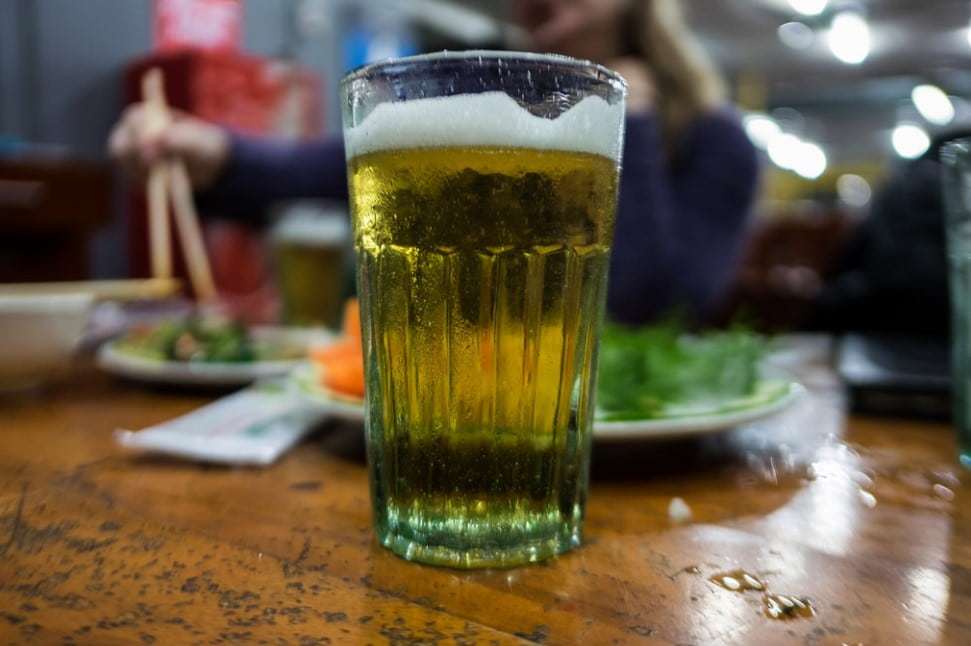
We mainly experience scams around bigger touristy attractions and cities, but this one never gets old, even in the most remote areas around the country!
There is a huge culture of Nhau, which is basically eating delicious food, having fun with friends and drinking lots of beer. When you come to the restaurant and order beers, in some places, they will bring a bowl of peanuts, even if you didn’t order it .
Learn more: Drinking and eating without a purpose as a part of Vietnamese culture .
It’s easy to think it’s included in the price, but don’t be fooled! Nothing is for free! The dozens of peanuts usually cost more than a can of a beer.
Ask for the price in front for everything you get on the table. Use Google Translate if needed as the language barrier is real, especially in the remote areas.
If you don’t need something or you think the price isn’t fair, simply say a friendly no and they will leave you alone! More money to spend on beers!
#14 Fake Clothing Brands

Vietnam has borders with China and also Vietnamese culture is hugely influenced by Chinese culture. It’s not a strange thing that the fake clothing market is booming!
When you’re buying the clothes or any other goods on the local market, it's close to 100% chance these goods are imported from China and are fake . Depending on the place, you can get very good quality and cheap goods from street vendors! Many travelers fall on this scam while buying souvenirs in Vietnam , especially silk or traditional dresses like Ao Dai.
Always inspect the quality of the goods and don’t accept the first price. Learn how to bargain in Vietnam as it will save you a lot of money!
Always check the quality of the clothes in local markets. You don’t need to buy an original brand, as you can stumble across very high-quality fake goods for a funny amount of money that will serve you well.
For instance, we bought a few ‘North Pole’ backpacks from the street vendors in Hanoi. The price was around 200k VND for a 65L backpack . We used the backpacks for our trip around Vietnam through different weather conditions and these backpacks were serving and still serving us on our adventures.
If you’re looking for real brands, then just go to a certified store that sells real goods with standardized quality.
#15 Abandoned Waterpark in Hue

It's hard to understand the logic behind securing abandoned places. After visiting this park around Hue, you will get a whole different idea on creativity when it comes to scams.
So, when you arrive at the entrance of abandoned waterpark, there will be a security officer in his small house blocking the way. At first, he will be tough and won’t let you in. Then a younger guy will appear out of nowhere who will tell you that he can bring you to the park for the price. The guy asked for 100k VND per person and we refused, but many travelers followed him.
After a while, the security guy let us in for 30k VND per person . Later we saw the young guy and the security guy in the security house sharing the money.
If you want to get to the park, you will probably need to pay some money to the security guard in front of the park. Also, it’s advisable to meet some locals in Hue since there is an entrance through the forest where you don’t need to pay anything.
We tried to find it but ended up lost in the forest while doing crazy offroad with our bikes. It was a great experience!
#16 Motorbike Thefts
The rate of motorbike thefts is constantly growing, especially in bigger cities. There is a huge market for stolen bikes, but they are not worth anything without the proper and matching blue card.
Thieves usually have a deal with mechanics or stores, so they sell the bikes for the parts or make the fake blue card . It’s a huge business around here, so be extra careful with your bike.
The most important thing is to have a strong lock, preferably U-Lock and park your bike in a secure place.
There are many parking spots around the cities where the security guards will constantly take a look at your bike. The price for the whole day of secured parking won’t be more than 10k VND .
Also, almost all hostels and hotels offer you a free and secured parking during the night, so you can sleep well not thinking about the safety of your bike.
#17 Petty Robberies

Petty robberies are not so common in Vietnam, but there are some travelers who experienced their valuables being stolen in the middle of the day.
Basically, these kind of robberies are very common in tourist areas around big cities. Always be on your guard when walking around busy touristy streets. If you ever get robbed, then you'll probably experience it around these places.
The most usual ways of robbing are grab and run or distract and steal.
Be careful walking with your phone or checking the phone on the street since there are thefts on the bikes who are sitting at the back of the bike while grabbing valuable things from people. There is simply no way to get your stuff back once it’s in their hands.
Many people leave their valuables on the beach while swimming and it’s a perfect chance for thieves to get your valuables.
In the restaurants, always take care of your bags, wallet, phones and other valuables. It’s common that people will get inside the restaurant, walk by and just grab unattended stuff around.
Stealing valuables in buses or trains are very common as well as thieves around ATMs. In the small places like Mui Ne, there are always few motorbike drivers around ATM selling cannabis.
Be careful and extra aware when withdrawing the money and don’t do it alone in the middle of the night as there is a possibility they will take advantage of you.
These scams are not likely to happen, but taking caution is always advisable. You really can’t do much except using your common sense.
Use a hidden belt or pouch where you put your money and valuables, so it’s out of anyone’s reach. Lock your bags on the non-movable objects when in restaurants.
Anti-theft backpacks can help a lot especially when you’re walking around busy streets. The streets are chaotic with many things happening at once and it’s really hard to notice if someone is opening your backpack from behind. The advice is to carry your backpack in front of you or invest into a backpack lock or anti-theft bag.
Whenever on the road, take the insurance that covers the loss of your valuables. One of the best and affordable insurances that cover your valuable is called World Nomads .
#18 Airport Fake Taxi

If you’ve ever traveled by plane, then you know the struggle and chaos once you put your foot outside the airport. A flock of taxi drivers who want to ‘help’ you with your transportation will suddenly hit you like a lightning strike. Sadly, most of the transportation scams are going to happen around the airports.
People are usually very tired and jet-lagged to think clearly, so they accept any rates and don’t think about the creativity of scammers around.
For instance, if you have a pre-arranged driver from the airport to your accommodation, there will be drivers holding the names of passengers in front of terminals.
Scammers usually walk around and copy the names of people/hotels and some people notice their name on the sign and without asking they get into the car.
The driver will drive them to in the right direction and in the middle of the drive they will call a random person and share with you a sad new that the hotel you have a booking in is suddenly full. After that, the driver will drop you off to the hotel they get a commission from and also, charge you a lot for the extra drive.
#19 Buses Drop You Off in the Middle of Nowhere

Taking a bus drive to travel around the country is a very convenient and cheap way of exploring stunning Vietnam. The buses in Vietnam are fairly comfortable since the majority of them are sleeper buses. You can lie down while traveling, and even sleep through the night which saves you some extra money on the accommodation.
The buses are usually very cheap as it costs you to go from Hanoi to Da Nang around 400k VND which is a bit less than 20$!
The only problem is that sometimes, the buses will just drop you off in the middle of nowhere. The interesting thing is that there are countless taxi drivers in the middle of nowhere, so they will offer you crazy fares for the rides as they know you don’t have the option or energy to think or do anything else.
Always book the ticket at the bus station and talk with the people where the bus is stopping in the destination.
Sometimes, they will tell you one piece of information, but the bus will still drop you off on the other place. Just check out for Grab drivers or simply walk away from taxi drivers.
They know they are overcharging, but if they see you just walking away, they won’t miss the chance and they will settle for a usually half of asked price.
#20 Fake Taxi Drivers

Fake taxi companies are popping up like mushrooms after the rain. Once one company gets big, there are many fake companies with similar names offering sketchy and overpriced services to people who think they are using the official services.
Fake taxi drivers can be mainly found around airports, train stations and big tourist attractions. When they see foreigners they are usually the first ones to appear in front of you to take your luggage and sit you in their car.
The most reputable taxi companies in Vietnam are Vinasun and Mai Linh , but fake taxi drivers are very smart, so they copy the design of their cars to look almost identical as the cars from the real companies. The only difference is in small details.
For instance, the name of the company is slightly different so it’s not unusual to see Vinnasun or Vinasum driving around. It’s so hard to notice that, especially after a long flight.
Also, they have different phone numbers or even fake taxi driver cards on them.
How to recognize a fake taxi company?
- Different phone number that is almost identical as the real company
- Different company logo and name
- Fake driver cards
- Old school taxi meters that looks like the meters from the 80s
After all being said, if you find yourself in a fake taxi, you will probably be asked to pay an inflated price in the middle of nowhere while all the doors are locked.
Be careful and look at every detail.
To be sure, always have the real numbers in your phone.
Vinasun: 38 27 27 27 (it may differ in some cities and provinces!)
Mai Linh: 38 38 38 38 (it may differ in some cities and provinces!)
How to Avoid the Scam:
Always call the official taxi numbers when booking a taxi ride in front.
If you're taking a taxi ride on the street, be sure that you checked the signs at the car and the name. The easiest way to notice a fake taxi is by checking the name of the company written on the car.
Check out the taximeter and also if the driver has an official suit with his and company name visible.
#21 Be Careful with SIM Cards

Buying a working SIM card in Vietnam is literally effortless. There are countless places that offer a valid SIM card with a number and super-fast internet data. You don’t even need to provide any personal information when you’re buying a new SIM card.
It raises a question - how legit it is and what about scammers?
Like we already said, there are countless places to buy a SIM card which means there are many resellers who’re not official.
The store buys many SIM cards for a cheap price and sells it to people for a higher price. The only problem is that once the store buys it from an official store, the package plan already started which means days of usage are counting.
There are many cases where tourists bought SIM cards from a reseller claiming the card comes with X days of unlimited 4G internet . Later, the buyer found out the card stopped to work after just a few days of usage.
Never buy a SIM card in small street stores. Instead, buy it from an official seller or a communication company.
There are few options when it comes to buying a card and avoiding the scam:
- Buy from the official stores
- Buy from the licensed retailers/official phone shops
- Place where you’re staying if they offer the service
- Organized tours agencies will often provide you with a SIM card depending on the country you’re going
#22 Fake Hotel Pictures and Reviews

The available accommodation options are growing with each day, even in the countryside. When you’re checking the big booking platforms, you will see a crazy amount of available hostels, homestays, hotels, etc.
There are many scams when it comes to accommodation and one of the most noticeable is definitely false marketing. On the platforms, hosts usually put many pictures and videos showing their offer of the rooms.
The big problem is that some of them just put the pictures of the best rooms or even the rooms from the other place to promote their place.
Once you get there, you may be very surprised by the room!
Many hosts don’t require pre-payment, so it’s the best if you could come to the accommodation and check the room by yourself. If you don’t like it, just be friendly and explain to the host.
Also, don’t forget to read reviews and get every piece of information on a given accommodation. That way, you might be able to figure out if other travelers had some similar experiences.
We advise you to skip the accommodation that requires pre-payment and has low ratings on the platforms . Many scams can happen there!
#23 Double Fee for a Stay

This scam is getting more and more popular as Vietnam is becoming a major destination for international tourists who are visiting SEA. There are many options when it comes to booking accommodation in Vietnam including hostels, hotels, homestays, guest houses, etc. You can find these places on big platforms like Booking, Airbnb and Agoda.
When you book your room, you have all the details with prices for the selected accommodation. The problem arises when you’re traveling in a group and you book the room for more people.
Some people will ask you double or triple price than one stated on the platform claiming it’s the price for a person.
Just argue a bit and tell them you will call the police and they will immediately give you the passport and take the real amount of money for the accommodation.
Also, reading reviews from the previous travelers can help a lot. If you see the staff is very friendly and welcoming, there is a small possibility they will try to do the scam on you since they know the importance of a good review.
#24 Cannabis Scams

Cannabis in Vietnam is strictly illegal and you can end up in real trouble if the police catch you. Luckily, the police isn’t much interested in cannabis, especially when it comes to tourists or expats, so it’s not uncommon to smell cannabis on each step around some areas.
Just use your common sense when it comes to cannabis and you’ll be more than fine!
There are many scams around cannabis and most of them are done by motorbike drivers who’re offering cannabis to tourists.
For instance, we had crazy experiences in Hue! We’ve got approached at least 10 times by motorbike drivers offering us cannabis in less than one hour of walking around the city . It was very crazy and sometimes even the same driver approached us a few times.
These drivers will sell you some cannabis if you’re lucky, but you’ll get very poor quality buds with an inflated price! Also, many people experienced getting busted by the dirty police once they’ve got the pack from the motorbike driver.
These drivers usually work with the police for the commission. They sell you cannabis and contact a dirty cop. They will follow you and bust you instantly, so they will most likely find the cannabis on you. After that, you will be asked to pay a crazy bribe.
In Mui Ne, many people are selling weed on the street. The biggest problem is the quality, quantity and sometimes they just sell you a tea or herb that looks like cannabis.
Don’t consume illegal herbs and substances in Vietnam. If you really can’t go without smoking cannabis, then it’s advisable to connect with local or expat community and get some cannabis from these circles.
Avoid people on the street offering you weed by simply saying no. They will try a few times, but after a few friendly noes, they will give up.
#25 Don’t Share Sensitive Data in Internet Cafes

It's amazing that you can find internet cafes on each corner in Vietnam, even in the most remote areas.
The computers there usually have viruses, keyloggers, malware that can exploit your personal and valuable data.
Also, Vietnam has a stunning internet coverage, so you can connect on every step. Even if the network has a password, there is a huge possibility it is set to usual 1 - 8 . So be careful with a sensitive data and use 4G network instead.
#26 Always Ask the Price in Front

This one is not so much of a scam as the ignorance and not knowing the situation in Vietnam. Majority of street vendors will see the opportunity to charge tourists a bit more. It sucks when they do it in front of you, but we can understand it.
For instance, we were eating chicken rice in Saigon and saw locals paying 30k VND for a bowl. We blindly believed we will be charged the same, but after some bargaining, we paid 60k VND.
People know it won’t hurt you so much, but it can help them and their families, especially if you’re a tourist who is just exploring the place for a few days.
This one is the easiest to avoid - just ask the price in front. Once you have a price deal in Vietnam, people usually respect that and you can expect to pay that price.
It doesn’t cost you anything to ask for the price, but it can save you a lot of time and money. It’s a hard habit to do it always, but many places don’t have menu presented, so the only way not to get ripped off is to ask for the price in front.
#27 False Train and Bus Tickets

The market for train and bus tickets is huge and booming since more tourists decide to explore the beauty of the country by taking public transportation.
It’s important to note that these tickets aren’t fake, but these are probably not suitable for the seat you’d like to book.
Learn more: Fake ticket agents everywhere!
For instance, there are people who buy the cheapest train or bus tickets claiming you that these tickets are exactly the ones you need.
You are able to get on the bus or train, but be ready to pay a juicy fine since the tickets are probably not valid for the seat you’re taking.
Always buy tickets directly from a transportation company or on the main stations. Some hostels/hotels offer the services, so it’s a good thing to check with your accommodation.
Also, don’t hesitate to ask people in your accommodation to help you with booking your ticket for public transport.
If you’re planning to travel by train and want to book online, check out Seat 61 .
#28 Child Street Vendors

Street kids is a term used for kids working and often living on the street apart from their families. There are many heartbreaking stories of street kids and even more reasons how one kid ends up working on the street.
Corrupted adults see this socio-economic ‘trend’ as a business opportunity and sometimes the term 'street kids' is closely related to organized business.
If you’ve ever walked around Kiem lake in Hanoi or Benh Than Market in Saigon, there is a huge possibility you stumble upon a small kid trying to sell you a thing or a service. It’s very heartbreaking to see a small kid on the street working all day to earn pennies. It’s very hard to resist not paying or giving away some money to the kid.
Educate yourself: Street children in Vietnam .
The majority of the money will never get to the kids' pocket or a belly. Kids on the street usually work for an adult and maybe get pennies if anything from your money. Giving away your money to street kids just furtherly support these kids being on the street far away from their family and schools.
We know that it sounds harsh and maybe not moral, but don’t give away money to the street kids. Instead, support the organizations working with street kids with your money or time.
Probably the best thing you could do when encounter a street kid is to bring the kid to a restaurant and share a delicious meal together. If it’s not filling their pockets, it’s filling their bellies and hearts at least.
#29 Good Guy Motorbike Seller

This scam isn’t very common among regular tourists, but as soon as you decide to do a motorbike trip around Vietnam, you become vulnerable to the scam. Young Westerners who’re hungry for the adventure in an exotic country with stunning landscape and diverse culture are mainly the ones who decide to drive a motorbike around the country.
If you can recognize yourself in the description above, there is one question for you. How much do you know about mechanical stuff when it comes to motorbikes?
Well, based on our experience (we included), probably close to zero!
Planning a motorbike trip: A detailed cost breakdown of 30 days biking around Vietnam!
There are thousands of motorbike sellers around Vietnam, especially in Hanoi and Saigon. Travelers usually start their journey from one of these two cities, and the options are endless when it comes to buying a motorbike.
Everyone will tell you their motorbike is the most reliable without any breakdowns. Even the backpackers who just did the trip around the country!
The scam is most common among resellers - the people who’re buying motorbikes from desperate backpackers who’re leaving the country for pennies - who’re then doing some minor repairs and selling bikes for a higher price.
This is a very common business in big cities as the demand is growing with more tourists flocking to the country.
Basically, you will meet a guy who will tell you all the best about his motorbikes and who will act like your friend. Once the transaction is done, the guy disappears and if you’re lucky, you will drive some distance before experiencing weird sounds and behavior of the bike. Usually, your trip will end up in the garage of a local mechanic to diagnose and repair the engine.
Always take more time than planned when buying the motorbike in Vietnam as there are literally thousands of bikes available. Never rush and take your time to check as many bikes as possible!
Remember that everyone is trying to sell their bike, so everyone is doing a pitch when it comes to selling. Don’t buy it and simply be sure to be knowledgeable about the motorbikes.
If you’re newby, we wrote a huge list of things you should check when buying a motorbike in Vietnam . It’s recommended to check these things by yourself and a company of a local friend who knows a mechanic would be of great help.
#30 Expensive Hitchhiking

Hitchhiking culture in Vietnam isn’t so huge, but still, people will stop their cars or motorbikes to help you.
We didn’t have a chance to hitchhike around the whole country, but only around the few touristic places. Also, we talked with few travelers who traveled around Vietnam using mainly public transportation and hitchhiking, so the experiences are mixed.
Expand your knowledge: Culture shocks you'll most likely experience in Vietnam!
While we were hitchhiking around Ninh Binh, we were probably waiting for few minutes with our sign and a friendly lady stopped offering us a ride. We were so amazed and happy, so we just hopped in the car.
Few minutes and kilometers later, she dropped us off and asked for 50k VND. It’s not a lot of money, but still, in Vietnam, that can get your belly filled for a day!
We started to hitchhike again on the road she dropped us off, and we encountered the same lady again who stopped again. This time she offered us to help us and drop us on the right road without taking any money.
#31 Beautiful Hostess with Menus

The vibrant and lively nightlife finds its home around the busy backpacker's roads. In Hanoi, there is an Old District area while in Saigon there is a Bui Vien street. These areas are popular for drinking and partying till the morning hours.
When you walk around these areas you will stumble upon many beautiful women holding menus with ‘discounts’ on drinks and trying to get you in the bar. Many people fall on this one since they are already drunk when hostess approach them, so it’s an easy task for them.
They will present you the menu with expensive prices but will claim that you will get a discounted price if you mention their name when ordering drinks . There is one interesting thing about this one.
The menu they are presenting is a fake one and the ‘discounted’ price is actually a real price in the bar.
Sometimes, the beautiful hostess will join your table with drinks and you will get surprised when you get the bill. The reason? The bill will be filled with the drinks a hostess drank too!
This scam is very prevalent in SEA, especially in busy touristic areas. Always be careful with this scam as you can get into real trouble with bouncers. If you start to argue about the price, before you know, you will be surrounded by many bouncers claiming that you have to pay. Believe us, you don’t want to have problems with bouncers in a foreign country!
#32 Police Traps

Police traps are not so common around the country, but there are few places known for traps and corrupt officers trying to get the money from travelers. For instance, one of the traps is in Mui Ne between Red and White sand dunes .
There is always a police blockade targeting foreigners. If you’re driving through the road between dunes, there is a high possibility you’ll get pulled over. It’s a very ridiculous situation there as they are literally stopping everyone without any reason. They ask for around 2 million VND to let you go or they treat they will confiscate your bike . Many travelers got scared and pay the bribe to continue the journey.
Prepare yourself: How to deal with Vietnamese police?
If you have all the required documents for driving legally in Vietnam and you’re totally sure that you didn’t break the laws, then you shouldn’t worry since they won’t be able to write you a ticket.
Simply avoid the known police traps. There are few, but always there is an optional road you can take to avoid the police. Just take the other road and you’re safe!
Also, before driving, it’s not a bad decision to have an IDP and Vietnamese driving license that will enable you to drive legally around the country. If you’ve got pulled over by the police and you have all the documents, they won’t hassle with you and tickets.
Majority of officers simply wants the bribe! Keep that in mind when dealing with the police in Vietnam!
#33 Money Snatching From Your Wallet

This one usually happens in busy areas of touristy parts of the city. When travelers want to pay for the products or services, the seller grabs the money from the wallet to ‘help’ them separate the new currency.
In that process, they usually pickpocket some money or even change notes . Just check out 500k and 20k bills, they are easily getting confused and many people are taking the advantage of it.
Never give anyone access to your wallet except you. It’s extremely rude and disrespectful when people reach to your wallet. Believe us, it will happen and it’s up to you how you protect yourself from this scam.
The best thing would be to have a spare wallet where you have enough money for daily expenses. Even if something happens, you won’t lose much money or valuable documents.
Another good thing would be an RFID blocking wallet that hides notes from others.
Also, when you’re walking around busy touristic areas, it’s advisable to store your valuables in anti-theft bags and put your the money in money belt since there are many scams and pickpockets around these areas.
#34 Pricey Parking in Front of Touristic Attractions

We must say that this one is genious! How does this scam work?
As we all know, Vietnam is filled with tourist attractions either natural wonders, stunning landscape or just temples. The main transportation means in Vietnam is by far motorbike, and you can’t access the touristic sites with the motorbike. You need to park your bike somewhere, right?
Well, there is a huge chance for scammers to jump in and get some money from first-time visitors!
There is usually a parking site just in front of tourist attractions with the formal looking people telling you to park your bike there. Whenever you see it, just continue driving until you reach the attraction. You can ask for the parking at the ticket counter and usually, they will offer to park for free once you’re exploring the site.
The one of these scams is in front of Hang Mua Caves in Tam Coc, Ninh Binh. Also, all around this area, everyone will ask you for parking money, even if you drive a bicycle.
Always do the research before visiting any tourist attractions. Check out the parking options and you will definitely stumble upon the scams and how to avoid them in the area you’re visiting. Don’t be ignorant and always seek for the information since these scams are working on people’s ignorance.
Just don’t accept paying for the parking and drive to the ticket counter. People there will give you the right information and options for the parking. Please note that parking is usually free and provided by the place you’re visiting.
#35 Entrance Fee for a Free Attraction

There are literally thousands of attractions in Vietnam which gives scammers the opportunity to make some money.
The most common scam in touristy places is paying for the entrance fee even if the attraction is free. For instance, there will be people in front of the attraction looking formal and asking you to pay for the ticket. In most cases, these are scammers!
No matter which attraction you plan to visit, there should be an official ticket counter where you pay and get an official ticket. From the scammers, you will never get a ticket!
#36 Demanding a Juicy Tip Instead of Change

When eating in a restaurant, especially in ones that are targeted for tourist, be aware of this scam.
There is no tipping culture in Vietnam, so there are rare cases that someone will ever ask you for a tip. Anyway, some restaurants figure out how to play the scam on naive or ignorant travelers.
After you get the bill and want to pay with larger notes, people won’t give you the whole change. Many people won’t even count, so it’s effortless to pull this scam.
If you count your money and notice there is a mistake in the change, the staff will usually tell you it’s for the tip.
It’s not acceptable as the tip is something the customer should leave to the staff for the good service.
Always count your money after paying the bills. Demand the whole change if something isn’t right, even if you need to talk with the supervisors.
Also, never pay with big bank notes. Whenever you go out, always break your big notes into smaller ones so it will be easier for you to pay without thinking about the change and possibility of getting scammed.
Now you have much information about the scams and very uncomfortable situations you can put yourself in because of not having the information or not knowing the differences in the culture.
It will definitely make your trip more memorable without many negative experiences!
Please share the scams you've experienced in Vietnam so we can make this list complete!
Related posts, savor the spirits: 11 trendiest expat bars in da nang.
Whether you visit Da Nang long-term or short-term, you will want to come out for a couple of drinks. The good news is that there are many expat bar options in Da Nang. In this article, I will introduce some of the best expat bars in Da Nang!
Balanced Vietnam Motorbike Route For First-Timers
Planning to explore Vietnam on a motorbike, but still not sure about the route and itinerary? Here’s our balanced Vietnam motorbike route for first-timers!
50 Lifesaving Tips to Safely Travel Vietnam by Motorbike
Thinking of traveling around Vietnam by motorbike? Read our 50 tips that will make your trip safer and more comfortable (after 25,000 km around Vietnam)!
ABOUT THE AUTHOR
Antonio Gabric
Antonio is a long-term traveler with a deep passion in exploring off-the-beaten-paths around the world. Currently, he’s living in Da Nang city and when he’s not busy pushing the new content, he enjoys taking his motorbike around Vietnam or Laos. Some of the most remarkable experiences were teaching English in a remote village located in central Laos countryside, Nakai town. Or, living in a rural Nghe An Province while helping a local community with their English. Or, driving with the worst ‘Honda’ Win around the country experiencing daily breakdowns. Or, just read a few stories on our blog to get more information about our journey and adventures.
Write Comment
No comments so far.
Girish Kunchum, at 2023-11-24 03:29:07
Great article. Thank you. Lot of good information and tips.
David Gabric, at 2023-11-27 19:27:44
glad you like it! :) have a safe trip!
DESTINATIONS
Weekly newsletter.
Join our FREE weekly newsletter and get the updates about our journey, learn about the culture and traditions, get customized itineraries and motorbike routes as well as countless travel tips!
- Embracing the Soul of Vietnam
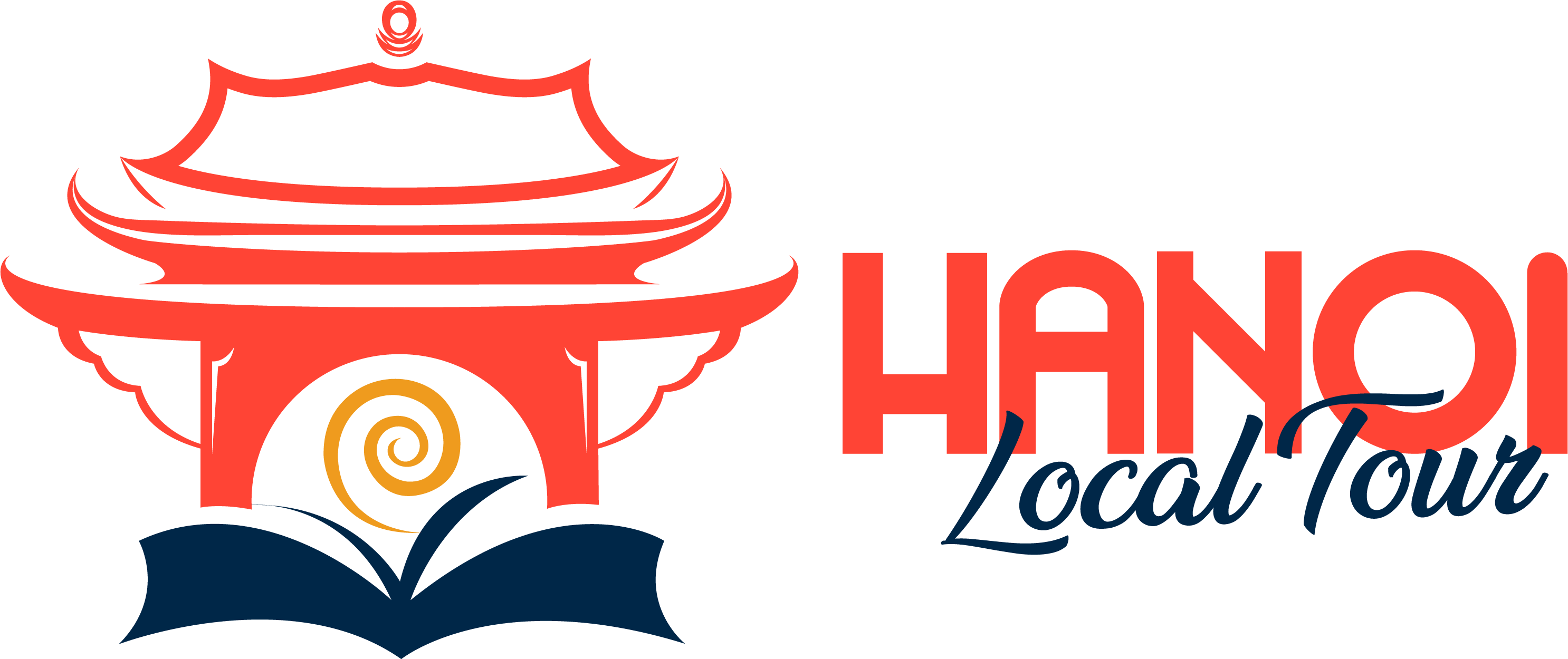
- Search for:
- Hanoi Tour Packages
- Hanoi Village Tours
- Hanoi History Tours
- Hanoi Language Tours
- Hanoi Night Tours
- Hanoi Art Tours
- Hanoi Show Tours
- Hanoi Home-Stay Tours
- Sapa Home-Stay Tours
- Cooking Class
- Group Tours
- Cruise Tours
- Vietnam Tours
- Tailor-Made Tours
Hanoi Travel Blog
Top 10 tourist scams in hanoi.
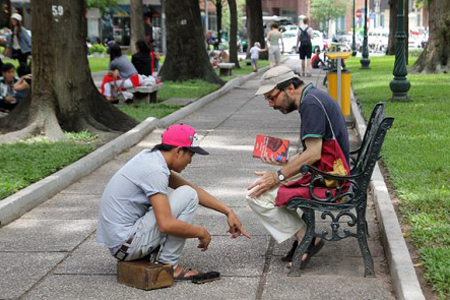
Visit a new land for the first time comes with a learning curve. Not familiar with the language, currency, or local customs makes you far more susceptible to unscrupulous individuals who are eager to take advantage. Like anywhere on this planet, scams are common in Hanoi. Some scams off will be in credibly smart and hard to detect. My Hanoi Tours offers top 10 popular scams in Hanoi either collected on Internet or sent by our customers to help avoid travel scams in Hanoi for a pleasant Hanoi tour with no regrets, disappointments, or feelings of being cheated.
Motorbike Rental Scams Motorbike rental scams getting fairly tricky in Hanoi include renting you the motorbike that is old, not mechanically sound and then claim that you are responsible for repairing it. Another case, you rent the motorbike from your store, then steal it back from you with the spare set of keys and demand compensation. How to avoid: you should rent motorbikes with your hotel or accommodation’s service.
Fake Beggars Roaming around Hanoi, you may face some people who take advantage of money that sense of sympathy and use it for their own profit. Some of them being children and handicapped people are part of ring set up to earn money on the streets.
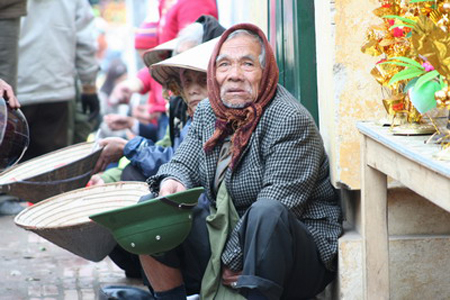
How to avoid: Because the majority of the time any money or item will not go to these children or handicapped people, so the best way to do this is to feed them. Take them to a market stall and buy them some fruit if you feel you need to improve the situation.
Pickpockets and Snatch Theft Carrying cash is a necessity in Hanoi because credit cards are not accepted in some small stores, but it may result in frightening fees. Travel to bustling city like Hanoi, you should always be alert and careful with pickpockets and snatch theft. Sometimes, they work in teams to snatch cash. A street tout talks to and distracts you, while pickpocket swipes your valuables. How to avoid: In busy places, keep an extra eye on your wallet and purse. Be wary in such situations and check your bag if you feel someone brush against you.
Taxi scam & Motorbike taxi scam Illegal taxi drivers are quite popular in Hanoi. They use so many tricks up their sleeve. One way is taking advantage of a modified meter, which runs faster than normal ones. Therefore, unscrupulous taxi drivers can increase the fare. Another way, they can take longer path to maximize the fare. The longer the trip is, the more money they can rip off travelers. How to avoid: In order to avoid this scam, you should get a cab of trustworthy brands, like Mai Linh (the Green Taxi), Vinasun or Taxi Group. Negotiate clearly price before getting inside. Confirm whether the price is total or per person. In Vietnam, no requirement of certification or training to become a motorbike – taxi driver; anyone with a motorbike can become a motorbike – taxi driver, so taking motorcycle-taxi trip is quite adventurous in Hanoi, especially for foreign visitors. Many drivers are deceitful and they have so many scams to use. The most popular one is “go first, money later. It’s cheaper compared to taxi”, and after that, you have to pay a high fee, sometimes even higher than a taxi trip. Or like illegal taxi drivers, they usually go around to raise the fee. How to avoid: To protect yourselves, trust your gut and stay away from dubious motorcycle-taxi service, especially when you are by yourself or traveling late at night.
Street Shoeshine One of the most popular tricks in Hanoi is for shoeshine. Strolling around Hanoi’s streets, you may come across shoeshine boys removing your sandals and tell you they need repairing. Within seconds they have your sandal and apply superglue, and then you have to pay amount of money for it. How to avoid: A firm but polite “No” will do their jobs. In certain circumstances, just pretend you do not listen and walk away.
Street vendors Foreign tourist, especially Western people are interested in street vendors in Hanoi with small fruit hangers and conical leave hat. However, these friendly-looking people do not always act as the way they look. Sometimes they can cause so much trouble and annoyance for tourists when they are walking. Some vendors who offer you to lend you a fruit basket and invite you to take photos with their hangers and bamboos hats. Once taken, they will demand a fee, a tip, or a purchase of their products. And you will be hounded until you pay. How to avoid: firmly but politely say “No” with street vendors. Can buy something from them, but don’t take photos with their hangers and bamboo hats.
Currency Confusion Although Vietnam dong is Vietnam’s official currency of Vietnam, many places also quote in USD to make overcharging easier for them – either by rounding up to USD (which is higher than the value in Vietnamese Dong) or by demanding payment in Dong while using an unacceptable exchange rate. In addition, you properly come across some street vendors telling you 5, it could mean 5 USD, or 5,000 VND How to avoid: If a price is quoted in dollars and you choose to pay in Vietnamese dong, always double check the exchange rate used to make the conversion.
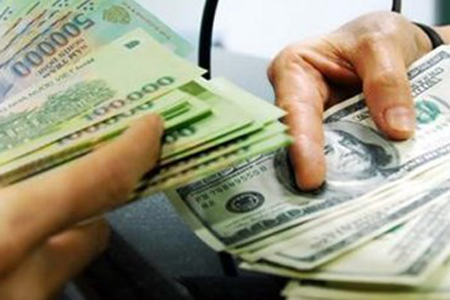
Hotels Some unscrupulous hotels in Hanoi have many cunning tricks to trap foreign tourists. In today’s online world, hotels can easy to create fake reviews by writing good articles to gain fake reputation. They also advertise low room fees online, but when tourists arrive, they will claim that the low fees were only for the standard rooms which have been fully booked. To book the higher end rooms, you will have to pay a lot more. How to avoid: Firstly to verify a hotel, check its location in addition to its name. Book in advance through one of the trusted booking sites and bring the confirmation email or voucher with you. It may be worth spending the extra buck at first than to waste it reluctantly later.
Ticket Booking Scams in Vietnam Some guys in the train or bus stations may offer you to do a ticket booking, after that they tell you that the bus or train has been delayed and offer you get a new ticket with a higher price. How to avoid: Carefully check train or bus tickets when traveling in Hanoi. Should book tickets with your travel agencies or hotels.
Photographers Travel around some Hanoi’s attractions, you may meet some street photographers being apparently friendly, but they can trap you if you are not careful. They are often very friendly, enthusiastic, ready to help at first, and ask tourists if they want to take photos with a very cheap price and quick return service. Once tourists agree to take some snaps, they will take doubles or even triples the number of photos that tourists required before with the price of 10,000 to 20,000 VND per photo and sometimes promise to deliver the photos to tourists in 2 or 3 hours. And of course, you will never meet them again. Tourists must pay money for something they can never have. How to avoid: highly recommend to bring your own camera and have some other friendly-looking people nearby take photos for you.
Username or email address *
Password *
Remember me Log in
Lost your password?

How to Spot & Avoid the Most Common Tourist Scams in Vietnam
Disclosure: This article contains affiliate links, meaning when you make a purchase, I earn a small commission. Affiliate links cost you nothing to use, and help keep my content free. It’s a win-win! For more information see the Disclosure Policy .
Planning a trip to Vietnam? Great! It’s awesome, and you absolutely should visit. But, just like any popular travel destination, you’ll need to watch out for tourist scams.
Tourist scams are annoying. You have to think about someone trying to overcharge you or trick you when you just want to enjoy your vacation.
I’ve lived here in Vietnam for over seven years and I’ve seen all the scams. I’ve been duped by “travel agencies”. I have been given the wrong change. My restaurant bill has been padded. And taxi drivers have tried to charge me absurd amounts. Experiences like those are exactly why I want to share what I’ve learned.
This guide will give you a local expat’s advice on how to spot and avoid the most common scams in Vietnam.
Let’s dive in and get you ready to explore Vietnam worry-free.
TLDR; Top 10 Most Common Tourist Scams in Vietnam
Not interested in reading all of the details on the many potential tourist scams in Vietnam? Here is a quick list on 10 common scams you might run into:
1. Overpriced Tours: Some tour operators will charge high prices for experiences you could arrange yourself at a fraction of the cost. Doing a bit of research and comparing prices can help you find better deals.
2. Street Vendors and Shops Near Major Tourist Attractions: While shopping, you will find inflated prices in areas popular with tourists. It’s always a good idea to explore a bit further away for more reasonable prices and to practice your haggling skills.
3. Taxi Scams: Taxi drivers might take longer routes or manipulate the meter to overcharge you. Going for reputable taxi companies or using ride-hailing apps like Grab can help you avoid this.
4. Sim Card Scams: Buying a SIM card is necessary for staying connected, but some vendors sell them at high prices or with less data than promised. Purchase your SIM card from official stores, at the airport, or from an esim company like Airlao for transparent deals.
5. Currency Confusion: Some vendors might take advantage of the similarity between money. The 20,000 VND and 500,000 VND look quite similar, but there is a big difference between $0.80 and $20! Also the 10,000 VND and 100,000 VND are sometimes confusing
Familiarizing yourself with the local currency and always taking a moment to double-check your change can help prevent this.
6. Padded Bills in Restaurants and Bars: It’s not uncommon for some restaurants to add extra items to your bill or inflate prices, banking on the chance that you won’t notice. Always review your bill carefully before paying.
7. Aggressive Street Sellers: In tourist-heavy areas, some street sellers can be quite persistent or use guilt tactics to make a sale. While it’s understandable to want to support local businesses, it’s also okay to politely decline if you’re not interested.
8. Motorbike Rental Scams: Renting a motorbike is a fantastic way to explore Vietnam, but be wary of rental scams. Issues range from inflated repair charges for minor scratches that may have already been there to demands for excessive compensation for “lost” bikes. Rent from reputable agencies, inspect the bike thoroughly before renting, and take photos as proof of its initial condition
9. Shoe Shiners: In the shoe shining scam in Vietnam, a shoe shiner might approach you on the street, pointing out an issue with your shoes and start to clean them without your consent. After a quick and unsolicited service, they demand an unexpectedly high fee. To avoid this, politely decline any unsolicited shoe shining offers.
I know lots of people that use the shoe shiners! Just agree on a price beforehand, and watch them. If you start to see them unsoling your shoe and putting new ones on … you’re about to get charged for service you likely didn’t want!
10. Fruit Ladies: In this common scam, women carrying baskets of fruit on a yoke approach you, offering to let you try carrying the basket or insisting on taking a photo. Once the photo is taken or after you’ve briefly held the basket, they demand payment for the fruit or the photo opportunity. Of course you want a photo shoot with a cool fruit carrying basket! Then they will demand money or make you buy overpriced fruit. Honestly, not that big of a deal, and you can typically negotiate them down. If you want this picture – great! Just tell them ahead of time how much you will pay. Or buy some fruit then take the picture.
Tourist Scams in Vietnam

When you’re exploring Vietnam, there are a few scams you will absolutely run into as a tourist. The first piece of advice I can give you is just accept the fact that someone, somewhere is going to try and get some extra money out of you.
If you have traveled anywhere else in the world, you know this is not unique to Vietnam . But having it in your mind that you may get taken advantage of, can help.
The most frequent tourist traps travelers face here are:
- Change not being correct
- Overcharged on Small items
Some scams are so minor, literally making an extra $1 off you. You need to decide if it is worth fighting over. Sometimes, out of principle, it is! Other times, it is good to just “let it go”. Jump to this section for some other tips on how to deal with tourist scams.
Let’s break down these common scams to help you stay one step ahead.
One of the most popular scams you might find in Vietnam involves taxis. Not all taxi drivers are out to get you, but it’s important to be aware of the common tricks used by the less honorable ones.
Common Scam: Non-Legitimate Taxi Drivers
Taxi drivers may approach you (typically at the airport or in a very heavily touristed area) and say something like….
“Cancel your Grab, I can take you for the same amount.”
While it might seem convenient, this is often a setup for a scam where the driver might not take you where you want to go. They will drive you around on a longer route and then demand a higher fee.
How to Avoid it: You will find these taxi scams most commonly at the HCMC and Hanoi Airport. Avoid them by walking straight to the official taxi line, or call a Grab.
Common Scam: Non-Working Meters
If it is a legitimate taxi company, there should be a meter. Sometimes drivers will say the meter is broken and demand a flat rate up front that is significantly higher than it should be. You might also face situations where the meter runs too fast (I’ve never actually experienced this before)
How to Avoid it: Make sure the meter is working. If a driver insists on a flat rate, I will do two things. First, I will scoff and say “Dat Qua” which means “expensive”. I will also pull out my phone and the grab app and show them how much the grab fare is. If they don’t match it (or come close), just walk away.
To avoid dodgy taxis, stick with reputable companies. Mai Linh is one of the most reliable options available across Vietnam. They are known for their green taxis. Taxi Group is another company you can trust.
Market and Vendor Scams

Exploring the local markets and trying street food are must-do activities in Vietnam, but they also come with their own set of risks.
Common Scam: High Prices
One typical scam involves vendors charging majorly inflated prices to tourists who may not be familiar with the local cost of goods. For example, a fruit seller might quote a price that’s double or even triple what a local would pay. In some cases, the prices might seem small by international standards, but it’s the principle of being overcharged that can ruin your experience.
How to Avoid It: You can’t really. But you can go with the flow and try to negotiate with them. Oftentimes I will just laugh and say no way! Then they will laugh because they know how absurd the OG price offer was.
Common Scam: Fake Items
Fake items are another concern, particularly in markets selling souvenirs and branded goods. It’s easy to be tempted by low prices for what appear to be high-quality products. However, these items are often imitations and not worth the asking price.
How to Avoid It : Do research on the price of items before you go shopping, so you know what you are working with. Learn some basic Vietnamese phrases to bargain.
Currency and Payment Scams

Currency and payment scams are another area where tourists can easily get ripped off in Vietnam. The Vietnamese Dong is the official currency of Vietnam. Make sure you are familiar with the notes!
Common Scam: Incorrect Change
The 20,000 and 500,000 dong notes are both blue and can be easily confused if you’re not careful. This mix-up can be costly.
20,000VND = $0.80 and 500,000VND = $20.
Sometimes vendors will not give correct change hoping that you aren’t paying attention or don’t know the money well enough.
How to Avoid it: Pay attention! Really look at your bills before you pay for something, and know how much change you are supposed to get back.
Common Scam: Padded Bills in Restaurants
It’s not uncommon for some establishments to add extra items to your bill or inflate prices, banking on the chance that tourists you won’t notice.
How to Avoid it: Always review your bill carefully before paying.
Katie Story → Very recently, I ate breakfast at pho restaurant in the Old Quarter. It is a popular tourist pho spot. I knew exactly what I ordered and how much it should have cost. Yet when I went to pay, they tried to charge me an additional 100k (this is only $4 and in the grand scheme of things is a very small amount). I looked at the menu and added up the cost of things on my calculator, and they said “Oh, sorry sorry! Mistake!”. It very well could have been a mistake, but if I wasn’t paying attention they would have gotten away with charging me extra!
Common Scam: Exchange Rates
When it comes to the exchange rate, be wary of changing money at unofficial venues that promise significantly better rates. These places might manipulate calculations or hand back less cash than owed.
How to Avoid It: Always use authorized money changers or banks for currency exchange to make sure you receive the correct amount at a fair rate. Also, I just recommend taking money straight out of the atm, and not have to worry about exchanging money in the first place!
Common Scam: Credit Card Scams
Credit card scams can also happen, particularly in smaller shops or less reputable establishments. Skimming devices can be used to copy your card details for fraudulent purposes.
How to Avoid it: Honestly, it’s best to use cash in smaller places and save your credit card for use in larger, well-established businesses that you trust.
Accommodation Scams

You will likely find throughout Vietnam that most hotels and hostels offer great service and genuine hospitality. However, there are a few accommodation scams you should be aware of. I will say that I have never had a legitimate issue with being scammed at a hotel in Vietnam
Common Scam: Overcharging
Overcharging can happen at the time of check-out when unexpected fees are added to your bill. These could be for services you thought were complimentary or for items you never used.
How to Avoid it: Review your bill carefully and clarify the charges with hotel staff. Always ask for a breakdown of your bill when you check in, so you know exactly what to expect when it’s time to pay.
Common Scam: Fake Fees
Fake fees are another trick to watch out for. Some less honest hotels might claim you need to pay extra fees for standard services or invent charges for nonexistent damages to the room.
How to Avoid It: To avoid these situations, take photos of your room when you arrive and when you leave, showing the condition of the space.
Common Scam: Security Issues
Security of personal belongings is also a concern. Not all accommodations offer safe, secure storage for your valuables, and it’s not uncommon for items to go missing.
How to Avoid it: Whenever possible, use a safety deposit box or bring your own lock to secure your luggage. Also, just use common sense and don’t leave valuables unattended in your room, especially not in plain sight.
Common Scam: Hotel Not Represented Accurately
Sometimes you may get to a hotel/hostel and see that the reviews/score do not live up to what you thought it was going to be. Sometimes hotels will get travelers to leave positive reviews in exchange for money off their bill.
How to Avoid it: Stay in hotels that have at least 100 reviewers. Take note, if the reviews are all 10/10, there is likely something fishy going on.
Katie Story → The only time I have ever been “scammed” at a hotel was through a review scam. When I booked the hotel it had over 1000 near perfect reviews. I was like “I need to see this to believe it. It must be an incredible hotel!”. When I got there, the hotel was very nice and clean and mostly what it was advertised. But over 1000 10/10 reviews…no way. Then I learned why when I checked out. They asked me to leave a review and what my score would be. I said I would likely give them a 9/10, it was great, but some things could be better. They then asked me to change my review score to a 10/10 and they would give be 200,000VND back! I said no thanks and left the review I wanted to leave!
Transportation Scams

Getting around in Vietnam can be as fun or as difficult as you want it it be. You can drive yourself on motorbike rental, hire a personal driver, or take public transportation everywhere. No matter what mode of transportation you choose, knowing the common scams can save you both time and money.
Cyclo Rides
Cyclos, or bicycle rickshaws, are a cute little way to see the cities of Vietnam. Know that they are specifically for tourists – locals do not typically hop in a cyclo as a way to get around. So that means cyclo drivers are specifically on the hunt for tourists to make money.
That is fine! It is their job!
But some may take advantage of you by taking unnecessarily long routes to increase the fare OR quote you a super high price. Before you hop in, agree on a route/amount of time and negotiate a fixed price to avoid any unexpected charges at the end of your ride.
Motorbike Rentals
Renting a motorbike can give you the freedom to explore at your own pace, but it comes with its own set of risks.
First of all, I don’t recommend renting a motorbike in Vietnam and driving for the first time. If it is your first time on a motorbike, spend some time learning in more open and less crowded places. Da Nang is a good place to start practicing.
Second of all, if you are driving a motorbike around Vietnam make sure you have travel insurance. I cannot stress this enough. I see too many accidents for you to be on a motorbike and not covered. Read my article about what travel insurance is best for you .
Now that that is out of the way, here is what you might need to pay attention to if you are renting a motorbike in Vietnam:
Some rental agencies might provide bikes with mechanical problems, then hold you responsible for repairs when you return them. Just like with renting a car in other parts of the world, take pictures of the bike beforehand. And if something is wrong, contact the company ASAP.
Some companies may say that you need a Vietnamese driving permit, and use this as leverage to collect fines or fees. This is not the case. If you’re renting from a legit company, they should provide you with a waiver and contract to sign, give you a helmet, and not add on any additional fees.
Ticketing Scams
You may find yourself caught in a ticketing scam. I have only ever heard of these, and haven’t actually seen them. Basically, people may try to sell you fake or overpriced tickets.
Train and Bus Tickets
Fake train tickets or bus tickets sold at significantly inflated prices may be something you experience. Sometimes, ticket sellers outside stations offer what seems like a convenient service, but these tickets may turn out to be invalid. It’s best to purchase your tickets directly from the official ticket counters or through reputable online platforms. Be wary of anyone selling tickets for “cheaper” seats as these might be for lower-quality services or completely bogus.
I recommend buying bus and train tickets through an official website here: Ve DSVN
Tour and Attraction Tickets
Overpriced tickets for tours and attractions are another common scam. Some tuk-tuk drivers or unofficial guides might offer to take you to a ticket seller who promises entry at a lower price. Then you get there and find out that these tickets do not grant access or are for something not as advertised.
I recommend booking any official tickets at the ticket box location of the destination, or using Get Your Guide or Viator .
How to Spot and Avoid Scams

Traveling in Vietnam—or anywhere in the world—means you need to just pay close attention to certain things so you don’t get taken advantage of! There are some basic steps you can take to stay safe and scam free (these are good pieces of advice for anywhere in the world, not just Vietnam).
Identifying Red Flags
Scammers often use tactics that prey on a tourist’s lack of local knowledge or fear of missing out. Be wary of any deal or offer that seems too good to be true—it probably is.
Suspicious behavior to watch out for includes overly aggressive selling tactics, a refusal to provide detailed information, or a push for immediate payment. If someone seems eager to avoid official transaction channels or is vague about the specifics of an offer, it’s a strong indicator that something isn’t right.
Preventive Measures
One of the best ways to avoid scams is to stick with reputable service providers. Whether it’s hotels, taxis, or tour companies, choose businesses that have strong reviews and a good reputation.
Online platforms can be invaluable here, as they provide both customer reviews and a way to verify legitimacy. When booking anything always do so from official sites or counters.
Safe Payment Practices
When it comes to handling money, always go for payment methods that offer security and proof of purchase. Credit cards and payment apps are excellent because they provide a digital trail.
Avoid carrying large amounts of cash, and be discreet when handling money in public. Always count your change carefully and confirm the amount before walking away. When possible, use ATMs at reputable banks or inside hotels rather than standalone machines on the street.
Tips for Staying Scam Free
Use these tips to avoid getting scammed anywhere in the world – not just Vietnam!
1. Nothing is Free!
If someone says something is free, there is a catch. Nothing is free.
2. Carry Small Bills
A 500,000 VND bill is the biggest bill we have in Vietnam. While the equivalent of $20 doesn’t seem like so much, often shops won’t have the change (or won’t want to) break that bill. There are a couple of ways to fix this:
- When you pull money out of an ATM, sometimes they give you an option on what type of bills you want. If you do have that option, choose small bills!
- If you only have large bills, go into a convenient store like a Circle K or WinMart, and buy something to get smaller bills than 500,000.
3. Don’t Let Anyone Touch Your Wallet
Sometimes shopkeepers think they are helping you by pulling the correct change out of your wallet for you. While most of them mean well, and aren’t trying to scam you, some of them are. As a rule, don’t let anyone touch your wallet.
4. It is Okay to Walk Away
If a shopkeeper is getting aggressive or not bringing a price down that you think should be brought down…it is okay to walk away! Sometimes you feel bad, especially if you have been looking around for awhile, but don’t! Even if you agreed on a price for something, you can change your mind!
5. Trust Your Gut
Plain and simple, trust your instincts. If something feels fishy, it probably is!
6. Know When to Let it Go
Sometimes it is worth standing up for the principle of being overcharged for something. But sometimes it is not worth your time or energy to argue. Know when it is okay to just let it go and understand that you are going to be paying a bit extra for something.
Final Thoughts: Tourist Traps and Scams in Vietnam
By now, you should have a clearer picture of the common scams in Vietnam and how to avoid them. From taxi scams to market vendors charging too much for simple items, these issues can leave you with a bad taste in your mouth.
But with a few practical steps—like sticking with well-known service providers, being cautious with your payments, and staying wary of deals that don’t seem right—you can avoid most tourist scams in Vietnam.
Katie McGrain is a Vietnam Trip Planning Expert. She has lived in Hanoi, Vietnam since 2017, and has explored just about every corner of this country. She provides female travelers to Vietnam with resources, ideas, and guides on where to go and what to do. Her on the ground research, planning and advising helps women have a safe, memorable and authentic trip to Vietnam.

6 common scams in Vietnam (& how to avoid them)
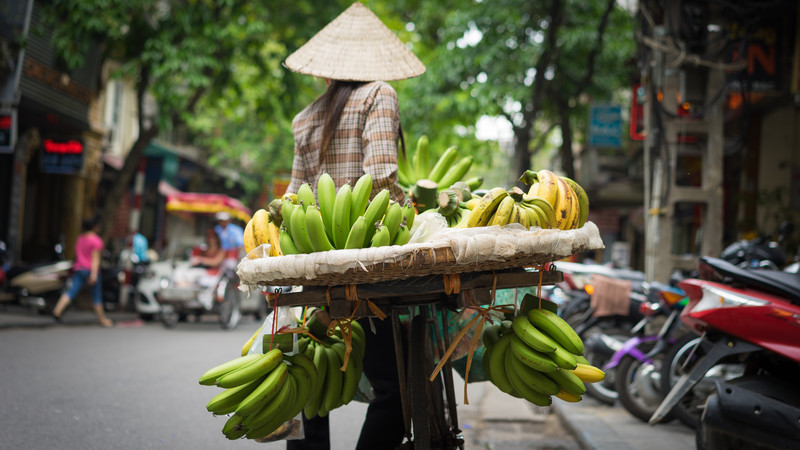
Don’t get us wrong, we adore Vietnam . The people are infectiously happy, the ancient cities are a treat to explore, and I could eat nothing but crunchy banh mi for days.
But like any country, especially one that has witnessed rapid economic and social growth, you’re bound to meet a few locals trying to get ahead with scams and tricks. While there’s nothing to fear, here are some words of advice to make sure you’re always one step ahead.
1. The eager cobbler
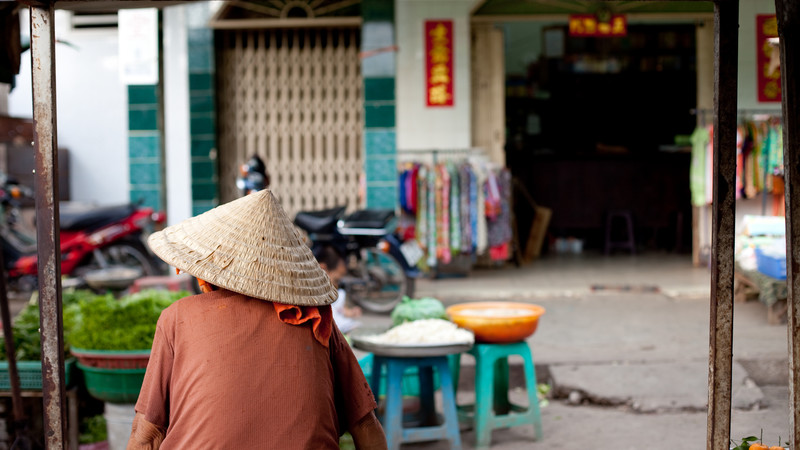
The eager cobbler is a common scam and it seems innocent enough. They stop you, try and find a fault with your footwear, and then charge for the cost of repairing it (or sell you a new pair of shoes).
How to avoid it: Unless your soles are worn down to rice paper, your best approach is to just keep on walking.
2. The dodgy taxi
Dodgy taxis are so common throughout Southeast Asia they’re pretty much an essential experience, but not if you’re clued in. While taxi licensing isn’t well regulated, there are still some signs you should look out for before getting into a cab. For instance, the Vietnamese pride themselves on providing professional services, and they’ll dress accordingly. If your taxi driver isn’t wearing a shirt, tie and slacks, it’s likely they’re not a licensed cab driver.
Similarly, some cabs will paint their cars to look like licensed taxis (which are usually green or white). They’ll also put a sign on their doors advertising they are ‘metred’. Ironically, this is done to attract tourists who might be worried about unmetered taxis. Once these hapless passengers get in, they quickly realise they’re being taken for a ride (and not the one they intended).
How to avoid it: Before climbing into a taxi, check for branding to make sure it is properly licensed operator (such as Vinasun Taxi), the driver is dressed professionally and the car isn’t spruiking its ‘metred’ services.
RELATED ARTICLE: WHY YOU SHOULD THINK TWICE ABOUT HAGGLING IN VIETNAM
3. The squeaky donut
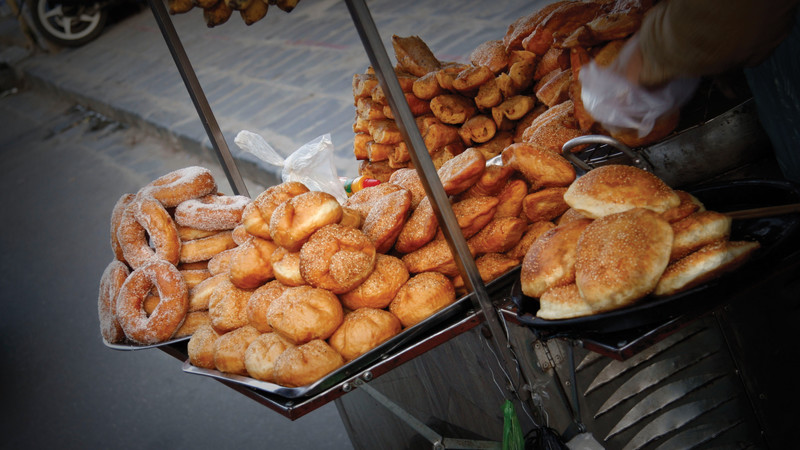
Photo by Katie Gosman
Street food is everywhere in Vietnam (and it’s absolutely delicious), but there are a few street snacks you should be wary of. Occasionally you’ll walk past street vendors carrying plastic bags of little brown donuts. They’ll stop and ask if you’d like to try one for free (a universal red flag, people). If you say ‘yes’ and taste one, the vendor will gently pressure you into buying a small bag of donuts. On the surface this might seem simple enough; after all who doesn’t want a bag of crunchy fried donuts? The problem is the oil used to fry these donuts is unregulated. You don’t know where the oil has come from and it could go unchanged for days (or even weeks) at a time, meaning your donuts might have been cooked in unsanitary conditions. Many travellers have reported feeling sick after eating street donuts.
How to avoid it: With so many great street food options available, skip the donuts and opt for another street snack instead – like banh mi or banh xeo (stuffed pancakes).
4. The motorbike/cyclo tour
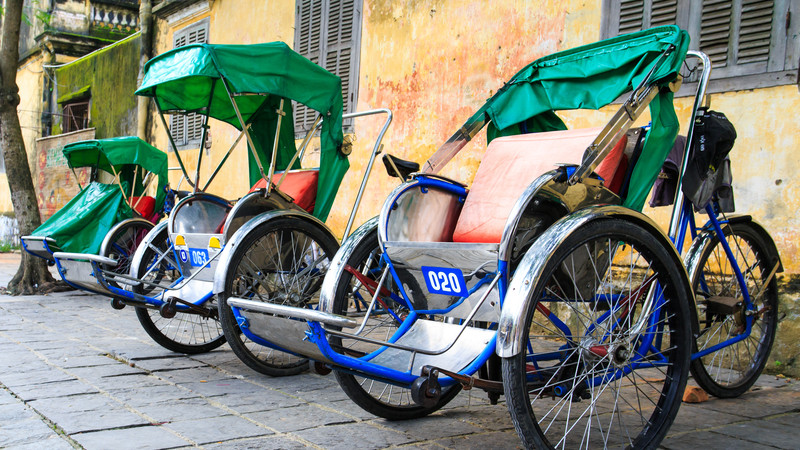
The motorbike scam can also be an invitation to see the rice paddies just outside town, or as a guided city tour (such as in Hue or Hoi An).
How to avoid it: If you’re tempted by the idea of a motorbike ride, talk to your tour leader or hotel reception about booking a tour with a licensed tour operator.
GUIDE: NORTHERN VIETNAM IN ONE WEEK
5. The luggage handler
From Rome to Rio, the luggage handler is a common character around the world. If you’re getting ready for an overnight train , or simply loading your taxi for the airport, you might meet one. They’ll swoop in unexpectedly and pick up your bag, carry it to your carriage or car, and stow it for you. Meanwhile you’re left standing there wondering what just happened. As the luggage handler sees it, they just provided you with a service and should be tipped.
How to avoid it: The best thing you can do to prevent this is to keep a close eye on your bags around train platforms and ask the train station staff or taxi driver to help you lift your bags. If you’ve been stung, you could try hold your ground and refuse to offer a tip (although it might be better to give them something small to make them go away).
6. The fruit seller
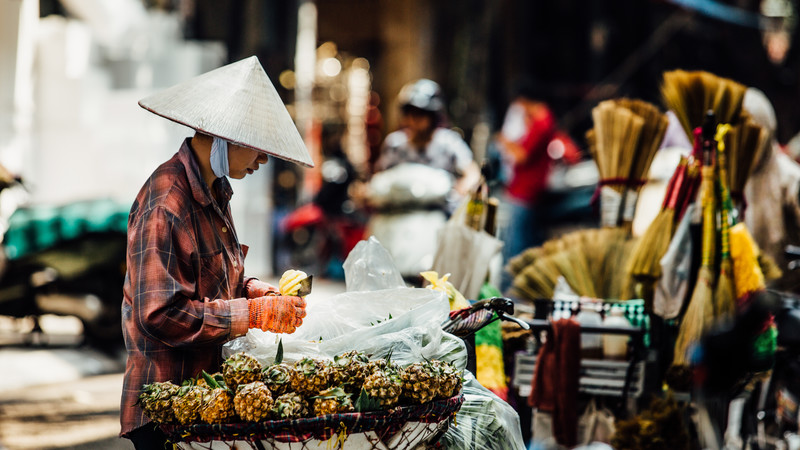
How to avoid it: If you don’t want to pay for a picture, politely but firmly say ‘no’.
It’s important to remember that these tricks are few and far between and, while it’s something to be mindful of, they shouldn’t keep you from enjoying all the temples, street food and tea houses this beautiful country has to offer.
Now you’re all clued in, jump on one of our Vietnam adventures .
Feeling inspired?
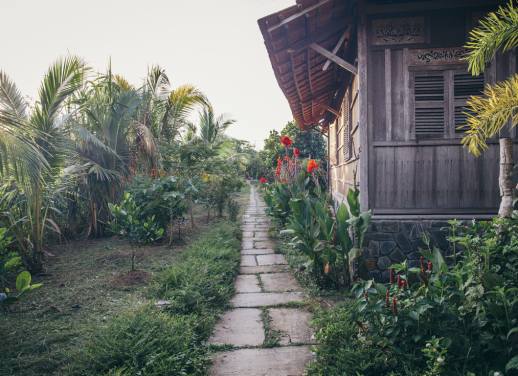
Justin Meneguzzi
No matter where I travel I'm always drawn to the same two things: good food and good people. You can find me ordering the weirdest things on the menu or pushing the ‘pull’ door. Follow my adventures on Instagram @justinmeneguzzi
You might also like
How to visit europe in the off-season, best places to travel in march, best places to travel in may, best places to travel in february, best places to travel in april, best places to travel in june, how to secure your inca trail permit the..., best places to travel in july, best places to travel in january, best places to travel in november, best places to travel in october.
- Skip to content
Backpack and Work
Blog on working remotely while travelling
10 Common Tourist Scams in Vietnam (and how to avoid them)
Vietnam / 6 September 2020 by James / 1 Comment
I love Vietnam. It’s one of my favourite countries in the world. There’s a wide variety of things to do, the food is delicious and it’s incredibly cheap to backpack around the country.
But… amongst the many kind Vietnamese people are a whole load of scammers and rip off merchants eager to pounce on unsuspecting tourists. Across my personal travel experiences (predominantly in Asia), I’d put Vietnam in the top three, alongside Sri Lanka and Morocco, of the worst countries for this type of behaviour.
In this post I’m going to detail some of the common scams/rip offs and how to avoid them. Apologies in advance for the Vietnamese currency jokes…
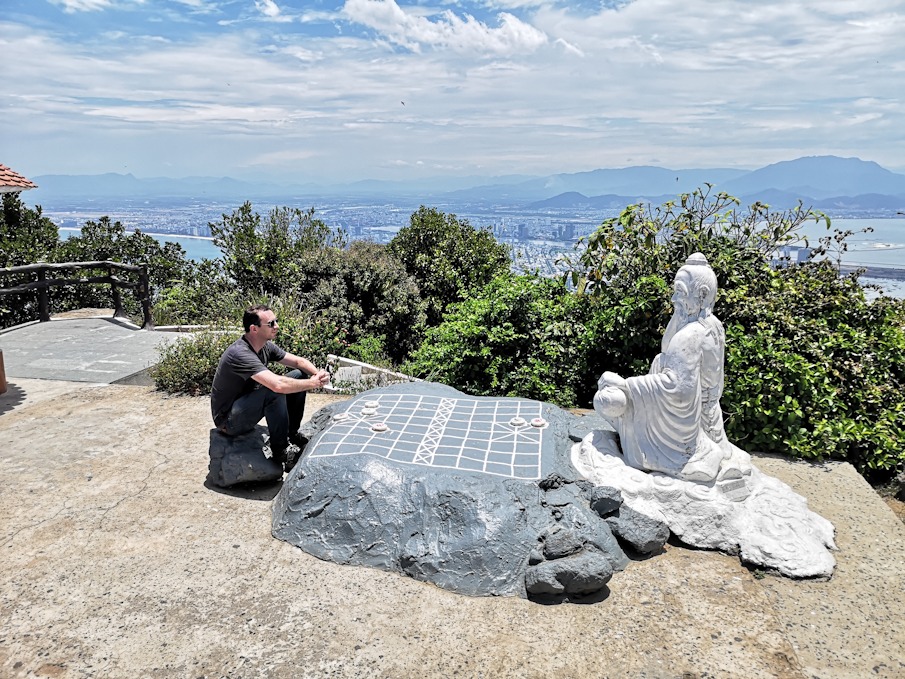
1. Taxi drivers charging ridiculous fees
The most common of them all and a regular frustration for travellers in many countries. This is especially prevalent at transport hubs and tourist attractions, I’ve been quoted up to ten times the price I can get through Grab, an app like Uber, while in Vietnam. Usually the multiple is far less, but I expect every quote from a taxi driver to be at least double what it should cost.
Where it happens
Basically anywhere that you try and get a taxi. Expect the largest mark ups to be at the aforementioned transport hubs and tourist attractions. Where possible, walking just a minute away from these areas and hailing a taxi should get you a lower quote, but it will still usually be higher than it should be.
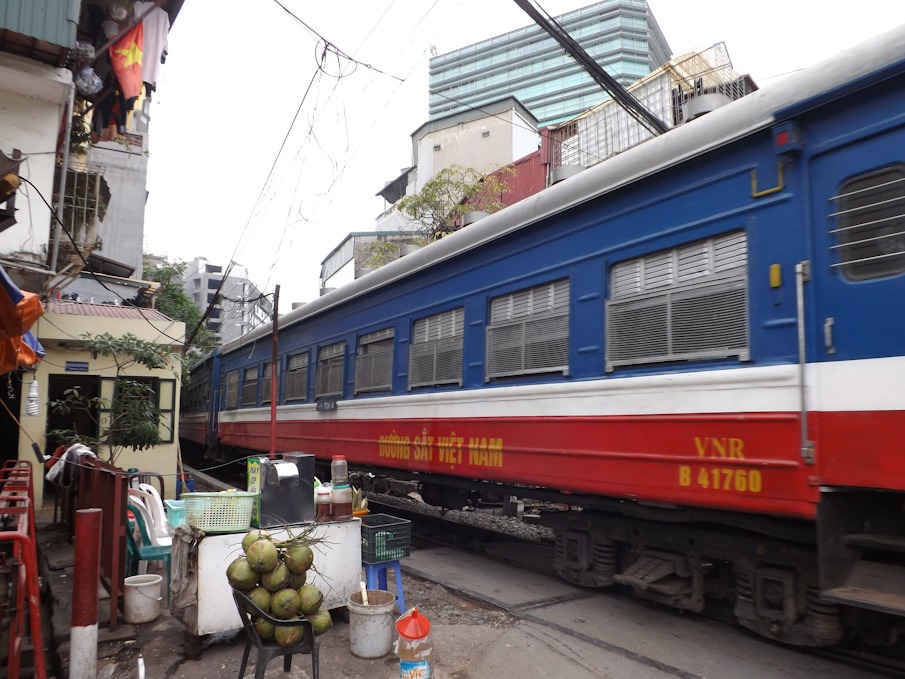
How to avoid
Option 1 – Use Grab. It isn’t available everywhere in Vietnam but, where it is, I’d suggest using this to avoid hassle.
Note that if a taxi driver shows you the Grab price on their phone, you shouldn’t believe it – they have probably selected a (far more expensive) VIP option. I have fond memories of this at Da Nang Airport – some drivers quoted 500,000 VND (£16.35 GBP) for a short ride to the city centre and, using their phone, showed me a similar price on Grab when I declined. When I checked the price on Grab myself, it was about 50,000 VND. I showed this to the next driver who approached me and, with me STARING AT THE SCREEN, he scrolled through the different Grab options on my phone to some VIP service costing about 500,000 VND, then acted like this was proof that his quote was fair and not ten times the normal price – how stupid does this guy think people can be!?
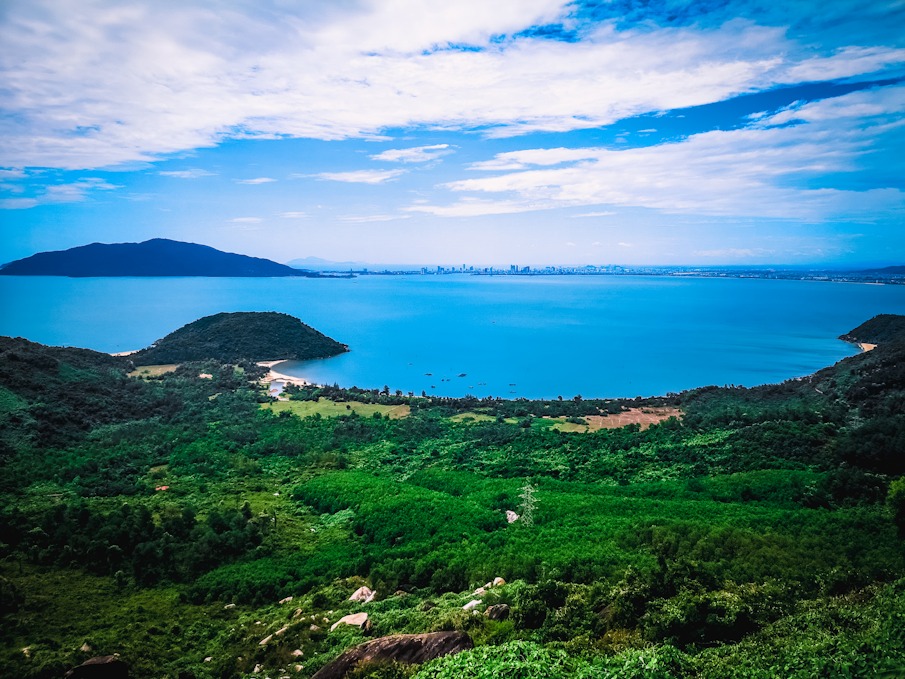
Option 2 – Ask for the driver to put the meter on before agreeing to the ride. This should get you a fair price but beware that fake meters, which rise faster than they should do, aren’t unheard of. The other risk here is that the driver can take a long ‘scenic’ route to your destination – having the route on your phone can easily put a stop to this.
Option 3 – If they insist on a fixed price, be prepared to haggle hard and willing to walk away. It’s best to have a rough idea of prices in advance, otherwise you won’t know what sort of fixed price to aim for.
I’d only use option 2 or 3 if Grab isn’t available. The app saves so much aggravation and means your money is going to the taxi drivers (minus Grab’s fee) who are willing to work, not the arseholes that hang around tourist spots all day waiting for one big fare.
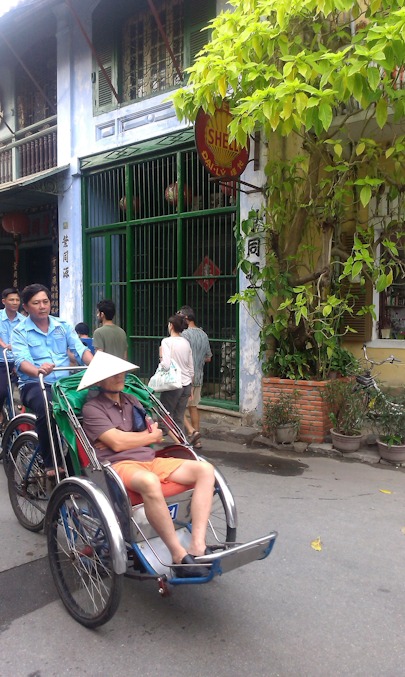
Even with Grab, I had a problem on one occasion. Upon arrival in Sapa, the driver sent me a message asking for 50,000 VND to go from the bus stop to my hostel. The actual price on Grab was about 30,000 VND so I cancelled the booking. This only happened to me once in Vietnam (worldwide, it’s happened to me a couple more times with Uber in Jordan) so I think it’s very rare, but don’t be shocked if it happens.
2. Motorbike taxis
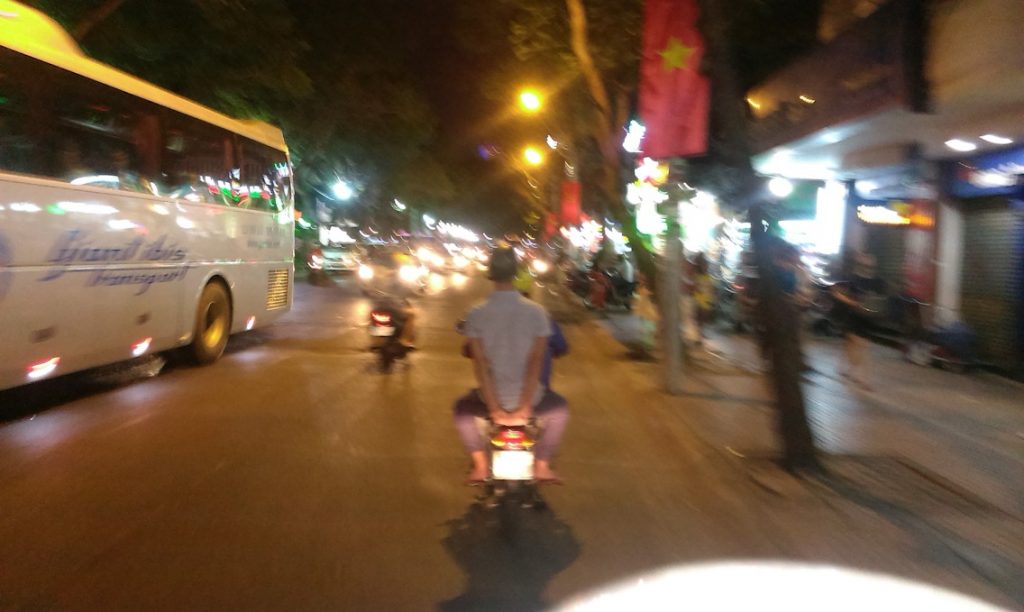
Continuing with the taxi theme, there are motorbike taxis who will offer to take you somewhere. This can be good fun and going should be fine, but you might find the price suddenly rising when you arrive at your destination.
This is one of two cons on this list that hasn’t been tried on me but it could occur anywhere. I suspect it’s more likely to happen in the big cities like Hanoi and Ho Chi Minh City.
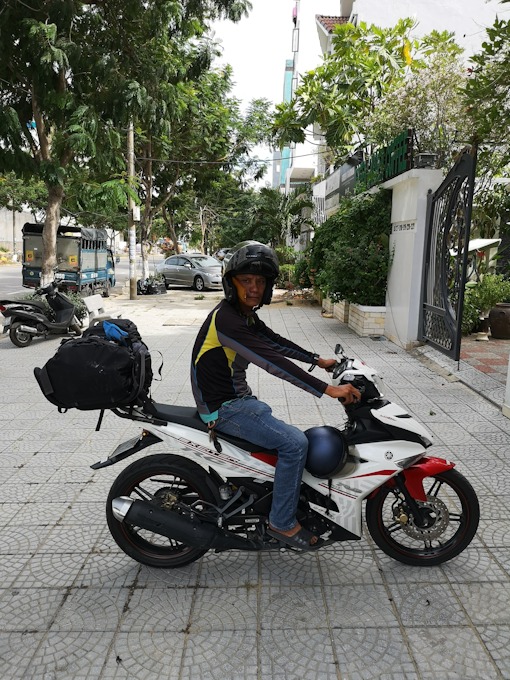
Haggle and agree a fixed price upfront. Check what it costs on Grab to help with your negotiations (don’t give them the chance to grab your phone and drive off). Stick to the agreed price if they ask for more at the end. Any claims that the price has gone up because there was a lot of traffic are nonsense – there is always a lot of traffic in Vietnam!
3. Getting your Dong mixed up
No need to be alarmed – the currency in Vietnam is called the Vietnamese Dong (VND). Banknotes range from 100 VND to 500,000 VND and, aside from the all-important number, the 20,000 VND and 500,000 VND notes look very similar. When handing a 500,000 VND note over, there’s a chance that the recipient might quickly switch it for a 20,000 VND note and pretend you gave the wrong one.
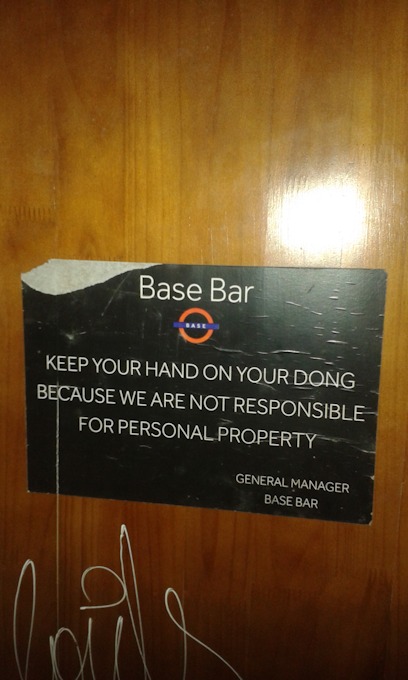
This is the other scam on this list that has never been tried on me, but anywhere where you’re handing over money is a possibility.
Pay attention when handing your money over, the recipient can’t switch notes if you’re watching.
On the subject of currency, break some of your big notes into smaller denominations as soon as you can. Small vendors might say they don’t have change (sometimes true, sometimes not) which can leave you a choice between paying extra or not buying what you wanted. I’ve paid slightly extra for water outside one of Hue’s royal tombs as the girl (who had already tried being flirtatious and using the coin collecting trick – more on these later) claimed she didn’t have any change.
4. Shoe shiners/repairers
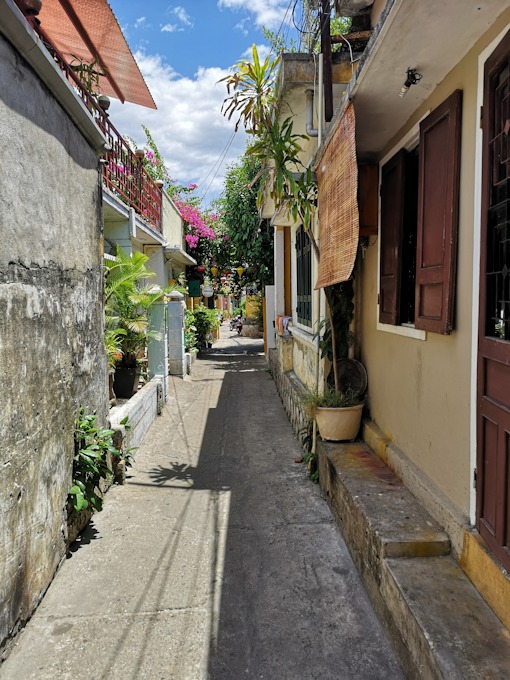
Picture the scene, you’re walking down the street or sitting outside and a guy suddenly exclaims “look!” at you while pointing at your shoes. He offers to shine/fix them and quotes a price. After the work is done, the price changes. The easiest trick here is for the price to double (the quote was per shoe after all) but some chancers may aim higher.
I don’t think it’s exclusive to Hanoi, but it’s been tried on me multiple times here and not at all in other parts of Vietnam.
Just say no – they can’t do any work on the shoes you’re wearing unless you let them. Don’t be like the guy in Goodfellas who asks to have his shoes shined. Note that, if your shoes actually are in poor condition, you’ll still probably have to say no several times before being left alone. Not that I have any experience of being out and about in such shoddy footwear…
View this post on Instagram View from the top of Mua Caves. Just a few stairs involved in getting to the top! A post shared by James Crescenzo (@backpackandwork) on Dec 6, 2019 at 4:10am PST
5. The coin collector
A local approaches you in the street under the pretence that they want to have a friendly conversation with a foreigner. This interest in you is highly unlikely to ever be genuine if you are in a location popular with visitors. At some point in the conversation, they ask where you are from and proceed to either 1) ask for a coin (or note, the greedy buggers) from your home country for their ‘collection’ or 2) ask if you can give them some VND in exchange for money they have in your home currency. Guess what? If they ask the latter, they got the foreign currency they want to change for VND from a previous unsuspecting tourist.
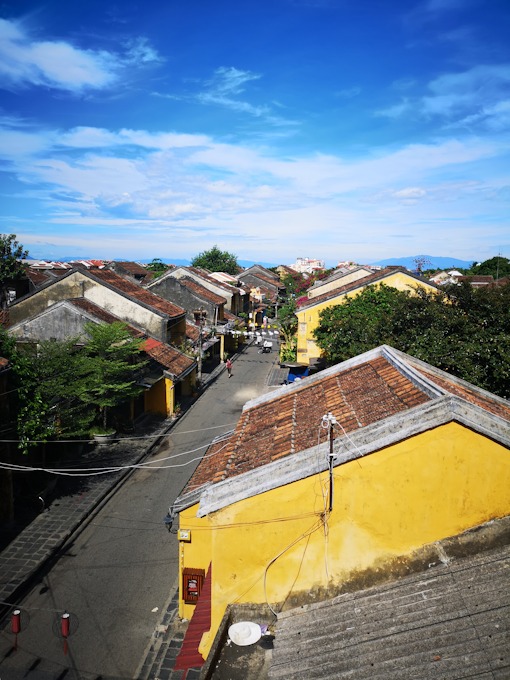
One guy, who looked like he was in his 70s, flat out asked me for VND after I declined his request to exchange currency. He needed the money to help provide for his baby daughter apparently. I suppose I should have congratulated him.
Another version of this trick is to say they are a teacher and want the foreign money to show to their school students or some other variation that involves showing children, since this can elicit sympathy. To be fair, showing foreign currency to kids is better than showing them dong.

Could be anywhere but collecting coins seems to be a very popular hobby in Hue. I have no idea why it happens so much here but it does. I have really fond memories of a morning in Hue where I got stopped multiple times by ‘coin collectors’ on a 15 minute walk from my hostel to a coworking space. When I arrived at my destination, I discovered it had closed down, went on another walk to a different coworking space and met more lovely coin collectors on the way to this one. Really, I should learn to just keep walking and not stop for a chat, but my Britishness usually gets the better of me.
The polite way – go through the motions of the conversation but decline to give/exchange any money. Either say you don’t have any money in your home currency to give them or, if they are asking for VND in exchange, say you don’t need any of your home currency as you’re not going to be there for a long time.
The rude way – just ignore them and keep walking. After getting constantly stopped and bothered by strangers for 20 minutes, hearing the latest tosser shout angrily at you as you walk away is quite satisfying.
6. Being overcharged for food/drink
You sit down, enjoy a meal and receive a bill with the items you consumed, but at higher prices than those on the menu. This is an easy one to fall for if you don’t remember the prices or if they only inflate the bill slightly.
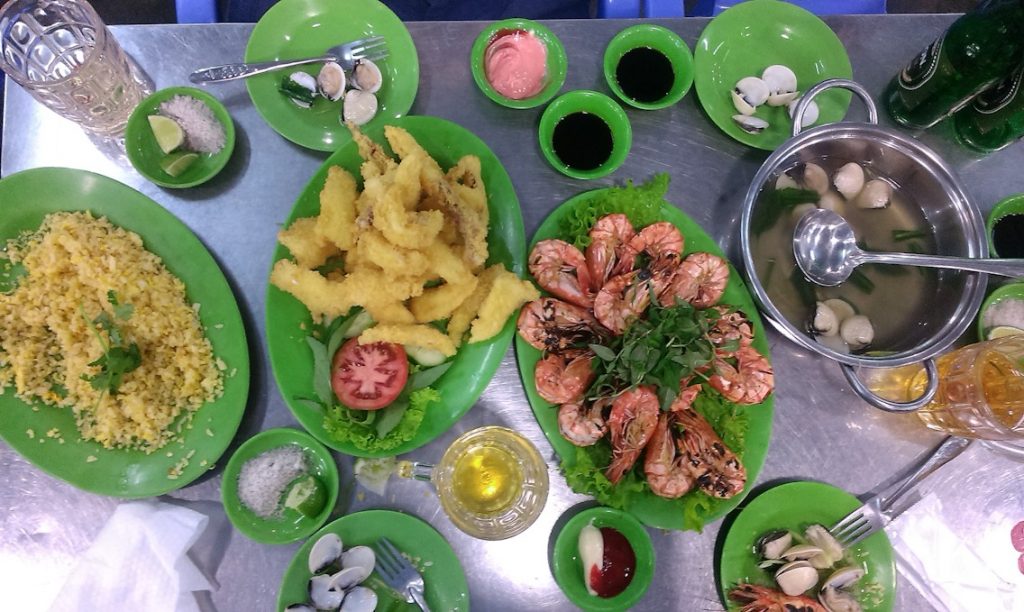
Note: There is a chance, anywhere in the world, that they have genuinely made a mistake with the bill so don’t immediately start making accusations. The opposite happened to me once in Bali where an old lady undercharged me – I could see the meal and drink on the bill added up to more than the total she had written down, but had to demonstrate this on her calculator before she accepted the correct amount.
Again, this could be anywhere. In Vietnam, it has been tried on me once in a small café in Hanoi… with a successful outcome. I must have been having a bad day as I inexplicably went along with it and paid despite knowing the bill was too high. It was hardly any money, but I was really annoyed with myself for not saying anything. Unfortunately, I don’t remember the name of the place so my chance to exact petty revenge on them in this blog or on TripAdvisor has been lost.
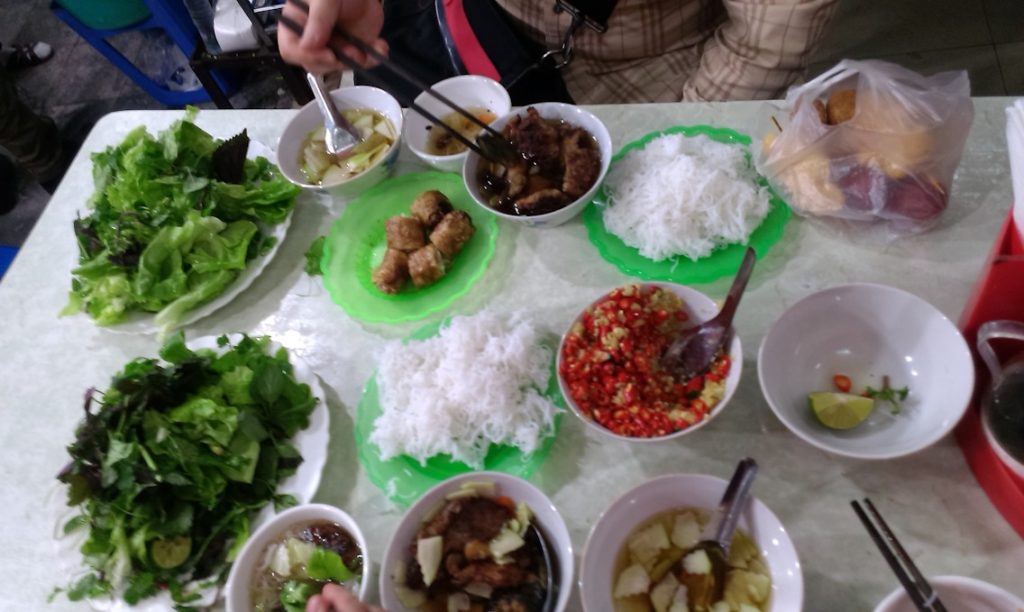
Tell them the prices are higher than on the menu (state the correct prices for all items that you remember the price for) and insist on them giving you the correct bill. Ask for the menu back if necessary to see the prices (bear in mind they might have an overpriced menu exactly for this situation – if this happens, call them out on it). This can get heated but stand your ground – I had a similar situation in Sri Lanka and they eventually charged the right amount after feigning innocence for a while. As an ultimatum, threatening to walk out without paying anything unless they give you the right bill may work – I expect I’ll be testing this theory sometime!
As an extra, warn any other customers about their nefarious practices on your way out. The other customers deserve to know and it’s an easy way to stick it to the owners. Win win.
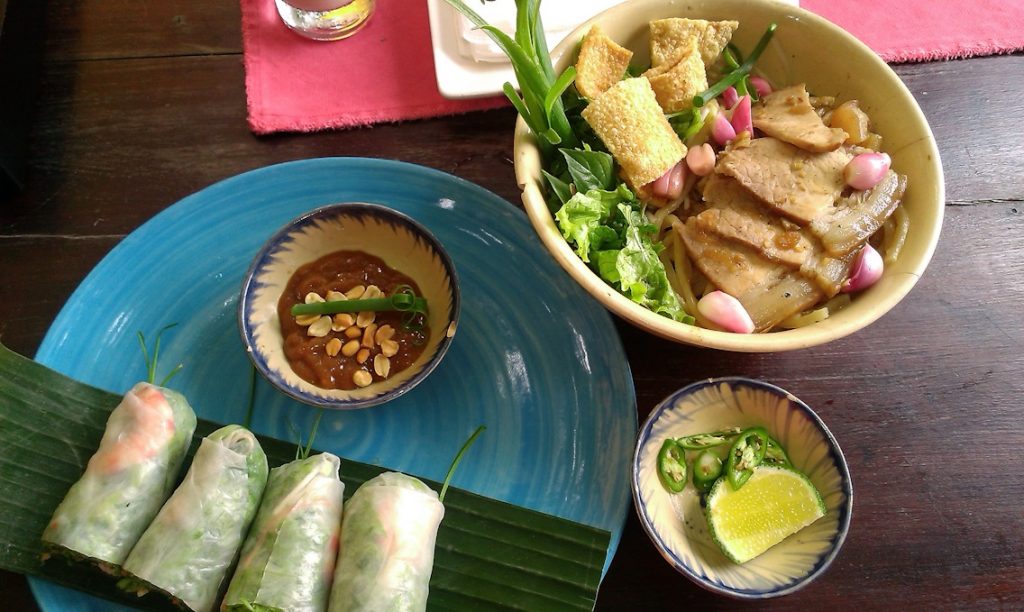
7. The photo opportunity
At some point while exploring, you may be asked by a local if you want to take a photo either of them or yourself carrying a traditional Vietnamese bamboo shoulder pole. They might say it’s free when encouraging you to take the photo, but they’ll soon change their minds afterwards!
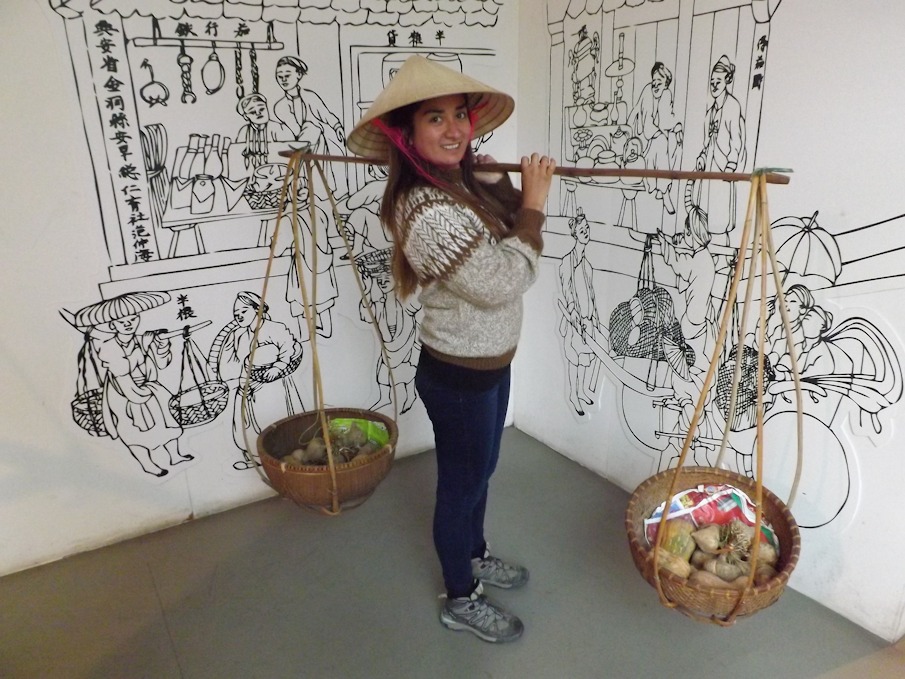
Mostly around the old town of Hoi An, though I’ve seen it in Hanoi as well.
Just saying no should be enough. There’s a chance they try and put the shoulder pole on you – don’t let them.
8. The overly friendly girl(s)
Guys, use your brain. If an unknown woman approaches you on the street and flirtatiously grabs your arm/other body parts, it’s very unlikely to mean that she has a high opinion of you. She might be trying to sell you something, or she might be trying to pick your pockets. The dong she wants isn’t in your pants.

Things like this don’t only happen on the street. When I was paying a bill in a local restaurant, a waitress suddenly stared at me like she’d been hypnotised and declared “your eyes are so beautiful”. As much as I’d like to think she was hypnotised by my facial features, I’m pretty sure the waitress was thinking about dong, I mean a tip (ok – no more of these).
This is another one that can happen pretty much anywhere in the country.
If you get caught in this situation, keep your hands on your pockets, decline whatever is suggested and walk away.
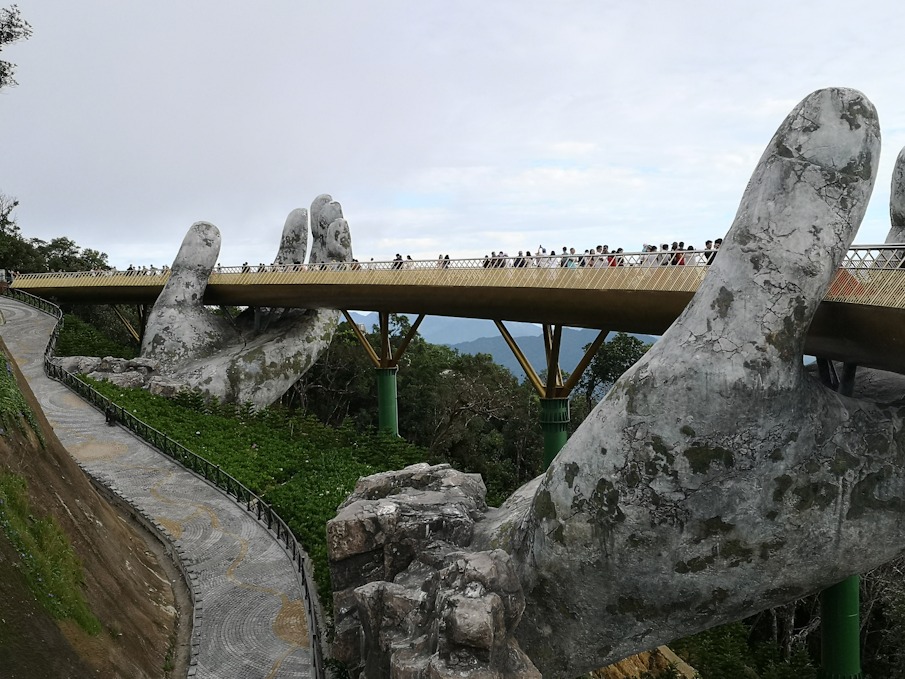
9. The motorbike salesmen
Not actual motorbike sellers, but guys driving around the streets at night on the lookout for foreigners to bother, especially solo male travellers (lucky me), with offers of drugs and/or prostitutes.
As a good boy who’s never done anything wrong in his life, I’ve always declined (at least one of these statements is true). However, I understand that the drugs are usually fake and the prostitutes do not look as advertised (the motorbike pimp will kindly flash photos in your face without being asked to). Also, both drugs and prostitution are illegal in Vietnam – penalties for the former can be deadly.

I mostly received offers in Hanoi, but you’re likely to be approached in any tourist area where there’s nightlife.
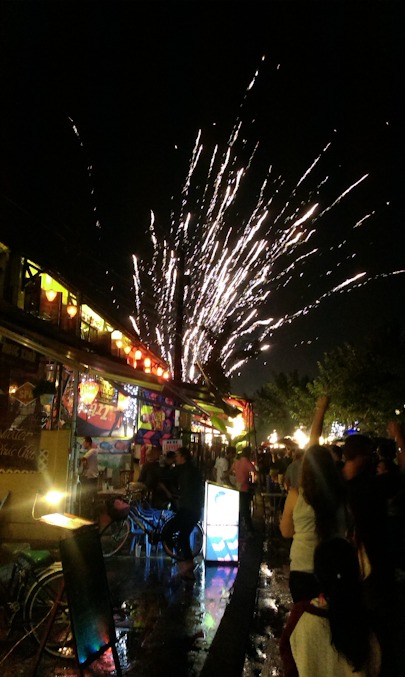
Another instance where you just have to say no and they can’t do anything except be annoying and keep asking until they give up.
10. The imitators and false advertising

A common occurrence with travel companies in Vietnam. Whenever a travel company earns a good reputation, other businesses will open up with similar names and logos, hoping to cash in on unwary tourists. Despite similarities in branding, the imitation will not extend to the quality of service.
The same companies will often offer tours or transport services that do not deliver what they promise. When a sleeper bus is advertised as having onboard toilets and Wi-Fi, it’s not very nice to find out at the start of your 10 hour bus trip from Hoi An to Phong Nha that neither exist.
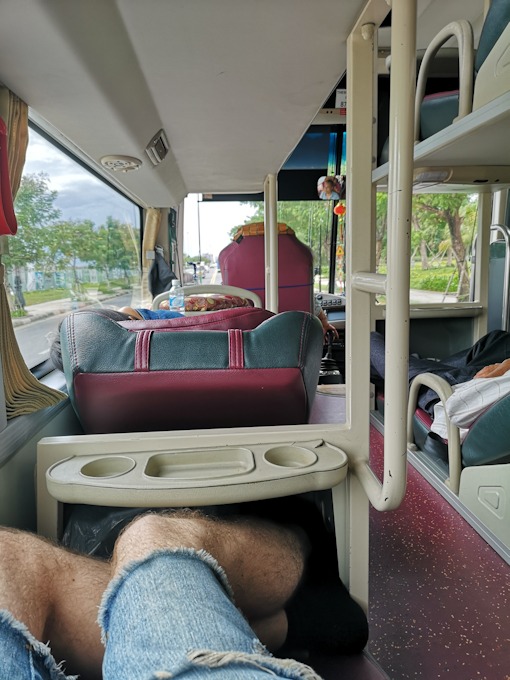
At tour agencies, both online and in physical locations.
Google the companies and check online reviews – there is a lot of information online. Also, if an employee at the tour agency tells you the company with negative/mixed reviews has just got nice new buses, don’t take their unscrupulous word for it.
A few thoughts
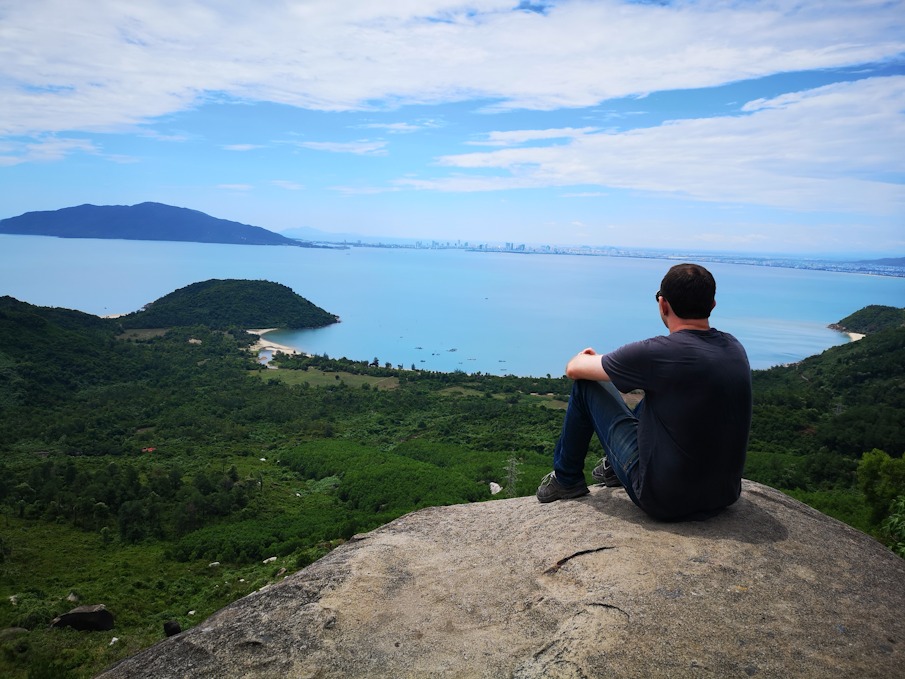
As much as I’ve (half-jokingly) moaned throughout this post, remember that a lot of people around the world cannot afford to travel and that’s true for many in Vietnam. Imagine never having the money to leave your country but seeing thousands of people from the other side of the world come and visit yours, some of whom will be visiting as part of a backpacking trip covering multiple countries and continents. I don’t have any problem paying a bit more than a local, what annoys me is the dishonesty and being treated like an idiot. Don’t change the taxi price on Grab from 50,000 to 500,000 on my phone while I’m looking, don’t pretend to be interested in talking to me when you only want my money – it’s just insulting and disrespectful. When this sort of thing is constantly happening, it becomes extremely frustrating.
Ultimately, a good number of the people that have tried to rip me off will have never left Vietnam due to financial restrictions. I left the UK in October 2018 and have been travelling/working remotely ever since while going from country to country (at least until COVID hit). I’m in a good position and part of the reason for that is simply down to the wealth of opportunities available in my home country.
View this post on Instagram Until next time, Vietnam. A post shared by James Crescenzo (@backpackandwork) on Dec 24, 2019 at 7:43am PST
Finally, is it worth visiting Vietnam with these issues?
Yes, absolutely. The country is full of things to see and do and, frankly, you will face tricks like these when travelling to just about any developing country. There are plenty of amazing experiences to be had in Vietnam but nothing is perfect. These issues, while frustrating, are a part of travelling and some of the experiences can be funny to look back on. Along with the photos that are loosely scam related, I’ve scattered a few nicer photos from my trips to Vietnam around this post and this is just scratching the surface of what the country has to offer.
You could probably avoid all or most of these scams/rips offs by booking a controlled, all-inclusive tour around the country but I can’t imagine that being as enjoyable and, in all likelihood, the fancy tour package will cost a lot more than what the local swindlers try and get from you.
Subscribe below
Reader interactions.
[…] or ripped off. There are so many petty scams aimed at foreigners in Vietnam, that I decided to write a separate post covering some of the common scams and how to avoid […]
Leave a Reply Cancel reply
Your email address will not be published. Required fields are marked *
This site uses Akismet to reduce spam. Learn how your comment data is processed .

Is Hanoi Safe for Tourists? 5 Things to Consider
IS HANOI SAFE FOR TOURISTS?
You’ve come to the right place — as we have traveled around Vietnam since 2015!
Are you excited about your upcoming trip to Hanoi, Vietnam, but wondering, “Is Hanoi safe?” Don’t worry, we’ve got you covered. In this guide, we’ll cover everything you need to know about staying safe in Hanoi, including:
- Crime rates
- Traffic safety
- Health and hygiene
- Political situation
- Cultural etiquette
We understand that safety is a top priority for travelers, and our goal is to equip you with all the information you need to have a safe and enjoyable trip to Hanoi. So, let’s dive in and learn more about this beautiful city and answer the question “Is Hanoi safe?”
1. Exploring Crime Rates: Is Hanoi Safe for Visitors?
Considering the low crime rates and friendly atmosphere, many visitors find themselves reassured when asking, ‘Is Hanoi safe?’
Hanoi is considered a relatively safe city compared to other major cities in the world. However, tourists should still be aware of the common types of crimes that occur in the city, such as pickpocketing, bag snatching, and scams. These crimes are more likely to occur in crowded tourist areas like the Old Quarter, Hoan Kiem Lake, and the Night Market.
Here are some practical tips to keep in mind to avoid becoming a victim of crime in Hanoi:
- Keep your valuables (passport, money, phone, etc.) close to your body and out of sight.
- Avoid carrying a lot of cash with you and only withdraw money from ATMs located inside banks or shopping centers.
- Be cautious of people who approach you on the street, especially if they seem overly friendly or persistent.
- Use a money belt or hidden pouch to keep your belongings safe while exploring the city.
- Only use reputable taxi or ride-sharing services, and always confirm the price before getting in.
- Be wary of strangers offering free or discounted tours, as they can often be a setup for a scam.
According to the 2023 Numbeo Crime Index , Vietnam ranked 80th out of 142 countries surveyed.
On the bright side, Hanoi has a safety index score of 62.84 . This is slightly higher than Ho Chi Minh City with a safety index score of 47.49. So, while crime rates in Hanoi are relatively low, it’s still important to take precautions to stay safe while exploring the city.
Emergency Contacts for Travelers in Vietnam
Ensuring the safety of visitors under unforeseen circumstances is paramount. Good preparation and acquiring useful travel information before embarking on a trip to Vietnam can make a significant difference.
Key Dialing Information:
- Vietnam Country Code: +84
- International Call Prefix: 00
- Trunk Prefix: 0
- Hanoi area code: 4
Essential Emergency Phone Numbers:
- Police: 113
- Fire Department: 114
- Ambulance – First Aid: 115
Additional Useful Numbers:
- Weather Forecast: 1080
- Domestic Long Distance Telephone Service: 101
- International Telephone Service: 110
- General Information Service: 1080
- Law Consultancy Service: 1088
- Phone Number Enquiries: 116
How to Dial:
- From a Telephone: Dial the emergency number directly without adding any area code.
- From a Mobile: Add your current area code before the emergency number. For example, if you are in Hanoi and want to call 113, dial 04-113.
2. Navigating Hanoi’s Streets: Is Hanoi Safe in Terms of Traffic?
Navigating the bustling streets of Hanoi can be a thrilling experience, but it’s essential to exercise caution and adhere to traffic rules to ensure your safety. Therefore, it’s common for travelers to inquire, ‘Is Hanoi safe when it comes to traffic?
Traffic in Hanoi can be overwhelming for tourists, especially those coming from countries with stricter traffic regulations. The city’s streets are constantly buzzing with a sea of motorbikes, cars, and bicycles, and crossing the street can feel like a daunting task.

However, with a few tips and some common sense, tourists can navigate the city’s traffic safely.
When it comes to crossing the street in Hanoi, the key is to be patient and confident. Here are some tips for crossing the street safely:
- Wait for a gap in traffic, then walk at a steady pace across the street without stopping or changing your pace.
- Don’t make any sudden movements or changes in direction, as this can confuse drivers and increase the risk of an accident.
- Look both ways before crossing, even on one-way streets, as motorbikes and bicycles often go against traffic flow.
- If you’re still feeling unsure, follow the lead of locals and cross the street with them.
It’s also important to be aware of the laws regarding motorbikes and bicycles in Hanoi. Motorbikes and bicycles are a popular mode of transportation in the city, but they can also be dangerous if not used properly. Here are some laws to keep in mind:
- It’s mandatory to wear a helmet when riding a motorbike or bicycle in Hanoi.
- It’s illegal to ride a motorbike or bicycle on the sidewalk or in pedestrian-only areas.
- Motorbikes and bicycles must have a bell, lights, and reflectors for nighttime riding.
If you’re planning on renting a motorbike or bicycle in Hanoi, it’s important to take certain precautions to ensure your safety:
- Only rent from reputable rental companies and check the condition of the vehicle before renting.
- Always wear a helmet and obey traffic laws.
- Be aware of your surroundings and don’t take unnecessary risks.
3. Prioritizing Health and Hygiene: Is Hanoi Safe for Travelers’ Well-being?
Potential health risks in hanoi.
Before traveling to Hanoi, it is advisable to research potential health risks, such as air pollution or food safety concerns, to make an informed decision about your well-being. So, the question ‘Is Hanoi safe in terms of health?’ becomes crucial for many travelers.
Food and Water Safety
While street food is one of the most popular culinary experiences in Hanoi, it can also pose a risk to your health. It’s essential to ensure that the food you’re eating is fresh and properly cooked. Avoid food that has been sitting out for an extended period and opt for places that are busy and have a high turnover of customers.

Drinking tap water in Hanoi is not recommended. Instead, always drink bottled water, and make sure that the seal is intact before opening it. If you’re unsure about the quality of the water, it’s best to boil it before use.
Air Pollution
Hanoi is notorious for its air pollution, which can be harmful to your respiratory system. The high levels of pollution are caused by traffic, construction, and industry. If you’re sensitive to air pollution, consider wearing a mask or limiting your time outside on days with particularly bad air quality.
Common Illnesses
Hanoi is a tropical destination, and as such, there are several diseases that you should be aware of. Dengue fever and malaria are both mosquito-borne illnesses that are prevalent in Hanoi. It’s essential to take measures to prevent mosquito bites, such as wearing long-sleeved shirts and pants and using insect repellent.
Tips for Staying Healthy in Hanoi
Food and water.
To stay healthy in Hanoi, it’s crucial to pay attention to what you’re eating and drinking. Here are some tips:
- Stick to bottled water and avoid ice cubes, which may have been made with tap water.
- Wash your hands frequently, especially before eating.
- Be cautious of street food vendors, and make sure that the food is fresh and properly cooked before eating.
- Avoid raw or undercooked food, including fruits and vegetables, which may have been washed with contaminated water.
To reduce your exposure to air pollution, consider taking these steps:
- Wear a mask when outside, especially on days with high levels of pollution.
- Stay inside during times of heavy traffic or construction.
- Use an air purifier in your hotel room or rental.
General Health
To stay healthy while traveling in Hanoi, consider these tips:
- Get vaccinated before your trip, especially if you’re visiting rural areas.
- Use sunscreen and stay hydrated to avoid heat stroke and dehydration.
- Carry a basic medical kit with you, including any necessary prescription medications.
- Take breaks often and rest when needed to avoid exhaustion.
Healthcare System in Hanoi
Hanoi has a growing healthcare system, with both public and private hospitals and clinics. However, the quality of care can vary greatly, and language barriers may pose a challenge for non-Vietnamese speakers. It’s essential to have travel insurance that covers medical care in case of an emergency.
If you need medical attention while in Hanoi, consider visiting one of the private hospitals, such as Hanoi French Hospital or Family Medical Practice. These hospitals have English-speaking staff and offer a higher standard of care than many public hospitals. In case of an emergency, call 112 for an ambulance.
4. Political Stability and Safety: Is Hanoi Safe Amidst the Current Political Landscape?
The political situation in Hanoi remains stable, providing a safe environment for both residents and visitors. When considering a trip to Vietnam’s capital, it’s natural to wonder, ‘Is Hanoi safe in terms of the political climate?
Current Political Situation in Hanoi
Hanoi is the capital of Vietnam, which is a socialist republic governed by the Communist Party of Vietnam. The government has tight control over the media and the internet, and there are strict laws against political dissent.
While protests are rare in Hanoi, they can occur, and it’s important for tourists to be aware of their surroundings and stay away from any demonstrations or political gatherings.
Travel Advisories for Hanoi
Many countries have travel advisories in place for Hanoi, which are designed to keep citizens informed about potential risks. The U.S. State Department, for example, has a Level 1 Travel Advisory for Vietnam, which means visitors should exercise normal precautions. Other countries, like Australia and Canada, also have similar advisories in place.
It’s important to check for travel advisories before your trip and stay up to date with any changes. You can usually find the latest travel advisories on your country’s government website or by contacting the embassy in Vietnam.
Tips for Staying Safe During Emergencies
While emergencies and political unrest are rare in Hanoi, it’s still important to be prepared in case something does happen. Here are some tips for staying safe:
- Stay informed: Keep an eye on local news and follow the advice of local authorities. If there’s an emergency or political unrest, they’ll likely issue instructions on what to do.
- Avoid political gatherings: As mentioned earlier, protests and political gatherings can occur in Hanoi. It’s best to avoid these areas and not engage in any political discussions or activities.
- Be prepared to leave: If there’s a serious emergency, like a natural disaster or civil unrest, you may need to leave Hanoi quickly. Make sure you have a plan in place and know how to get to the airport or border crossing.
- Stay in touch: Make sure someone knows where you are and how to contact you in case of an emergency. Keep your phone charged and on you at all times.
5. Cultural Etiquette and Safety: Is Hanoi a Safe Destination for Cultural Interaction?
Respecting the cultural norms and etiquette in Hanoi is essential for a harmonious experience. Understanding the local customs and traditions ensures a safe and enriching journey. So, when immersing yourself in the vibrant culture of Hanoi, it’s important to ask, ‘Is Hanoi safe in terms of cultural etiquette?
Hanoi has a unique culture and rich history that is worth exploring. However, as a tourist in Hanoi, it’s important to be respectful of the local culture and customs. Here are some tips to help you navigate the cultural etiquette in Hanoi:
Understanding the Culture
Vietnamese culture is heavily influenced by Confucianism, which emphasizes respect for authority, family values, and social harmony. In Hanoi, family and community are at the center of daily life. Therefore, it’s important to be mindful of the local customs and values.
Common Customs and Etiquette
- Dress appropriately: When visiting temples, pagodas, or government buildings, it’s important to dress modestly and remove your shoes. It’s also important to cover your shoulders and knees to show respect.
- Use your right hand: In Vietnam, it’s considered impolite to use your left hand for eating, shaking hands, or passing items. Always use your right hand instead.
- Take off your hat: When entering someone’s home or a religious building, it’s customary to remove your hat.
- Don’t point: Pointing with your finger is considered rude in Vietnamese culture. Instead, use your chin or your whole hand to indicate something.
- Table manners: Wait for the host to invite you to start eating before you begin. It’s polite to try a little bit of everything and to leave some food on your plate to show that you are full.
- Greetings: Greet people with a smile and a nod. Address people by their titles, such as “anh” for older brother or “chi” for older sister. In formal settings, use the appropriate titles like “thua ba” (Madam) or “thua ong” (Sir).
Communicating Effectively with Locals
- Learn some basic Vietnamese phrases: Learning a few basic phrases in Vietnamese can go a long way in building rapport with locals.
- Be respectful: When interacting with locals, it’s important to be polite and respectful. Avoid confrontational or aggressive behavior.
- Don’t haggle too much: While bargaining is common in Vietnam, haggling too much can be seen as disrespectful.
- Smile: A smile can be a universal gesture of goodwill and can help you connect with locals.

Most Frequently Asked Questions
What are the common safety issues for tourists in hanoi.
Hanoi is generally safe for tourists, but like any other city, it does have its share of petty crime such as pickpocketing and bag snatching, particularly in crowded areas like markets or public transport. It’s important to be aware of your belongings and surroundings at all times. Also, traffic can be intense, so be careful when crossing the streets. Scams targeting tourists can occur, so always verify prices before purchasing goods or services.
Is Hanoi safe for solo travelers?
Hanoi is considered safe for solo travelers, both men and women. Vietnamese people are generally friendly and helpful. However, it’s recommended to stay alert, especially at night, in less crowded areas, and while using public transport. As a solo traveler, it’s advisable to keep your family or friends updated about your whereabouts.
Is Hanoi safe when it comes to food and water?
Hanoi’s culinary scene is diverse and generally safe. Street food is a staple of local culture and it’s usually prepared fresh. However, those with sensitive stomachs may want to gradually adjust to local cuisine. It’s advisable to drink bottled water as tap water in Hanoi isn’t typically safe to drink directly due to varying water purification standards.
Is Hanoi safe for LGBTQ+ travelers?
Vietnam is one of the more progressive countries in Southeast Asia when it comes to LGBTQ+ rights. Hanoi, as its capital, is generally accepting and safe for LGBTQ+ travelers. There are several gay-friendly venues throughout the city, and public attitudes towards the LGBTQ+ community are largely positive. However, as with any location, it’s important to respect local customs and exercise common sense regarding public displays of affection.
Are there any specific safety tips for families traveling with children in Hanoi?
Hanoi is generally safe for families traveling with children. Attractions like Hoan Kiem Lake, the Hanoi Old Quarter, and various museums make it an exciting place for kids. However, due to the hectic traffic, it’s important to hold onto your children’s hands while crossing the street. Also, keep an eye on your belongings in crowded areas to avoid pickpocketing. Lastly, ensure any food consumed by your children is properly cooked to avoid potential foodborne illnesses.
Is Hanoi safe at night?
Yes, Hanoi is generally safe at night. The city is lively, with many restaurants, bars, and street food vendors open late. However, it’s always recommended to be aware of your surroundings, especially in less crowded and poorly lit areas. Stick to well-lit and populated places whenever possible and avoid flashing valuable items to prevent attracting unwanted attention.
Is there a drug problem in Hanoi?
Drug usage is not a major issue in Hanoi compared to other global cities. However, like in any city, it does exist. The Vietnamese government has strict laws against drug use and trafficking, with severe penalties including death for serious offenses. As a visitor, it’s best to steer clear of any drug-related activities for your safety and to comply with local laws.
Is Hanoi safe to walk around at night?
Generally, Hanoi is safe to walk around at night. The city is often bustling with people, making most neighborhoods safe for a stroll. However, like any city, some areas may be safer than others. It’s always a good idea to research your route ahead of time, stay in well-lit areas, and avoid isolated places.
What should I be careful of in Hanoi?
In Hanoi, it’s important to be cautious of traffic, as the streets are often busy with cars and motorbikes. Pedestrian crossings are not always respected, so be careful when crossing the road. Be wary of pickpockets in crowded areas like markets or public buses. It’s also wise to be cautious of overpricing and scams targeted at tourists, so always check prices and negotiate before making a purchase.
Where should I avoid in Hanoi?
Hanoi is generally safe, and there aren’t specific areas that need to be completely avoided. However, it’s always a good idea to be more cautious in crowded areas, like markets, where pickpocketing is more common. At night, avoid less populated and poorly lit areas. Always research and ask locals about the safety of the area you plan to visit.
Is Hanoi safe for female travelers?
Yes, Hanoi is generally considered safe for female travelers. Vietnamese culture is respectful, and instances of harassment are typically rare. However, it’s always important to take standard safety precautions, such as not walking alone late at night in less crowded areas, keeping an eye on your belongings, and avoiding unwanted attention by dressing modestly.
So, is Hanoi safe?
Hanoi is generally a safe destination for tourists. However, as with any travel destination, it’s important to be aware of potential risks and take necessary precautions to ensure a safe and enjoyable trip.
By following the tips outlined in this article, tourists can stay safe and have a positive cultural experience while exploring the vibrant city of Hanoi. Remember to stay informed, be respectful of local customs, and most importantly, have fun!
Similar Posts

Top 9 Best Hotels near Hoan Kiem Lake, Hanoi
Disclaimer: This page may contain affiliate links. More info in our Privacy Policy LOOKING FOR BEST HOTELS NEAR HOAN KIEM LAKE, HANOI? You’ve come to the right place — as we have traveled around Vietnam since 2015! Have you heard about the luminous allure of Hoan Kiem Lake amid Hanoi’s energetic cityscape? That’s right! Tucked…

Traveling from Hanoi to Bangkok: Your Ultimate Guide 2024
Disclaimer: This page may contain affiliate links. More info in our Privacy Policy PLANNING A TRIP FROM HANOI TO BANGKOK? You’ve come to the right place — as we have traveled around Vietnam and Thailand since 2015! Ready for a journey of a lifetime? From the bustling city of Hanoi to the vibrant metropolis of…

Getting From Hanoi to Lan Ha Bay: Complete Travel Guide 2024
Disclaimer: This page may contain affiliate links. More info in our Privacy Policy PLANNING A TRIP FROM HANOI TO LAN HA BAY? One minute you’re amidst the lively streets of Hanoi. Next, you’re immersed in the calm, azure waters of Lan Ha Bay. Intriguing, isn’t it? We’re here to help you navigate this journey. We’ve…

Hanoi to Luang Prabang: 3 Ways to Travel in 2024
Disclaimer: This page may contain affiliate links. More info in our Privacy Policy PLANNING A TRIP FROM HANOI TO LUANG PRABANG? You’ve come to the right place — as we have traveled around Vietnam and Thailand since 2015! Hello, adventurous spirit! Have you ever wondered about the journey from Hanoi, the bustling heart of Vietnam,…

Hanoi To Sapa: 4 Easy Ways To Travel By Train, Bus, Car, Group Tour
Disclaimer: This page may contain affiliate links. More info in our Privacy Policy PLANNING A TRIP FROM HANOI TO SAPA? You’ve come to the right place — as we have traveled around Vietnam since 2015! Embark on the captivating journey from Hanoi to Sapa, a sought-after destination for adventurers yearning for a remarkable escapade amid…

Round Trip: Hanoi Airport to Halong Bay – 3 Convenient Travel Options
Disclaimer: This page may contain affiliate links. More info in our Privacy Policy PLANNING A TRIP FROM HANOI AIRPORT TO HALONG BAY? You’ve come to the right place — as we have traveled around Vietnam since 2015! Hey there, traveler! Ready to explore the stunning Halong Bay? But wait, you’re at Hanoi Airport, right? No…

- Vietnam Tours
- Cambodia Tours
- Thailand Tours
- Myanmar Tours
- Multi-Country
- Authentic Experience Travel
- Highlight Tours
- Healing and Wellness
- Short Vacations
- MICE and Incentive
- Family Vacations
- Homestay Tours
- Expat Weekend
- Honeymoon Trips
- Beach Holidays
- Adventure Journeys
- Luxury Tours
- Gay Travel Tours
- Halong bay Cruises
- Mekong Cruises
- Customize Tour
- Our Activities
8 Common Travel Scams In Vietnam And How To Advoid
No one want to encounter travel scams during their vacation, but it happens around all tourists when they visit a foreign country. Instead of worrying about the bad situations, you can actually prepare yourself for the frauds on the go.
If Vietnam is the next destination on your bucket list, the following information about common travel scams in Vietnam will help your excursion much more pleasant.
Frauded Currency Exchange
The scenario.
As most of the services in Vietnam accept Vietnam dong only, money switcheroo can prey on tourists who are not aware of the local exchange rate. They can be in the airport, at the popular destination, boasting that they do not take a commission.
In fact, a commission for their work is not that matter. But I have to warn you about 2 things: how much commision they take from you, it should be reasonable (that means you have to check with trusted source about the currency like this ), 2nd is the currency they give back to you. The currency can be counterfeit or an older version of the notes, which is no longer used in Vietnam ( Typical Features of Vietnam banknotes ).
How To Avoid It
The safest choice to exchange money to head to your bank. Although the rate is not the best, you can be certain about the quality of the cash.
The price of buying and selling foreign currencies at banks in Vietnam is often competitive and different between each other. Some banks have services to exchange foreign currency for your reference such as: Agribank, Vietcombank, Techcombank, BIDV, Maritime Bank, Vietinbank, VIB, VP Bank, MB Bank, ABC … Before trading, you should access the website of each bank to study and consider the exchange rate.
However, exchanging money at banks may require lots of papers and many different procedures.
If you have international debit or credit cards, you can use them in Vietnam too. It will save you from currency exchanging.
Always aware of the local exchange rate
Transporting Swindle
Frauds in transportation are the most to blame for no return tourists in Vietnam. They are so common that you may not know if you are swindled or not.
Scenario #1
The first case is with the cabs. Some of them are not metered even though their appearance looks like they are. A more sophisticated trick is the driver tells you the counting device is broken (while it is just turned off). Even when you get on a metered taxi, the driver can still trick you by going a longer route to increase the fee.
You had better not to enter a cab by waving hand on the street. Some drivers may offer discounts for your ride but just ignore them. If you know some Vietnamese, you can make a direct phone call to the prestigious taxi groups to get a cab. Some popular names such as Vinasun, Mai Linh can be found on TripAdvisor. If you want to know the rate in advance, you can book a taxi via mobile phone apps, for example: Grab, Be, Go-Viet.
Scenario #2
In big destinations for tourism like Hanoi, Danang, Hoi An, Saigon, you may see a lot of cyclos and motorcycle-taxis (also known as Xe Om). It’s is such an authentic way to explore narrow alleys on these vehicles. But, the thing is, you are likely to be ripped off once you take a city tour with those of transports.
If you really want to experience a ride on a motorcycle or get the feeling on a cyclo, you should negotiate the rate in advance. A customized day tour from an excellent travel company is also a great option as you will receive the price quote beforehand.
Overcharging Street Vendors
Vietnam is the paradise of delicious foods. So it’s not easy to resist the temptation from the street food. Even the fruit stalls can make your mouth-watering with a variety of tropical picks. Unfortunately, many of them are overcharged. As they know you are new to Vietnamese culture, they can double or even triple the price for foreigners.
First, you should look for famous restaurants with excellent reviews. It’s always the best to hang out in places where the locals usually go to. You can know if a food provider is great by looking at the number of customers. It will take a little observation to avoid overcharging. If you can notice how much native residents pay for the same meal as you, you will never be ripped off.
Accommodation Scams
You find a great hotel on Google, but when you arrive, it turns out to be a slump in a remote area. If you have transferred the renting fee, they say they will not return or compensate because images are just for advertisement. Another scam is in the bill when you check out, the hotel manager adds up a lot of things you don’t use. While they insist you do it, you have no evidence to prove the opposite.
You should go to several travel forums to collect the authentic reviews before your trip and remember to double check the information. Once you select a hotel, try to contact them to ask for the terms and conditions. You will know it is a good place to stay when all the policies are clear and public.
Pickpocketing In Crowded Places
Not only in Vietnam but everywhere on Earth can you meet petty thieves. They often appear in crowded areas like in a festival, on public transport, in a bus station. The pickpocketer may ask for your help to withdraw your attention and take your wallet away.
Always keep an eye on your belongings. Also, you shouldn’t put all the money in one place. If you just have a day tour, consider leaving your ID card, passport and other valuable things in the hotel.
Illegal Ticket Fee
In the entertainment complex like The Sun World Ba Na Hill in Danang, Vinpearl Land Nha Trang, you need to buy a ticket to be able to get inside. During peak season, it can be super populous in front of the ticket box, so bad guys often hold a bunch of tickets, saying that they have other things to do and want to pass the tickets for you. But, chances are that you may get the counterfeit stuff at a higher price. It ends up spending money for a quack doctor.
In the 4.0 age, you can find almost everything on the internet. The ticket price is not an exception. The official website of some recreational centers also allow you to make a purchase in advance, so you don’t have to wait in a long queue for buying tickets.
Unofficial Tour Guides
This often happens when you travel on your own to historical and cultural sites such as The Temple Of Literature in Hanoi, The Royal Palace in Hue. As these places require much local understanding to comprehend the utmost beauty, there are many locals waiting there, pretending to be knowledgeable and helpful, trying to be your personal guide. And then, they ask for an exorbitant price.
In some places, the authority offer tour guides for large groups of travelers at a super affordable price. You should look for the information center once you reach the destination. If you want a more personalized experience, you can book a day tour with a reliable travel agent to explore the rich history and culture of Vietnam.
Fake Beggars
When you are leisurely walking down the street, you can come across a poor man or even handicapped. His face is smudgy, the clothes are torn away. So weak and vulnerable. He will use an old conical hat to collect the money, and you already put your hand in the pocket. But, NO. He may not be as penniless as you think. In Vietnam, there are some groups of professional beggars.
Wait, what? Professional beggars?
Yup, it is. In popular tourist attraction, jobless people dress like impoverished or even disabled to ask for money. They even use children in this dirty business. So be careful when you are about to giving money to a stranger.
First, avoid eye contacting with them. They are great actors, so their teary eyes may make you relent on handing them some pennies. Just ignore them and enjoy your trip. When they spot other preys, they will give up on you.
If you really want to help the people in need, you can make a donation for trustworthy organizations like the Red Cross Association.
Read More:
– 8 Things Not To Do In Vietnam
Related posts:
- What Are the Most Important Travel Tips Vietnam And Cambodia?
- 10 Typical Travel Scams in Cambodia and How to avoid
- Know before you go: Common diseases and health tips for tourists to Vietnam
- How To Know The Travel Tips For Vietnam?
Great tips, having visited Chetnam numerous times, some things I never knew about Chopsticks getting left in bowl ?
Cancel reply
Save my name, email, and website in this browser for the next time I comment.
Travel Guide
5 lovely cafe shops in bangkok, thailand, nice suggestions for vietnam cambodia itinerary 7 days, culinary quintessence of the vietnamese traditional food: fried spring rolls, getting around laos by train, things you shouldn’t ignore to fully enjoy danang international fireworks festival (diff 2023), popular tours.
- Hanoi Tours
- Halong bay Tours
- Hoi An Tours
- Da Nang Tours
- Can Tho Tours
- Ho Chi Minh Tours
- Mekong delta Tours
- Siem Reap Tours
- Phnom Penh Tours
- Luang Prabang Tours
- Vientiane Tours
- Bangkok Tours
- Chiang Rai Tours
Travel Styles
- Highlights Tours
- Beach & Relaxation
Travel Sense Asia™
- Meet our team
- Company Profile
How to avoid scams in Hanoi
Visiting a new city or country for the first time can be daunting, especially as we become more aware of people being a victim of a crime or scam.
Vietnam as a country is particularly safe to travel around, however like any country there are certain things to be aware of.
Hanoi has very low crime average although due to the high volume of tourists traveling through the city, it does unfortunately have a reputation for tourists falling victims to scams.
Most issues in Hanoi revolve around transport scams and we have put together a list of ways you can ensure you stay safe and enjoy your visit the wonderful capital city of Hanoi.
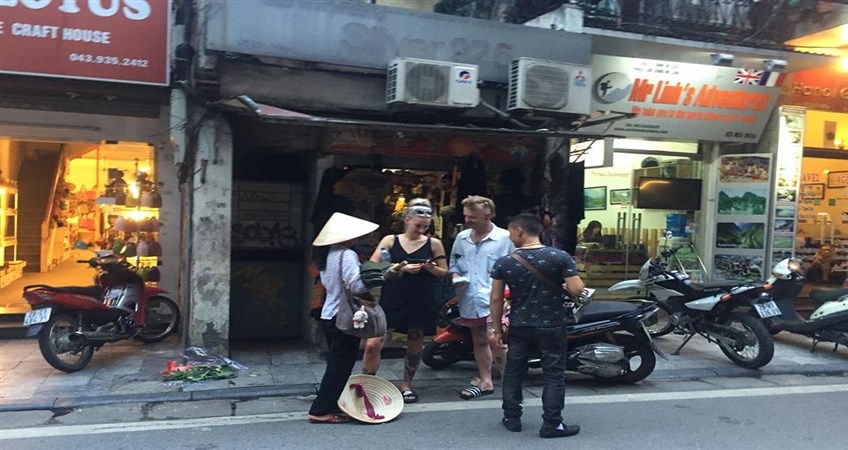
1. Taxi Scams - The best way to avoid being overcharged by a taxi driver is to ask your tour operator to book your transport from the airport in advance. They will use only reputable drivers. If you are using a taxi within the city, as a local hotel concierge to book transport for you or better still use the local bus transport to get you around the city. Be smart and book ahead, do your research on reputable taxi companies before you leave and if in doubt ask someone.
2. Hotel Room Costs - Unfortunately some hotels will take advantage of tourists looking to change some local currency. Rates are typically quoted in dollars but when it comes to settling your bill the exchange rate is increased and you will be left paying a lot more than necessary. Always ask to be quoted in the currency you will be expected to pay in and compare the rates prior to traveling. Always check your bill before paying too.
3. Tours - If you have not pre booked tours or excursions you can be over charged for arriving on the day to book your tour. Always use your Vietnam tour operator to manage any bookings and ask what the cost will be prior to conforming the booking, do your research online and see what other tourists paid. If you are unsure ask your hotel concierge to recommend tour guides in your area.
4. Avoid Theft - Although not common in Hanoi theft is still something to be aware of. Use a common sense approach when walking the city, especially in a busy area like the old quarter. Never show your expensive jewellery or watches, keep backpacks locked tight and always keep an eye on your bag and wallet when sitting at a restaurant, cafe or street food vendor. If you do have something stolen report it to the local police or ask your hotel concierge or tour operator for advice. Be smart and be savvy.
Hanoi is a safe and friendly city to explore and being aware of the scams you might be faced with will help to ensure you have a fabulous time. Be smart and use your common sense and get ready to be amazed by the capital city of Vietnam.
- Best time to visit Hanoi
- The best way to explore Hanoi
- How to avoid scams in Hanoi
- Traditional water puppet show in Hanoi
- The best nightlife in Hanoi
- Top 10 things to do in Hanoi
- 10 best places to visit in Hanoi
Tours in Hanoi
- VF01: Vietnam Classic Family Tour - 12 days from HCMC
- VF02: Vietnam Sun & Sea Holiday - 14 days from Hanoi
- VF03: Best Vietnam Tour for Family - 16 days from Hanoi
- VF04: Vietnam Family Adventure - 15 days from HCMC
- VF05: Amazing Vietnam Family Tour - 18 days from Hanoi
- VF06: Vietnam Family Holiday of a lifetime - 19 days from HCM
- VF07: Holiday Cambodia and Vietnam of a life time - 18 days
- VF08: Family Tour along the coast - 19 days from Hanoi
- VF09: Grand Vietnam Family Tour - 21 days from Hanoi
- VC10: Best Family Vietnam Tour - 15 days from Hanoi
- VT01: Vietnam Tour at a Glimpse - 10 days from Hanoi
- VT02: Vietnam Beach Holiday - 16 days from Hanoi
- VT03: Highlights of Vietnam Tour - 14 days from Hanoi
- VT04: Vietnam Heritage Tour - 15 days from Hanoi
- VT05: Vietnam Relaxation Tour - 15 days from Hanoi
- VT06: Vietnam Tour in your eyes - 11 days from HCMC
- VT07: Beautiful Vietnam Tour - 15 days from HCMC
- VT08: Vietnam Holiday By Train - 18 days from Hanoi
- VT09: Vietnam Culinary Discovery - 12 days from Hanoi
- VT10: Vietnam Classic Tour Package - 12 days from Hanoi
- VT11: The Best Tour of Vietnam - 15 days from Hanoi
- VT12: Amazing Vietnam Holiday - 18 days from Hanoi
- VT13: Romantic Vietnam Holiday - 16 days from Hanoi
- VT14: Vietnam Tour of Surprises - 19 days from Hanoi
- VT15: Vietnam Homestay Tour Experience - 16 days from Hanoi
- VT16: Vietnam Tour step back in time - 20 days from Hanoi
- VT17: Vietnam Culture Tour Experience - 16 days from Hanoi
- VT18: Vietnam Holiday all in one - 19 days from HCMC
- VT19: Highlights of The North Vietnam - 6 days from Hanoi
- VT21: Vietnam tour for Overseas Vietnamese - 11 days from Ho Chi Minh city
- VT20: Best North Vietnam photo tour 10 days from Hanoi
- VT22: Kong: Skull Island tour package - 10 days/ 9 nights from Hanoi
- VLT01: Vietnam Tour in Style - 12 days from HCM
- VLT02: Luxury Vietnam tour - 14 days from HN
- VLT03: Essential Vietnam Tour - 14 days from HN
- VLT04: Vietnam Luxury Tour - 16 days from HN
- VLT05: Majestic Vietnam Tour - 22 days from HN
- VLT 06: Majestic Vietnam Tour - 21 days from HCM
- VLT07: Vietnam Escape Tour - 12 days from HCM
- VLT08: Vietnam Escape Tour - 12 days from Hanoi
- VLT09: Vietnam along the coast - 19 days from HN
- VLT10: The Highlights of Vietnam - 21 days from HCM
- VLT11: Comfort Tour Vietnam - 12 days from HN
- VLT12: Sapa Tour with Victoria Train - 5 days
- VLT13: Hanoi - Halong - Hoi An Tour - 10 days
- VC01: Vietnam Cambodia Tour at a Glance - 12 days from Hanoi
- VC02: Essential Vietnam Cambodia Holiday - 14 days from Hanoi
- VC03: Beautiful Vietnam Cambodia Holiday - 16 days from Hanoi
- VC04: Vietnam and Cambodia Insight Holiday - 18 days from Hanoi
- VC05: Vietnam and Cambodia Heritages Holiday - 15 days from Hanoi
- VC06: Rivers and Beaches of Vietnam and Cambodia - 21 days
- VC07: Highlights of Vietnam and Cambodia - 16 days from HCMC
- VC08: Vietnam Cambodia Tour in your eyes - 14 days from HCMC
- VC09: The Best of Vietnam Cambodia Tour - 18 days from HCMC
- VF07: Essential Cambodia and Vietnam - 15 days from Siem Reap
- VC10: Fantastic Vietnam and Cambodia Holiday - 21 days from Hanoi
- VF10: Exploring Cambodia and Vietnam - 21 days from Siem Reap
- VC12: Memorable Vietnam Cambodia Holiday - 18 days
- VC13: Family Vacation to Vietnam and Cambodia - 19 days from HCMC
- VC14: Luxury Vietnam and Cambodia Holiday - 21 days from HCMC
- VC16: North Vietnam and Angkor Temples - 16 days from Hanoi
- VC17: Charming Vietnam Cambodia Holiday - 18 days from HCM City
- VC18: Exploring Vietnam and Cambodia - 23 days from HCMC
- VT19: Vietnam and Cambodia Highlights - 21 days from Hanoi
- VHT01: Vietnam Luxury Honeymoon - 11 days from HN
- VHT02: Vietnam Dream Honeymoon - 14 days from HCM
- VHT03: Romantic Vietnam Honeymoon - 15 days from HN
- VHT04: Grand Vietnam Honeymoon - 18 days from HN
- VHT05: Colorful Vietnam Honeymoon - 14 days from HCM
- BK 01: Hoi An Beach Getaway Tour - 4days / 3 nights
- AD01: Untouched North - 14 days / 13 nights
- AD02: Colors of Vietnam - 21 days from HN
- AD03: Vietnam Discovery - 19 days from HCM
- AD04: Fansipan Climbing Tour - 7 days / 6 nights
- AD05: Vietnam Travel by road - 19 days from HCM
- AD06: Exploring Vietnam Tour - 20 days from HCM
- AD07: Northeast Vietnam - 7 days / 6 nights
- AD08: Northwest Vietnam - 11 days / 10 nights
- AD09: Northeast Loop - 12 days / 11 nights
- AD10: Northwest Loop - 16 days / 15 nights
- HN01: Hanoi City Tour – Full Day
- HN03: Beautiful Perfume Pagoda Tour - Daily from Hanoi
- HN05: Highlights of Hanoi - Halong Cruise - 4 days / 3 nights
- HN06: Hanoi - Tam Coc - Halong Tour - 5 days / 4 nights
- HN07: Hanoi - Mai Chau - Tam Coc - Halong Tour - 6 days / 5 nights
- HN08: Highlights of Hanoi - Sapa - Halong - 7 days / 6 nights
- HN09: Halong Bay - Lan Ha Bay - Cat Ba Island - 2 days / 1 night
- HN10: Halong Bay - Lan Ha Bay - Cat Ba Island - 3 days / 2 nights
- HN11: Mai Chau Homestay Tour - 2 days / 1 night
- HN12: Mai Chau - Tam Coc Tour - 2 days / 1 night
- HN13: Moon Garden Homestay - 2 days / 1 night
- HN14: Moon Garden Homestay + Biking - 2 days / 1 night
- HN15: Moon Garden Homestay - 3 days / 2 nights
- HN16: Moon Garden Homestay - 4 days / 3 nights
- ST07: Exploring Sapa - 4 days / 5 nights
- ST08: Colorful Sapa Tour - 5 days / 6 nights
- ST09: Sapa Homestay Tour - 4 days / 5 nights
- ST10: Sapa Tour in Depth - 5 days / 6 nights
- ST11: The Best Sapa Tour - 5 days / 4 nights
- ST13: Coc Ly Market Tour - Depart Monday
- ST14: Xin Cheng Market Tour - Depart Tuesday
- ST15: Can Cau Market Tour - Depart Friday
- ST16: Bac Ha Market Tour - Depart Saturday
- ST17: Muong Hum Market Tour - Depart Saturday
- ST18: Cao Son Market Tour - Depart Tuesday
- ST19: Lung Khau Nhin Market - Wednesday
- ST20: Sapa Luxury Tour - 4 days / 3 nights
- FE01: Hanoi Arrival Package - 3 days / 2 nights
- FE03: Grand Vietnam Tour - 21 days from HCM
- FE04: Vietnam Tour in Depth - 18 days from Hanoi
- M9: Hanoi - Halong Bay - Cat Ba Island Muslim Tour - 6 days / 5 nights
- M10: Hanoi - Halong Bay Cruise Muslim Tour - 5 days / 4 nights
- M11: Hanoi - Halong - Ninh Binh Muslim Tour - 5 days / 4 nights
- M12: Hanoi - Halong Muslim Tour - 4 days / 3 nights
- M13: Hanoi Muslim Tour - 3 days / 2 nights
- M14: Hanoi - Halong Muslim Tour - 3 days / 2 nights
- M16: Hanoi Muslim Tour - Full Day
- BT01: Sapa Budget Tour - 4days / 3 nights
- BT02: Sapa Budget Tour - 4 days / 3 night
- BT03: Budget Travel in Vietnam - 14 days from Hanoi
- BT04: Amazing Vietnam Holiday on budget - 18 days from Hanoi
- BT05: Cheap Vietnam Holiday - 8 days from Hanoi
- BT07: Grand Vietnam Tour on a budget - 16 days from HCMC
- BT06: Vietnam Classic Tour on a budget - 12 days from HCM City
- BT08: Grand Vietnam Tour on a budget - 16 days from Hanoi
- BT09: Cheap Vietnam Holiday - 8 days from HCM City
- BT10: Vietnam Classic Tour on a budget - 12 days from Hanoi
- MH01: Highlights of Hanoi - Halong - 4 days / 3 nights
- MH02: Highlights of Hanoi - Halong - 5 days / 4 nights
- MH03: Highlights of The North - 7 days / 6 nights
- MH04: Vietnam Holiday from Malaysia - 7 days / 6 nights
- MH05: Vietnam Holiday from Malaysia - 10 days / 9 nights
- MH06: Hanoi - Saigon - 6 days / 5 nights
- ICV02: Essential Cambodia and Vietnam - 16 days from Siem Reap
- ICV03: Cambodia and Vietnam In Your Eyes - 15 days from Siem Reap
- ICV04: Highlight Tour of Cambodia & Vietnam - 18 days
- ICV05: Grand Tour of Cambodia & Vietnam - 21 days
- ICV06: Amazing Cambodia & Vietnam Tour - 19 days
- ICV07: Fantastic Cambodia - Laos - Vietnam Tour - 21 days
- ICV08: Colorful Cambodia - Laos - Vietnam Tour - 21 days
- CDT09: Cambodia - Vietnam highlights - 12 Days / 11 Nights
- LFT01: Memorable Laos - Vietnam Holiday - 15 days from LPB
- LV01: Laos and Vietnam Holiday - 12 days from Luang Prabang
- LFT02: Exploring Laos and Vietnam - 21 days from Vientiane
- LV02: Highlights of Laos and Vietnam Holidays - 16 days - from Luang Prabang
- LV03: Essential Laos - Vietnam Tour - 21 days from Vientiane
- LV04: Adventure Tour of Laos - Vietnam - 21 days from Vientiane
- LV05: Family Tour of Laos - Vietnam - 21 days from HCMC
- LV06: Indochina Family Tour - 18 days from HCMC
- TVL01: Best of Thailand & Laos and Vietnam tour 16 days
- TAC01: Highlights of Thailand & Cambodia holiday 16 days
- TVC03: Amazing Thailand, Vietnam and Cambodia holiday 13 days
- TCV04: Thailand & Cambodia and Vietnam holiday 23 days
- TCV06: Discover Thailand, Cambodia and Vietnam 25 days
- TAV 06: Deeply impressed Thailand & Vietnam 20 days
- TAV07: Luxury Thailand and Vietnam Tour 23 days from Bangkok
- TAV08: Honeymoon holiday in Thailand and Vietnam 14 days from Bangkok
- TAV09: Mystique Northern Thailand and Vietnam tour 12 days from Chiang Mai
- VT06: Colorful Laos, Vietnam and Cambodia - 18 days from LPB

Avoiding taxi scams in Hanoi
- Hanoi and surrounds
Taxi cheats are probably the one thing travellers to Hanoi complain most about. While unlikely to cost you a fortune, it’s still annoying to be over-charged or — literally — taken for a ride. So here’s what to watch out for and how to avoid over-paying or ending up at a zero-star hotel in a back alley when you booked in at somewhere fancy.
More on Hanoi
- Accommodation
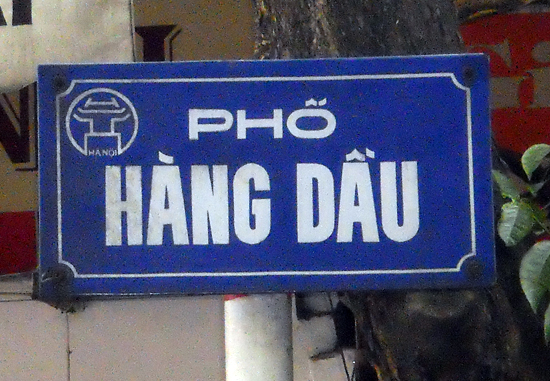
Oh, sorry, I thought you said Hang Dau… while we’re here, my friend has a hotel nearby.
Taxis from the airport Noi Bai airport is often referenced as a hotbed of scamming taxi drivers and has been well-covered in the Travelfish.org forum . In theory, all the licensed metered cabs that wait at the rank should be charging the prices on the rate board. If you use one of these taxis, get agreement on the rate before you get in by pointing at the rates sign and getting a confirming nod. If the driver tries to charge you more upon arrival, don’t pay . Also, don’t pay any extras for the tolls/parking — that is all included.
However, although in theory these taxis should be fine — I’ve never had problems — it’s safest to book in advance , either through your hotel or a company such as Hanoi Airport Transfers. This is highly recommended if you’re arriving late in the evening, once the buses have stopped running, as even the licensed, supposedly fixed rate taxis hike their rates up then.
For the budget-conscious, take the Jetstar or Vietnam Airlines buses into town — they have a fixed rate. If these aren’t around you can also try private minivans and public buses, but you are likely to be charged a little more than locals for the minivans — only by maybe a dollar, but if that’s going to bother you stick to the airline buses.
Whatever you do, do not get waylaid by the men who pounce when you leave arrivals; chances are they work for an unlicensed taxi firm and will overcharge.
As well as over-charging, apparently taxis from the airport or station (see below) often take people to the wrong hotel, as they are working on commission. Hotels will certainly tell you this is the case in order to persuade you to book a transfer with them, and of course this does avoid the issue. But if you’ve not booked a hotel or they’re over-charging for the transfer (many do), make sure you have the exact name and address of the hotel you are heading for, ideally written down in Vietnamese, and make it clear to the driver that you have a reservation. There are often multiple hotels with the same name , but they don’t all share an address. If the driver takes you somewhere else you have two options: (1) get out and walk (2) refuse to pay until they take you where you want to go.
Taxis from the train station Tourists arriving on an overnight train, tired and unfamiliar with Hanoi and just wanting to get to their hotel? Easy prey for unscrupulous taxi drivers. There are usually a good number of Mai Linh taxis at the train station, parked on the platform, so go for one of those if you can — but even they sometimes try to negotiate a high fixed rate, so insist on the meter.
If you don’t get a Mai Linh then you’ll walk out of the exit to a melee of taxi drivers offering you a ride. Dodgy meters — which run too fast — are a big problem at the train station, so it’s one occasion where negotiating a fixed rate, even if it’s a bit higher than the meter should be, is a good idea. As a rough guide, it’s about two kilometres to the cathedral area, so 30,000-40,000 VND is a fair fixed price, depending upon the size of taxi. It’s a bit further to Ma May area , so you’ll likely need to pay 40,000-50,000 VND to get there.
If you decide to risk it with the meter and notice it’s running too fast, threaten to get out (though you won’t really want to as there won’t be any other taxis around) and try to push for a fixed price. Drivers don’t want to lose a fare as they’ll likely have to wait for the next train for another one, so you’re in a good position.
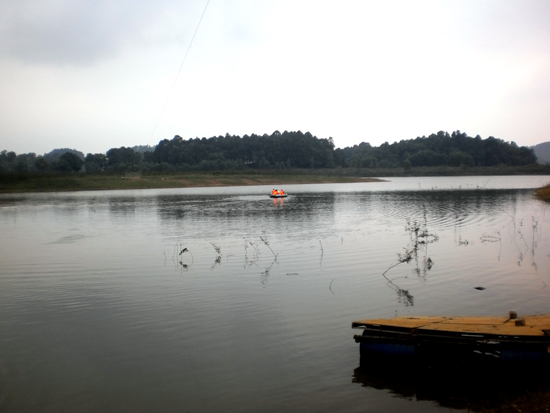
Be careful not to get stranded.
Note that there are a few one-way systems between the station and Old Quarter, so even if you know which direction you should be going, don’t be surprised if it’s not quite as direct as you expect.
Taxis around town It’s not just from the transport hubs that taxis try it on. I used to avoid getting taxis from Old Quarter home — at that time home was in Ba Dinh, about five kilometres from Old Quarter — because I was convinced they’d cheat me and I didn’t want to have to deal with that, particularly late at night. Even now, I’m wary, but I’m more sussed so am able to avoid problems.
Taxis that service the Old Quarter are particularly at fault, but it happens elsewhere in the capital as well — I took a taxi with three well-built guys from the bia hoi place on Tran Vu into Old Quarter a few months back and just a few kilometres down the road the meter was already on 50,000 VND with no sign of slowing. It should have been about 30,000 VND. “Stop!” we shouted and out we jumped, indicating our displeasure with his obvious dishonesty. On that occasion we didn’t pay him a dime — and he didn’t argue, given the three well-built guys — although for less blatant cheaters we’ll usually pay what we think it’s worth.
So, back to how to avoid a dodgy meter/long route/inflated fixed rate.
One option is to only use the well-regarded taxi companies . Mai Linh is always recommended, but Taxi Group and ABC are also solid — though Taxi Group is pricier — and I’ve never had any problems with the small Phu Dong, Thanh Nga, Vic or Morning taxis . But don’t sue me if you do! They’re sometimes in scant supply in Old Quarter so onto my second piece of advice: walk out of the tourist centre to pick up a taxi . If I’m in the Ma May area, I will walk to the main road.
Another is to get your hotel/ the bar or restaurant you’re at to call you a taxi. Most will be happy to do so. There’s no guarantee it will be one of the recommended companies, but as long as you’re at a reputable place it shouldn’t be a problem. Ask them how much it should cost too, just to get an idea.
Agreeing a fixed rate is only advisable if you know how much you should be paying. Their first bid is likely to be high, especially late at night.
Alternatively, take another mode of transport. Walking is a great way to see Hanoi, buses run reasonably frequently, or combine travel with sightseeing on a cyclo .
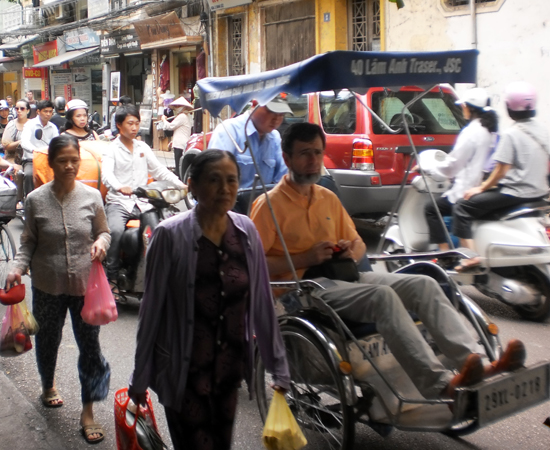
Unfortunately they’re not air-conditioned.
My final tip regarding taxis, wherever you catch them, is to make sure you have enough change on you. It’s a common trick for drivers to claim they don’t have any change. If they do this, pay less rather than more (if you have it) — no change, their problem, not yours.
Reviewed by Sarah Turner
Further reading
General ideas, health & safety, money & costs, phones & technology, visas & immigration, weather & climate.
3 other destinations in Hanoi and surrounds

Ha Long Bay
A highlight

Cat Ba Island
A great island escape

An unforgettable landscape

Vietnam Daily
Learn Vietnamese - One word a day

6 Common Scams that Target Tourists in Vietnam
Photo credit Vu Tuan
As a traveller in Vietnam, you will likely have an amazing and crime-free experience. But many tourists have their trip soured due to a few common and annoying scams that target fresh-off-the-airplane travellers.
Learn the following tips and tricks so that you can have a great trip without getting too hung-up over a few avoidable scams.
RELATED : Crime and safety in Vietnam — our personal experiences
1. Not Receiving the Proper Change in Vietnam
Always count the change, always!

Let’s say you had a great stay at a hotel and are ready to check-out. You know how much you owe (250k Dong), and so you hand-over a 500k Dong note to the hotel owner. As he gathers your passport and returns your “change” to you, he engages in chordial banter about your trip and your home country, etc. Everything is splendid and you are happy.
But, because of all the tiny distractions, you didn’t notice that your change wasn’t the requisite 250k Dong, but only 70k: one 20k note and one 50k note, as if he had accidently dropped a zero on the 200k note.
Was it an honest mistake? you wonder. Not likely: this scam happens so often, so consistently, and from so many different people, that it is unlikely to be an accident. Even people who you’d swear were good and decent may do this to you.
If you are from Canada, Australia, Japan or another high-trust country, you probably don’t think about whether or not to trust cashiers. Worse still, you may feel very sour when you inevitably are short-changed, especially when it keeps happening, again and again from seemingly nice people.
In any case, buck up, be vigilent , and when you do eventually let your guard down, consider it a tax on your failure to be more conscientious.
The above hotel example is a real one. When I ran back inside to correct the mistake, the otherwise-nice owner genuinely seemed surprised and rectified the situation. Was it an honest mistake? Or, was he just a good actor? Who cares: just learn the following lesson…
Lessons: Don’t let the feeling of non-stop victimization sour your trip, and always count your change !
2. Fake Parking-Lot Attendants in Vietnam
Somehow you keep paying for free parking because old ladies yell at you

Imagine pulling-up to a Vietnamese national park or a famous beach. As you approach, you are suddenly confronted by 2 or 3 angry old ladies in straw-hats yelling at you and pointing at a row of parked motor-bikes. Confused, you slow down. You think to yourself: “isn’t there parking inside the park?” Because you slowed down, someone steps in front of your bike, preventing you from proceeding any further. They are getting very angry.
Gosh , you think, I don’t want to cause a fuss . So you obey and park where they tell you to. You hand them 50k Dong and everything seems fine. Then, when you arrive at the park and purchase your ticket, you discover that there is plenty of free parking within the gate.
You, like many others, have just been scammed by the dubious business of independent parking-lot attendees. These scammers rely on the anxiety that all tourists feel when they travel in a foriegn land : do not get in trouble, do not stand-out, just follow the rules . So, a few confident scammers can use intimidation to will you to do what they want.
One point of solace is that, despite the coercive and fradulent tactics, the scammy bike-guarders will keep watch over your bike and return it to you. Like many scams in Vietnam, it is hard to know whether they are doing something explicitly illegal or whether they are just using manipulative business tactics.
The clever thing about this scam is that there are many many quasi-illegal parking-lots all over Vietnam that seem to operate honourably and provide a needed service: you need to park your bike in a crowded city, they guard your bike, they maintain order, and they quickly help you in and out of the parking-lot. And yet, they are probably operating illegally, privatizing public space that is theorectically everyone’s to enjoy.
The Lesson : It is difficult to distinguish between a scam and a legitimate 3rd-party parking lot. If you can, find out ahead of time about parking options at your destination.
3. Counterfeit Businesses & Products in Vietnam

Vietnam is a manufacturing hub: many famous brands a lot of their products in Vietnam . This means lots of discount name-brand items — but also a problem with fake replicas.
By fake replicas, we are not just referring to fake Gucci bags or North Face bags: we also mean copy-cat businesses and services, as diverse as restaurants, hotels, alcohol, and even airline booking websites. Even grains-of-rice can be contaminated with tiny plastic pellets.
All of this copy-cat “entrepreneurship” is done shamelessly in full-view of the public. It is so pervasive that you can often see a whole row of copy-cat businesses neighbouring one-another, like the famous Bun Cha Dac Kim restaurant in Hanoi.
Bascially, there is very little enforcement of intellectual property laws. Furthermore, Vietnamese people are incredibly technically sophisticated: they find it easy to reverse-engineer a process and copy it, rather than creatively come-up with new, high-risk ideas.
Big Tech cracks down on fake accounts, hurting everyone
The copy-cat problem is so pernicious that it has attracted the attention of Big Tech. For example, Etsy will no longer accept new Vietnamese-based “handicraft” businesses . Etsy had to over-react to the problem of fake-products that flooded their handicraft platform from Vietnam. Some of these dubioous acounts also resorted to incredibly hostile tactics to harass their legitimate competitors, such as posting fake negative reviews.
These copy-cat merchants have ruined Etsy for honest Vietnamese artisans, of which there are many. It is a terribly sad situation for all the wonderful artists in Vietnam.
Become a non-stop detective
How to deal with all the fakes and copy-cats? As a traveller, you must adopt a skeptical mindset about the veracity of everything . For example, you cannot simply Google-maps-navigate your way to a hotel or restaurant and expect it to be the authentic business. Instead, you may have to work a little harder to find the real business, like a detective, using any and all resources available to you.
4. “Hello Donut?” Ladies Are Too Pushy
Somehow you get tricked into buying things before knowing their price

The following anecdote isn’t an illegal scam — but it is a good lesson about the naivete of tourists. The “Hello Doughnut” trick happens all the time, in all industries beyond doughnuts, despite how rediculously easy it is for travellers to avoid.
In popular tourist streets of Vietnam, there are dozens of small middle-aged Vietnamese woman wearing straw-hats and traditional clothing, who step infront of tourists and temp them with tasty doughnuts. “Hello, Doughnut?” they chirp.
They are pushy, they are pleasant, and the doughnuts look very nice. By some act of will-power, they get people to say yes without asking for the price. Once consumed, they demand $20-$30 for these tiny doughnuts (50x the actual price). Tourists are too shy or cannot calculate the currency conversion in their head, and they dutifully pay the outrageous price.
This sounds simple to avoid, right ? The answer is both yes and no: such unscrupulous businessmen/women have perfected a level of confidence and tact that somehow disarms you and magically gets you to obey.
The Hello-doughnut scam is a nice example of a bigger problem you’ll encounter in all forms of Vietnamese commerce: your lack of knowledge about local prices leaves you vulnerable to being ripped off . Plus, the skill of salemanship among Vietnamese retailers is something you’ve probably never encountered. Just like the doughnuts, you may find yourself buying things you didn’t agree to.
The lesson : ignore pushy people, learn to instinctively say “no” to everything (“không”).
Sales Jujitsu – Vietnamese Salesmen Are Clever
Aggressive salesmen have some common tricks they employ. For example, they will serve you something before you’ve had a chance to ask “wait, how much?” ( Bao Nhieu? ) and then refuse to take it back — they’ll do things like quickly push the item on you and then pretend to be busy with something else, or out-of-ear-shot, ignoring your question of “ wait, how much? “, leaving you standing-there like a fool holding your (un)purchased item.
These sorts of tactics are strangely effective, and they put you at a severe disadvantage.
RELATED : How to haggle in Vietnam – key tips & tricks .
6. Airport Security Steal Your Stuff
Did you “accidentally” forget your tablet in the airport security line?
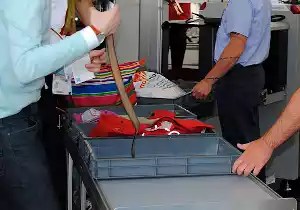
Even among the best airports, the baggage x-ray and security line is one of the easiest places to be robbed : you are distracted, you are in a hurry, and your valuables are scattered all over a long line surrounded by pushy people. I’ve personally caught thieves red-handed going through my things while I was putting on my shoes in an airport security line.
But, did you know that the airport security personnel are also partaking in this scam? In the small regional airports across Vietnamese (like Phu Quoc ) you must be extra vigilant while going through airport security: if anything valuable gets accidentally “set aside” for the lost and found, the staff have a nice little scheme to acquire free things.
While you are distracted and putting your shoes and belt back on, the airport secruity have been known to take a tablet or laptop and innocently place it in the “left behind” pile . Maybe you remember to check your bag afterwards and they give it back to you as if they were the heros for finding it ( “you left it behind!” ) or maybe you don’t notice and you fly away forever, never to see it again.
Fortunately, the staff are probably not going to put-up a fight, because of the surveillance and need to maintain a facade of you being the forgetful one.
This is also the easiest scam to avoid, in Vietnam or elsewhere:
- Make a mental inventory of all your valuables, and re-check them after security.
- Always empty your pockets and remove your jewelry before you enter the security line, and pack them together in your bag.
- Use as few bins as possible in the security line, so you can more easily monitor them.
- Consolidate all of your valuables (tablets, passport) into one bin.
6. Fake Charges From Vietnamese Apps
Don’t give-away your banking info to Vietnamese apps

Weird fake charges are always showing-up in Vietnamese people’s bank-accounts and debit cards, especially when they are used to pay for things online. A prime example of this is Grab-App (the Uber of Vietnam).
This happened to us: usually, we pay for Grab-services with cash, but the first day after we entered our Mastercard debit-card info into Grab, a random $1000 dollar charge was debited from our account. Fortunately, due to a personal bank employee connection, we were able to initiate a re-claims process immediately– but getting the charge reversed could take ~2-3 months. These fake charges (and reclaims) are something we’ve experienced many times in Vietnam .
Although fake charges are a perennial scourge on the Vietnamese banking system, it is possible to use a Western credit card and not suffer the same problem. However, if you have the option to pay with cash instead of entering-in your bank-account/card-numbers info, don’t take the chance!
Are Vietnamese apps inherently less secure? Are the employees who work for these companies just randomly invoking charges on the user-base? I don’t know, but it has happened to us many many times.
Conclusion – Learning to Cope with Vietnamese Scams
Many of these scams operate in the grey-area between explicit criminality, pushy sales tactics, and petty mistakes. As a traveller in Vietnam, your first skill to acquire is how to detect the “confidence game” of sales-people and scammers, and disarm their clever tricks.
If and when you fall prey to these scams, don’t let it sour your trip . Instead, consider these scams as valuable life-lessons in human psychology and salesmenship. Maybe these lessons will come in handy in your own country. For example, the next time you go for a big-ticket purchase, like a house, you may be grateful that you’ve already practiced how to deal with and disarm scammers.
Will is a researcher in Toronto who has lived and worked in Vietnam. On his own journey learning Vietnamese, he realized the best way to learn a language is to embed the lessons in stories, cultural insights and history.
Similar Posts
![tourist scams in hanoi DIY Tour of Hanoi’s Exotic Coffees and Funky Cafes [MAP]](https://i0.wp.com/vietnamdaily.ca/wp-content/uploads/2021/12/vietnamdaily_diy-cafe-tour-hanoi.webp?fit=768%2C384&ssl=1)
DIY Tour of Hanoi’s Exotic Coffees and Funky Cafes [MAP]
A DIY tour of funky cafes in Hanoi with delicious exotic coffees, like yogurt coffee, coconut coffee, egg coffee and great things to see along the way.

Vietnam to Re-Open to Tourism on March 15th, without Quarantining
Phú Quốc, Da Nang Nha Trang have re-opened to tourists under a restricted pilot program in November. The rest of the country may open in April 2022. Here is what we know.
![tourist scams in hanoi 6 Best Resources to Find Expat Jobs in Vietnam [2022]](https://i0.wp.com/vietnamdaily.ca/wp-content/uploads/2022/04/vietnamdaily_how-found-jobs-in-vietnam.webp?fit=768%2C384&ssl=1)
6 Best Resources to Find Expat Jobs in Vietnam [2022]
Vietnam is increasingly hiring foreigners to fuel its international growth. Here are the best websites for find jobs in Vietnam as an expat.
![tourist scams in hanoi DIY Food Tour in Hanoi – Best Dishes and Where to Go [MAP]](https://i0.wp.com/vietnamdaily.ca/wp-content/uploads/2022/03/vietnamdaily_diy-food-tour.webp?fit=768%2C384&ssl=1)
DIY Food Tour in Hanoi – Best Dishes and Where to Go [MAP]
Our top 10 favourite street-food dishes in Hanoi and where to go, plotted on an interactive map. From Spicy crepes to Phở to spring rolls.

11 Luxurious (but Affordable) Things to Buy in Vietnam
You can still buy luxury goods in Vietnam for an affordable price, such as ornate vases, designer handbags, handmade shoes, original art, and more

Thailand vs Vietnam: Personality Differences and National Character
Big Five studies show that Thai culture is more open and laid-back, while Vietnamese culture is more hard-working and more anxious.
It’s so unfortunate to know that scams like these still exist. I hope that scammed like these are caught and punished.
Scams are everywhere in Vietnam. Best to avoid.
No, just be prepared… It is exhausting however
Well, I go on vacation to relax, not to be exhausted by constant scams. But in Vietnam the moment you relax is the moment all the scammers have been quietly waiting for….
Yep, it is true. However, once you have lived there for about 1-3 months, you start to recognize the worse scams, and to anticipate what you need to know in order to avoid scams. Get quotes quotes quotes and more quotes.
Leave a Reply Cancel reply

IMAGES
VIDEO
COMMENTS
7. Over-charging. 8. Pick Pocket. 1. Exchange Rates. Source: viettimes. Exchanging money for the first time coming to a new country is a must for any visitor. For those coming to Vietnam, they need to bear in mind that Vietnamese people use VND for most of the everyday payment.
3. Motorbike Rental Scams In Vietnam. This is a common scam throughout Southeast Asia, including Vietnam. You may find your passport is being held hostage while the owners demand money for damages not caused by you. However, this next motorbike rental scam in Vietnam is even worse.
Here we start our list of the most common scams in Vietnam, starting in Hanoi. This is not an exhausted list and some could be scams to avoid in Vietnam outside Hanoi. There are many tricks & tourist scams in Vietnam which can be conjured up. So here we go with our top 5 scams to avoid in Vietnam, well, Hanoi! 1. Doughnut Ladies.
Hanoi, like many tourist destinations around the world, is not immune to various scams that can target unsuspecting visitors. While most people in Hanoi are friendly and honest, it's essential to be aware of some common tourist scams to ensure a safe and enjoyable trip.
2. Fake leather. Shops in Hoi An and Saigon are famous for their handmade leather - especially bags, belts and shoes. The examples on display are usually created using the real thing, to entice potential customers in. Bespoke items are often partly fake - with leather outers but plastic lining or shoe-inserts.
Here's how to avoid the scams in Hanoi involving taxis, hotels, pickpockets and other tips to have a trouble-free trip to the capital of Vietnam. ... Unlike places such as Bangkok where you can feel that you are herded into tourist places at an arms length from the authentic Thai experience, Hanoi integrates tourists seamlessly. The Old ...
Falling for tourist scams. Scams in tourist areas in Hanoi are still quite common, but these guidelines can help you avoid them. From taxi fares to shoe cleaners on the street, you need to be cautious. If you're traveling from the airport to the city center, check with the driver about the fare. It's also safer to use a Grab taxi as you can ...
Hanoi is generally considered safe for tourists. However, like any other popular tourist destination, there is still a possibility of encountering scams or petty crimes. Here are some tips to avoid scams in Hanoi: 1. Research and be informed: Before visiting Hanoi, research about common scams and tricks used by scammers in the area ...
A scam is someone doing something wrong/illegal/underhand in order to cheat someone out of money. Based on that definition the main scams in Hanoi involve transport — particularly taxis to and from transport hubs like stations and airports. They're scams because you are being blatantly overcharged and cheated by dodgy meters, or by drivers ...
Hanoi Scams - Above are some of the common Hanoi scams that you most likely to encounter. Always watch out and don't be a victim of any Hanoi scams. ... Hanoi is a popular tourist destination with many tour agencies. Booking online can be risky. We suggest using TripAdvisor. It's a reliable website for finding a tour agency in the Old Quarter ...
Another common tourist scams in Vietnam is to charge tourists ridiculous fees for things like water, towels and music. When you refuse to pay, gangsters step in. ... 5 tourist attraction nearby Hanoi cost under $100US August 30, 2023; Vietnam 16 day family road trip car transfer June 12, 2023; Halong Bay One Day Tour from Hanoi July 15, 2022;
SCAMS RISK: MEDIUM There is a number of scams performed on tourists in Hanoi, such as gambling scams where, if you do venture in gambling, there is a great risk you will be scammed or ripped off or karaoke scams: since prostitution is forbidden, you can find prostitutes in various karaoke bars, which are actually one big scam and their clients often get ripped off, drink spiked and robbed.
The scam is most common among resellers - the people who're buying motorbikes from desperate backpackers who're leaving the country for pennies - who're then doing some minor repairs and selling bikes for a higher price. This is a very common business in big cities as the demand is growing with more tourists flocking to the country.
Like anywhere on this planet, scams are common in Hanoi. Some scams off will be in credibly smart and hard to detect. My Hanoi Tours offers top 10 popular scams in Hanoi either collected on Internet or sent by our customers to help avoid travel scams in Hanoi for a pleasant Hanoi tour with no regrets, disappointments, or feelings of being cheated.
Here is a quick list on 10 common scams you might run into: 1. Overpriced Tours: Some tour operators will charge high prices for experiences you could arrange yourself at a fraction of the cost. Doing a bit of research and comparing prices can help you find better deals. 2.
The eager cobbler is a common scam and it seems innocent enough. They stop you, try and find a fault with your footwear, and then charge for the cost of repairing it (or sell you a new pair of shoes). How to avoid it: Unless your soles are worn down to rice paper, your best approach is to just keep on walking. 2. The dodgy taxi.
In this post I'm going to detail some of the common scams/rip offs and how to avoid them. Apologies in advance for the Vietnamese currency jokes…. Be wary of gamesmanship in Vietnam. 1. Taxi drivers charging ridiculous fees. The most common of them all and a regular frustration for travellers in many countries.
Travel Advisories for Hanoi. Many countries have travel advisories in place for Hanoi, which are designed to keep citizens informed about potential risks. ... so be careful when crossing the streets. Scams targeting tourists can occur, so always verify prices before purchasing goods or services. Is Hanoi safe for solo travelers? Hanoi is ...
No one want to encounter travel scams during their vacation, but it happens around all tourists when they visit a foreign country. Instead of worrying about the bad situations, you can actually prepare yourself for the frauds on the go. ... In big destinations for tourism like Hanoi, Danang, Hoi An, Saigon, you may see a lot of cyclos and ...
Most issues in Hanoi revolve around transport scams and we have put together a list of ways you can ensure you stay safe and enjoy your visit the wonderful capital city of Hanoi. 1. ... BT03: Budget Travel in Vietnam - 14 days from Hanoi ; BT04: Amazing Vietnam Holiday on budget - 18 days from Hanoi ; BT05: Cheap Vietnam Holiday - 8 days from ...
The Vietnamese dong will make you an instant millionaire and that means it's probably one of the most confusing currencies for foreigners to use in the world. To put it into context, 1 USD is 23,212.82 dong. The most common problem this causes for travellers is getting the zeros wrong. This happened to my sister when using a rickshaw and then ...
As a rough guide, it's about two kilometres to the cathedral area, so 30,000-40,000 VND is a fair fixed price, depending upon the size of taxi. It's a bit further to Ma May area, so you'll likely need to pay 40,000-50,000 VND to get there. If you decide to risk it with the meter and notice it's running too fast, threaten to get out ...
The Lesson: It is difficult to distinguish between a scam and a legitimate 3rd-party parking lot. If you can, find out ahead of time about parking options at your destination. 3. Counterfeit Businesses & Products in Vietnam. SCAM Fake replicas of goods and services in most industries.